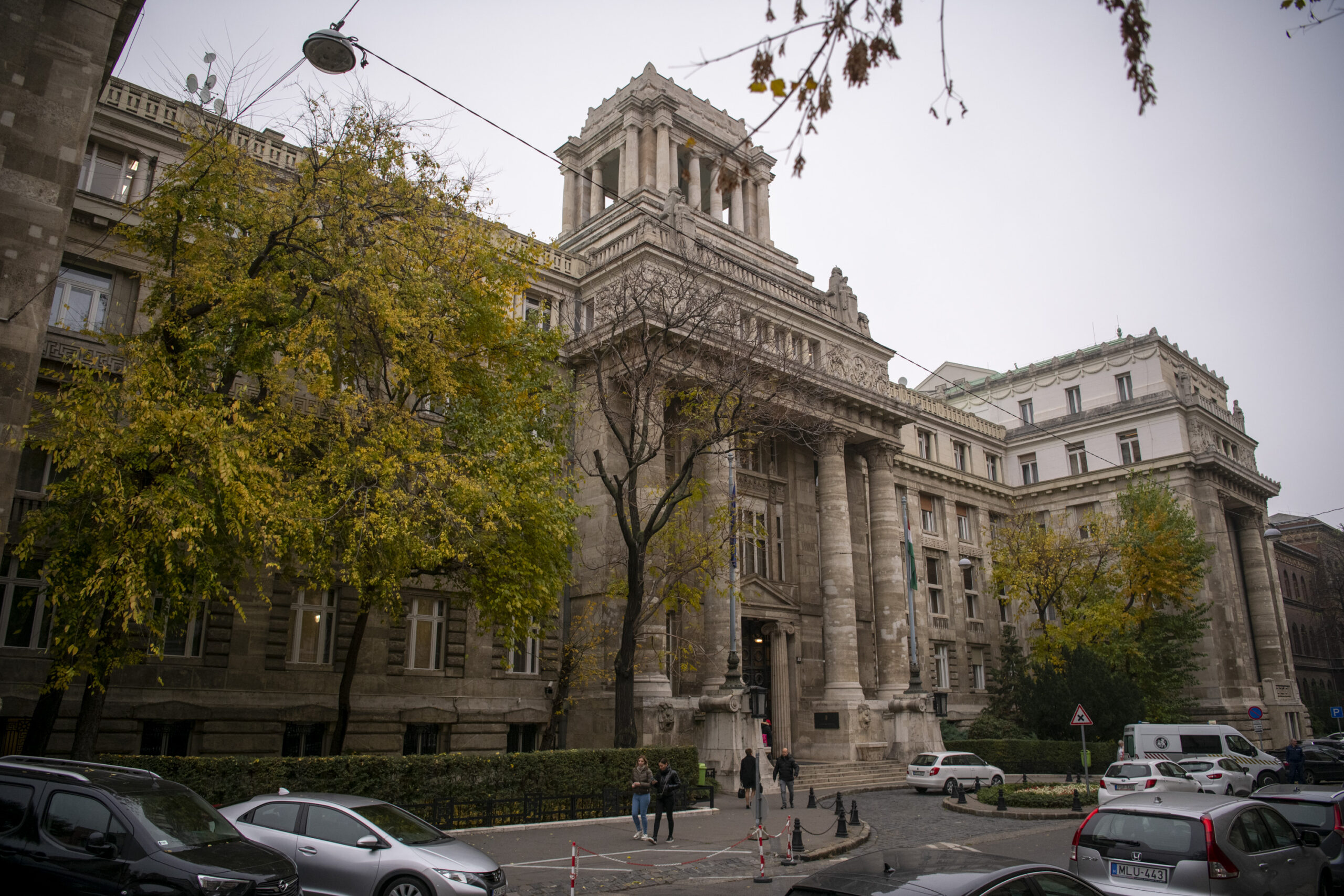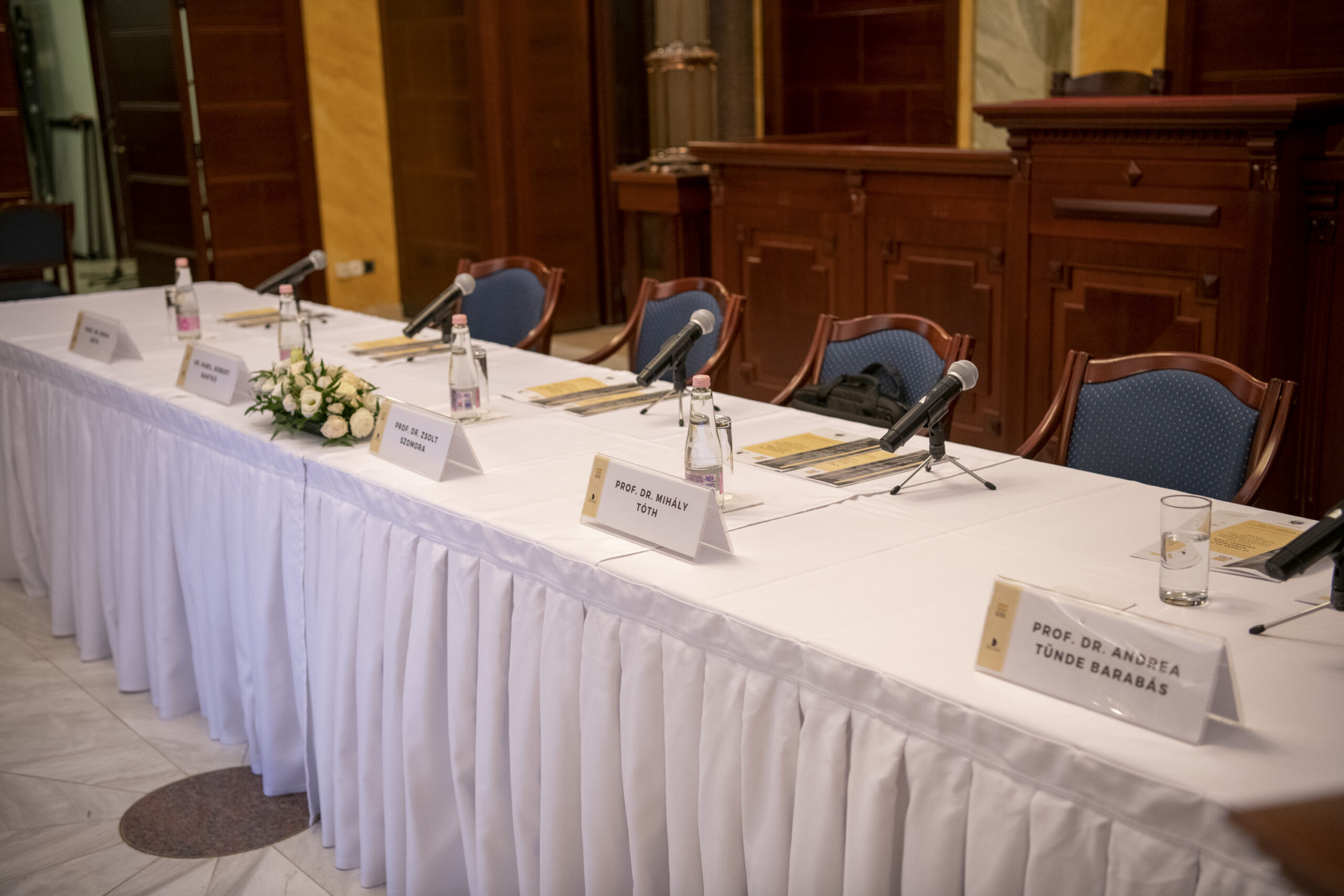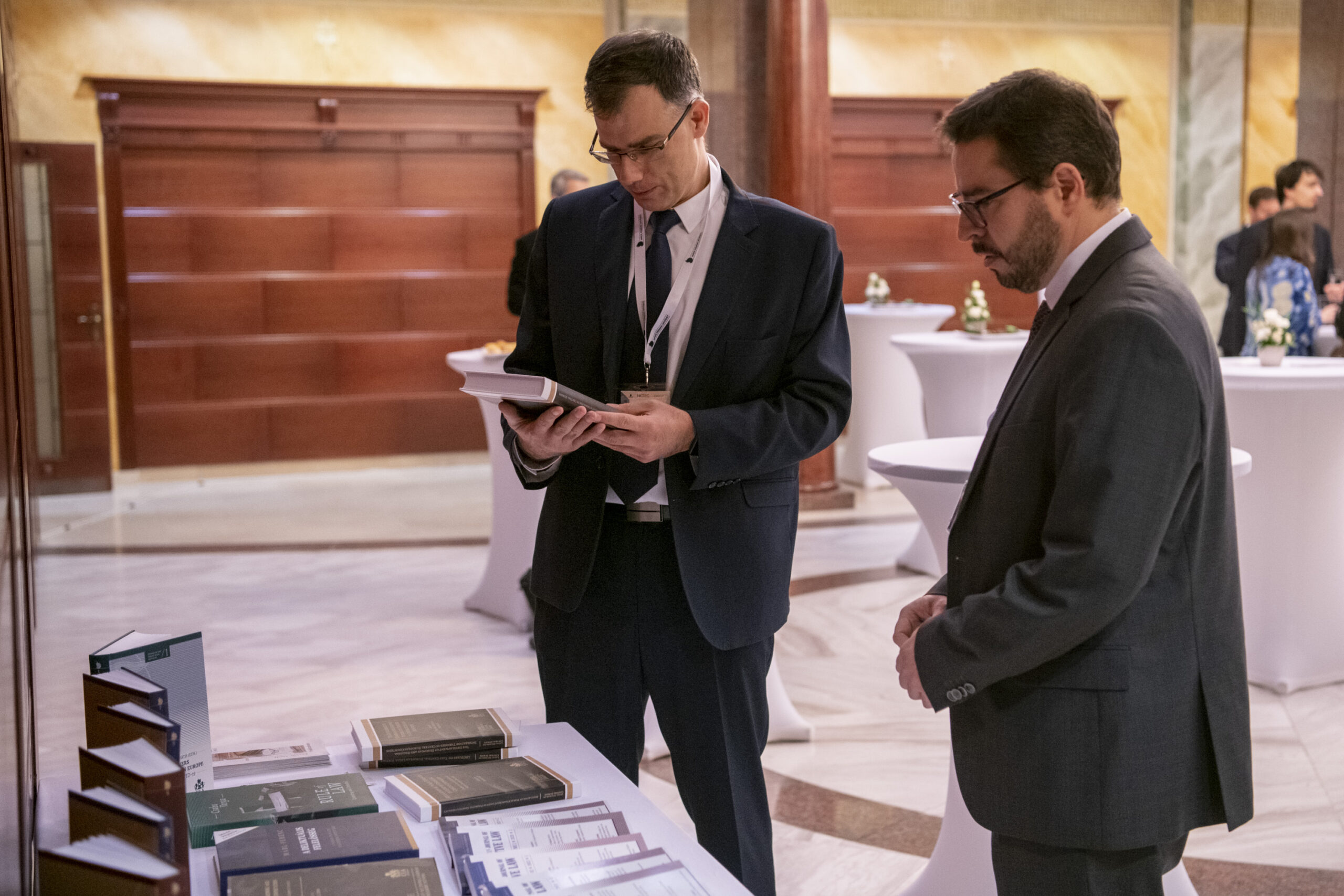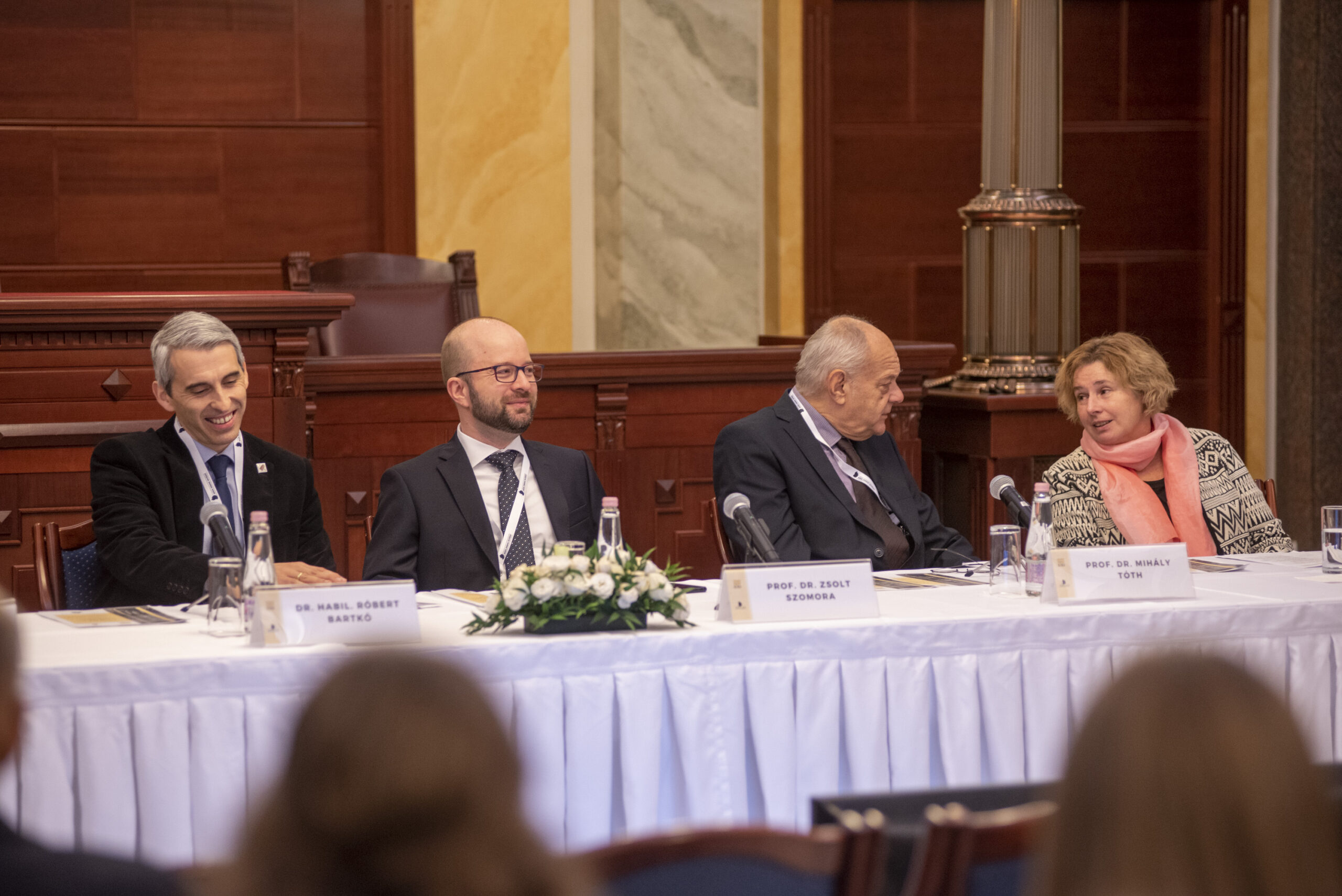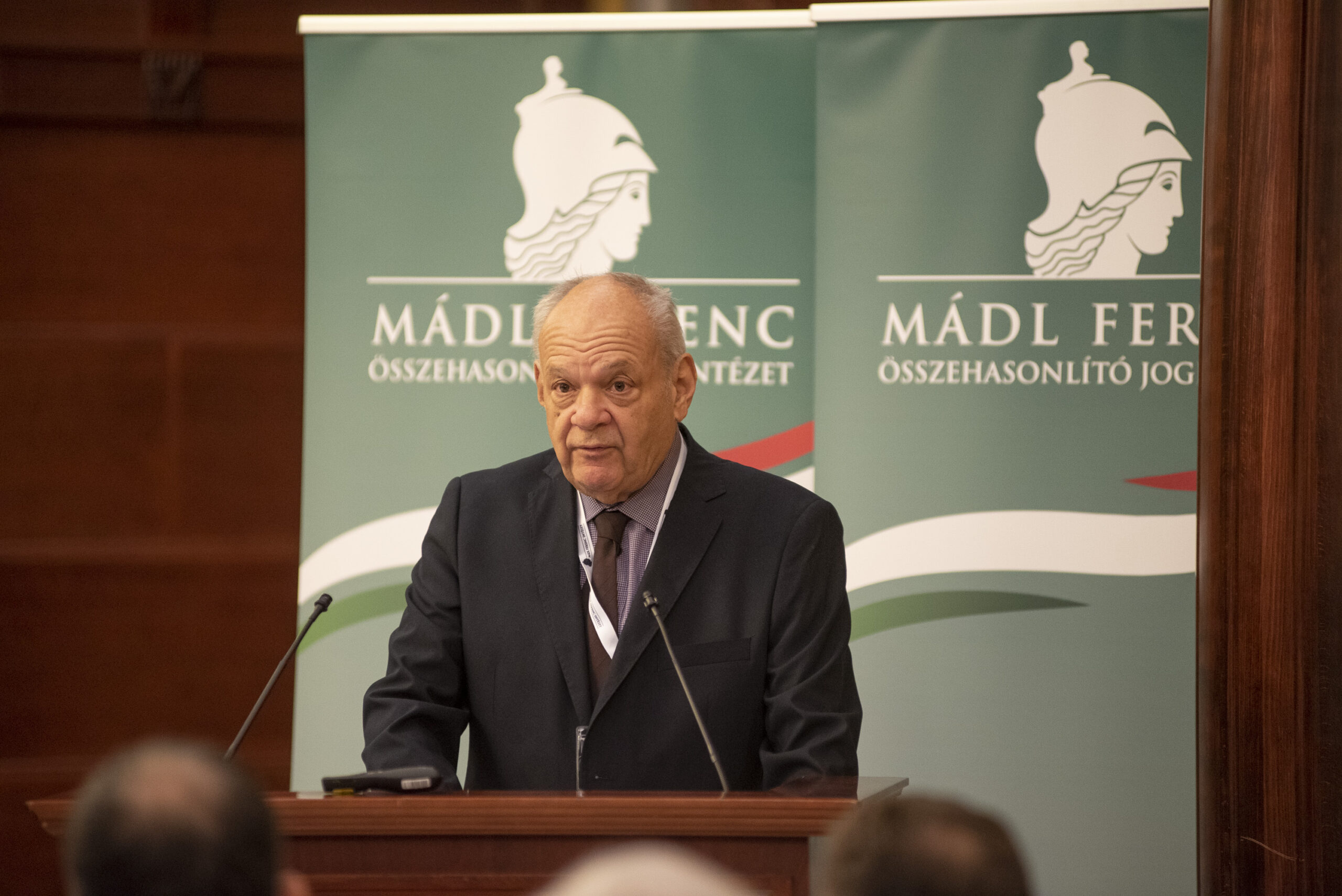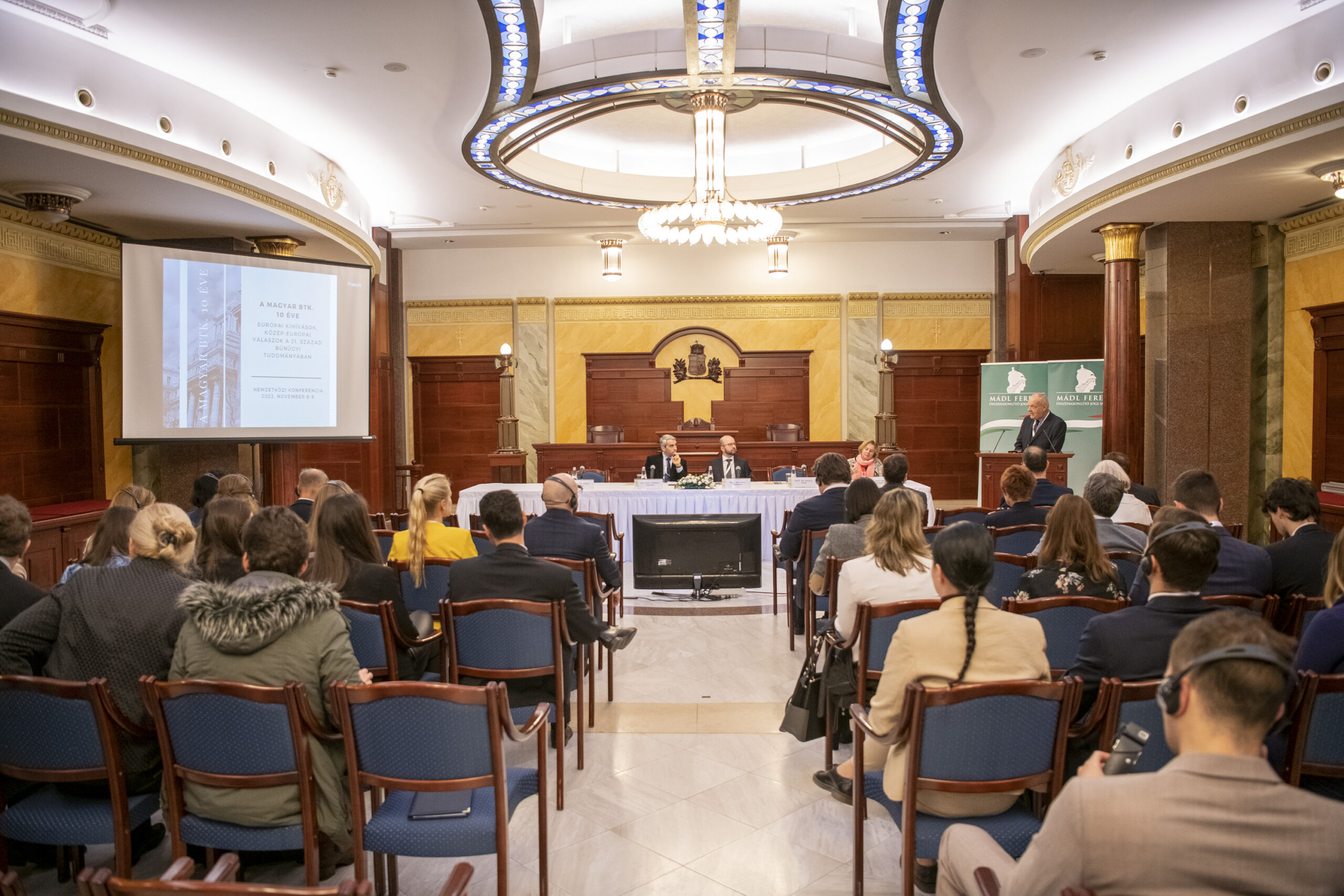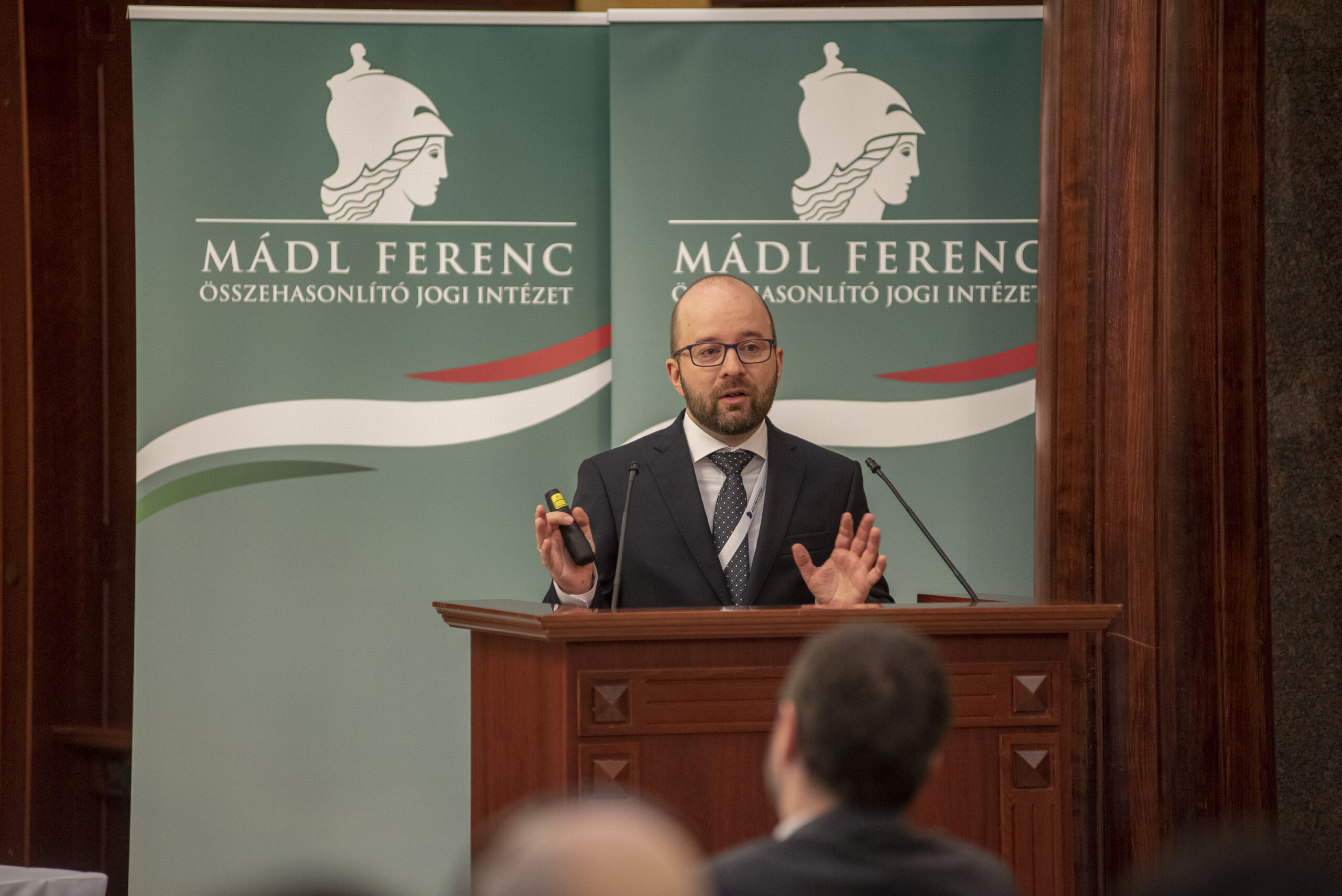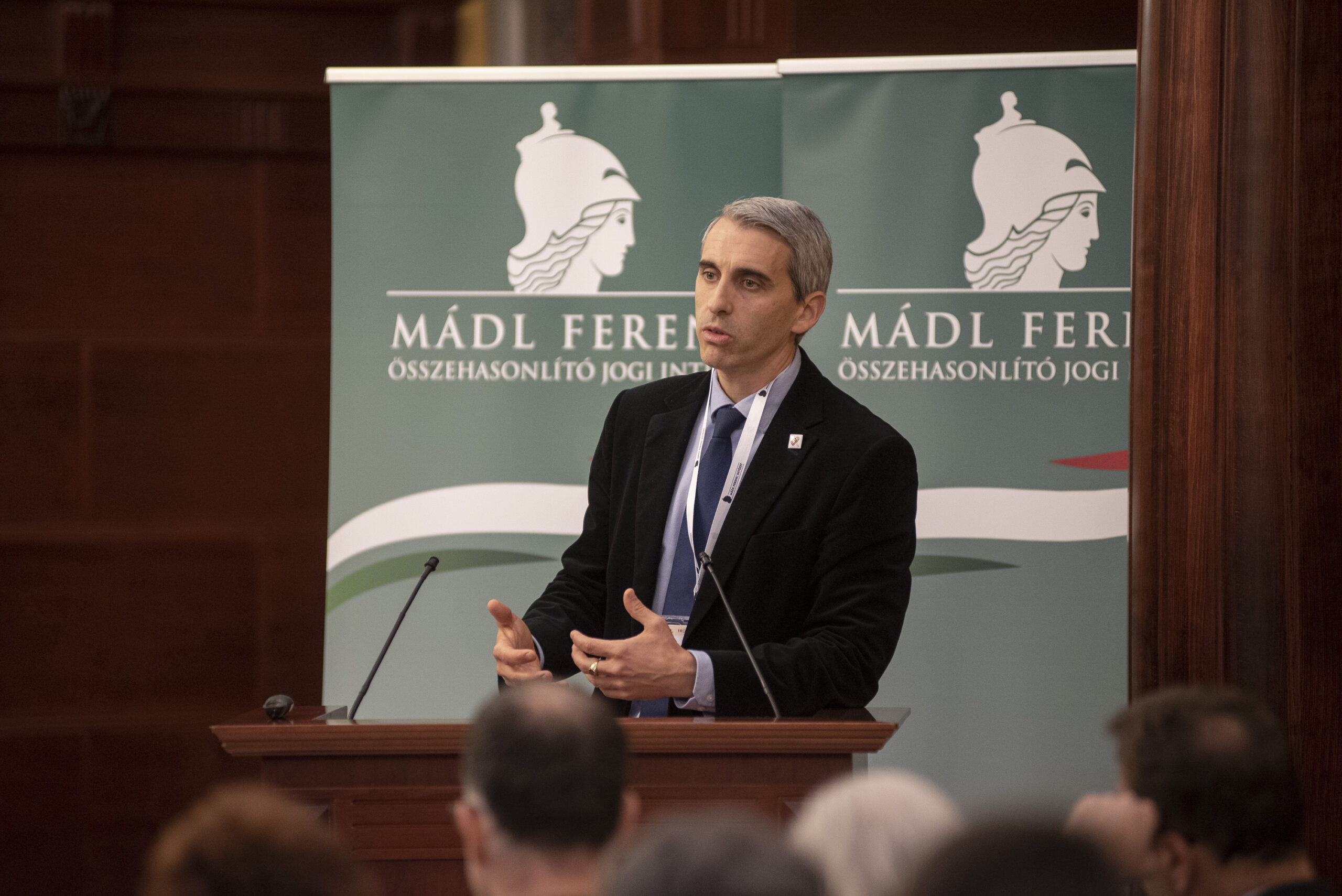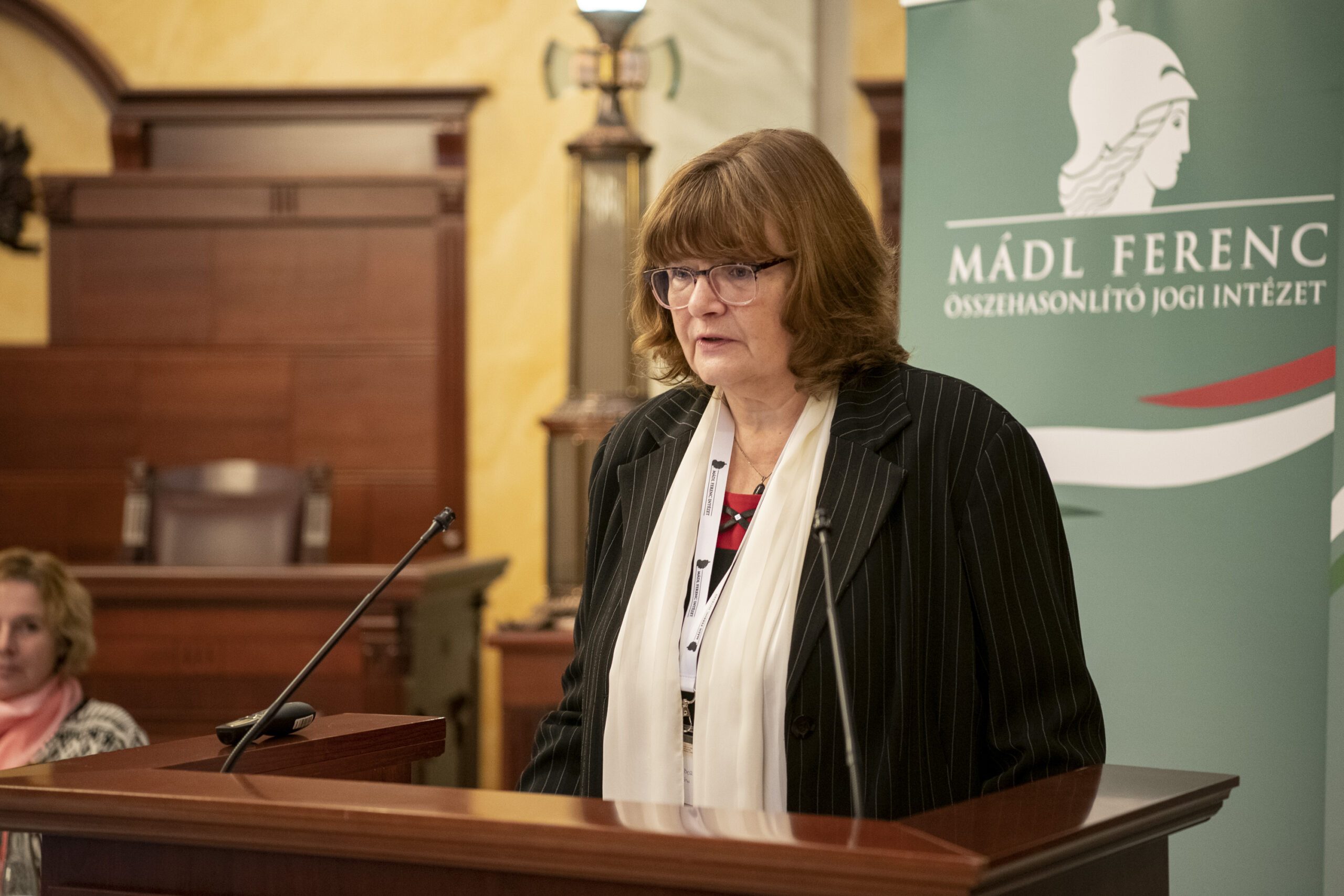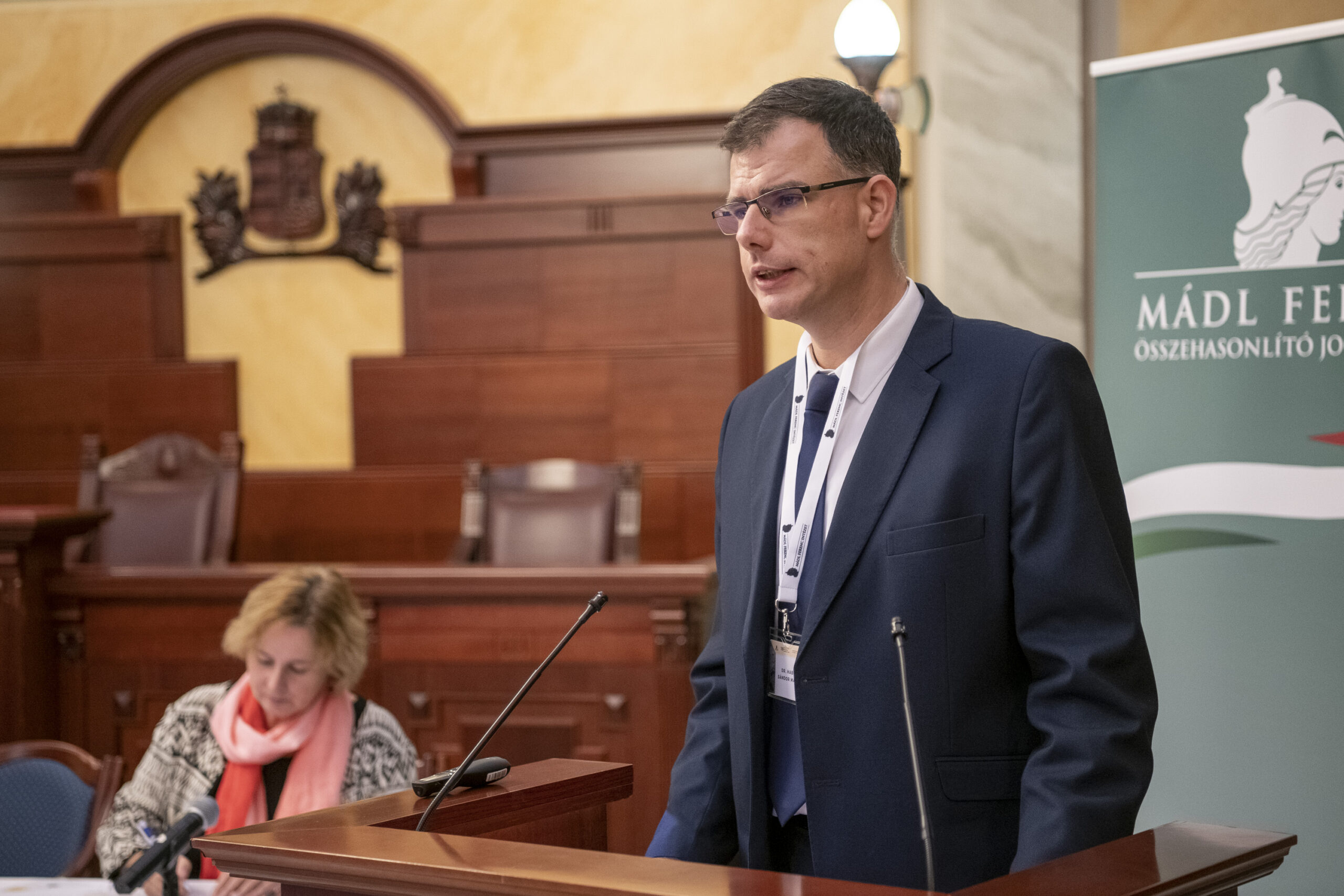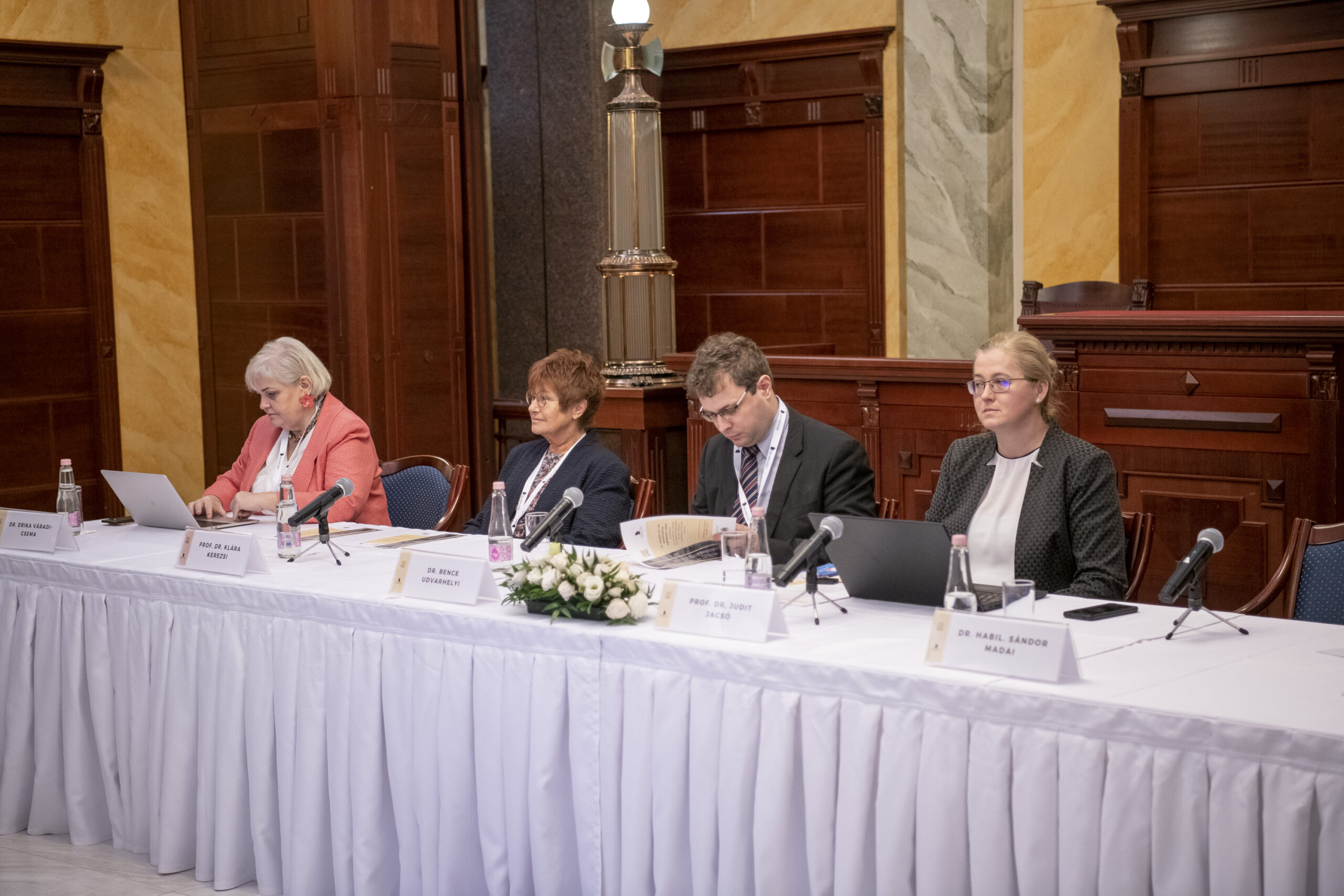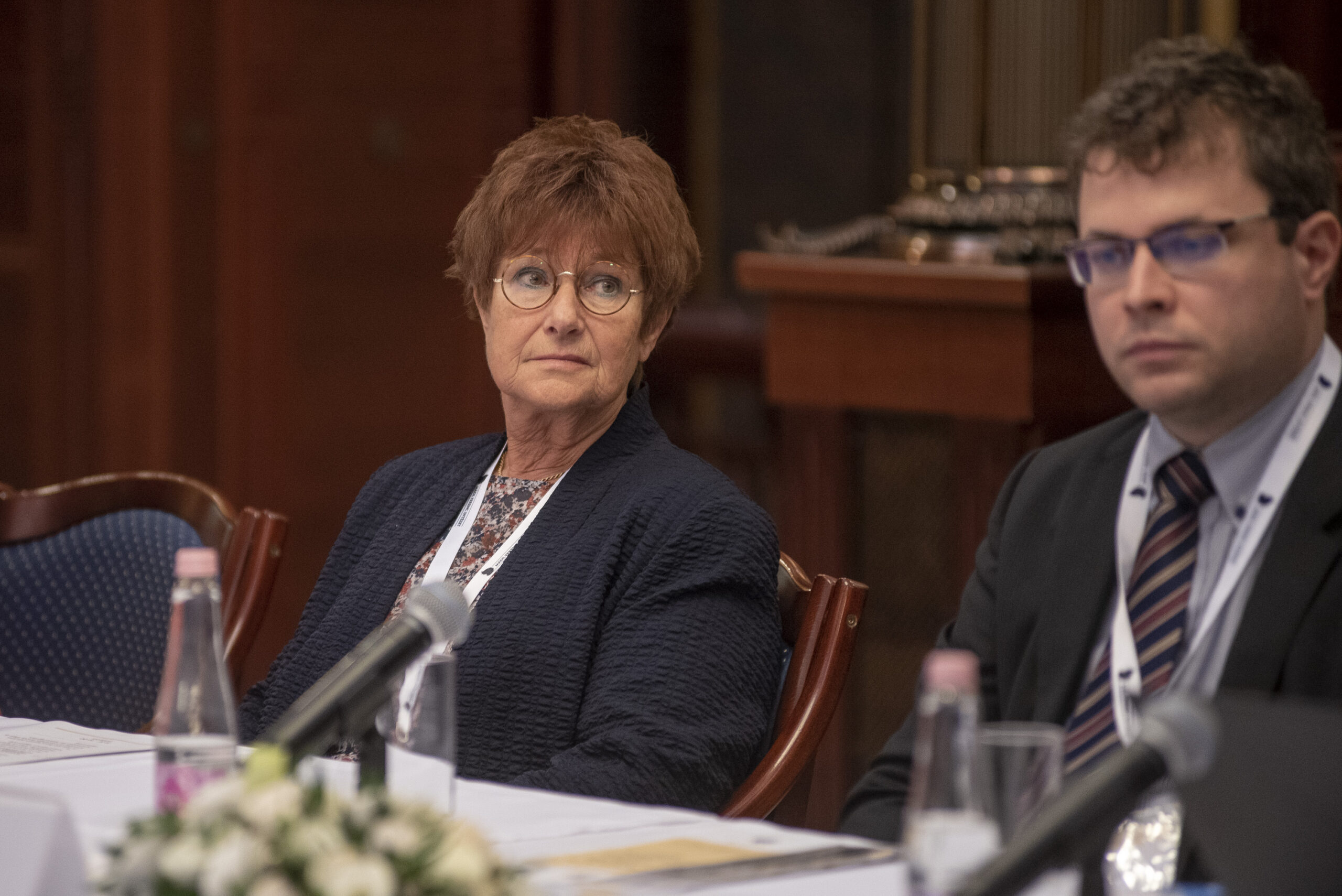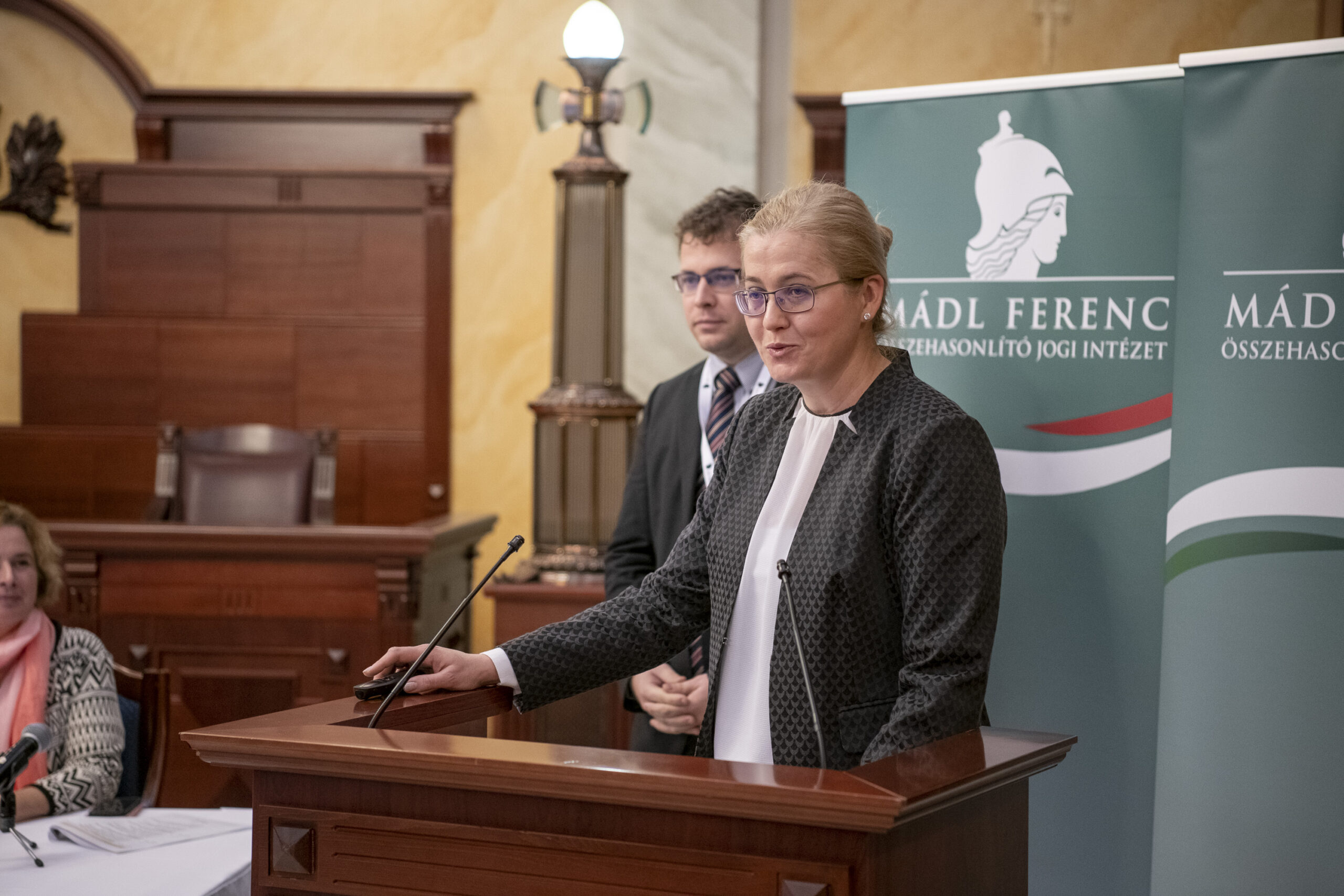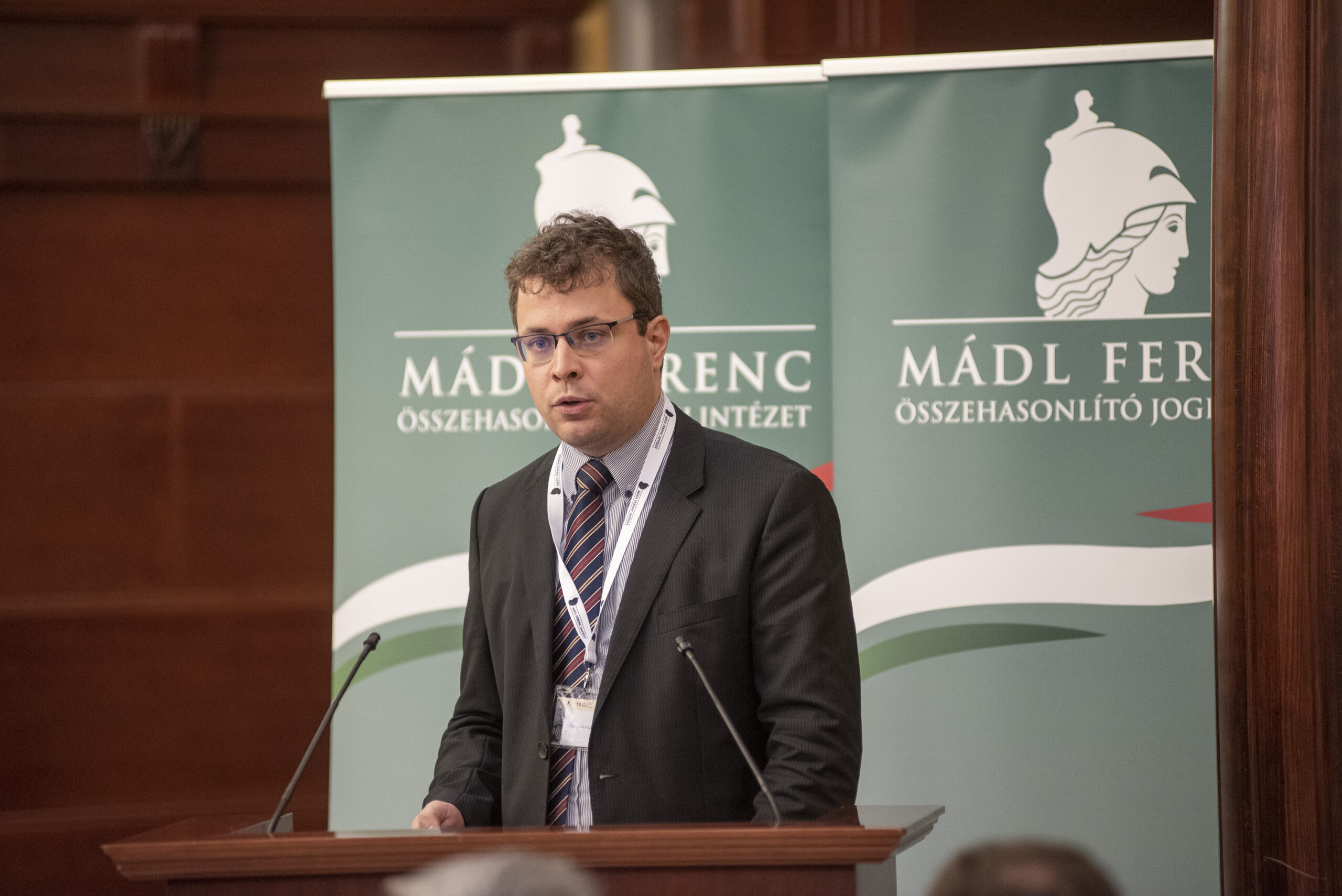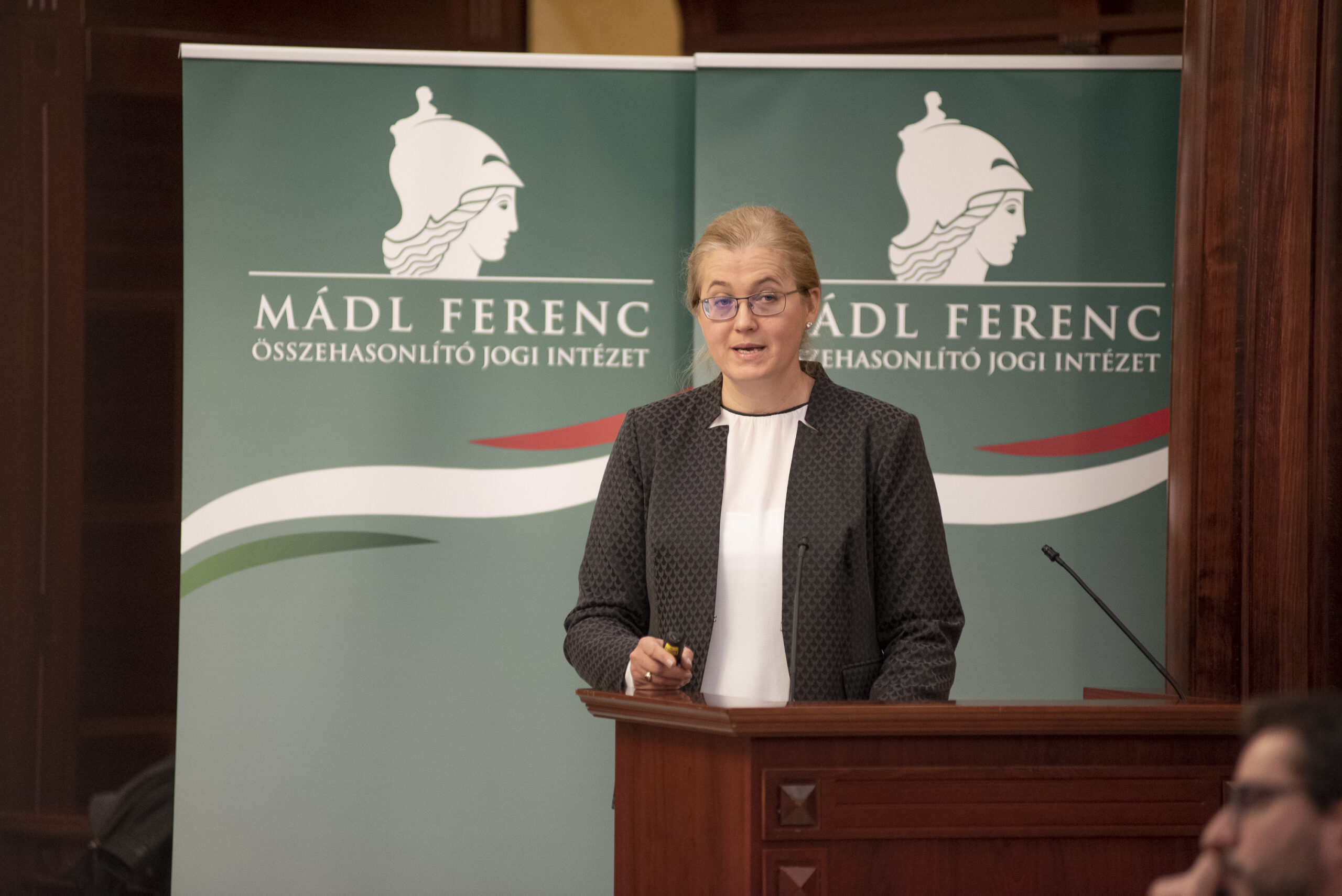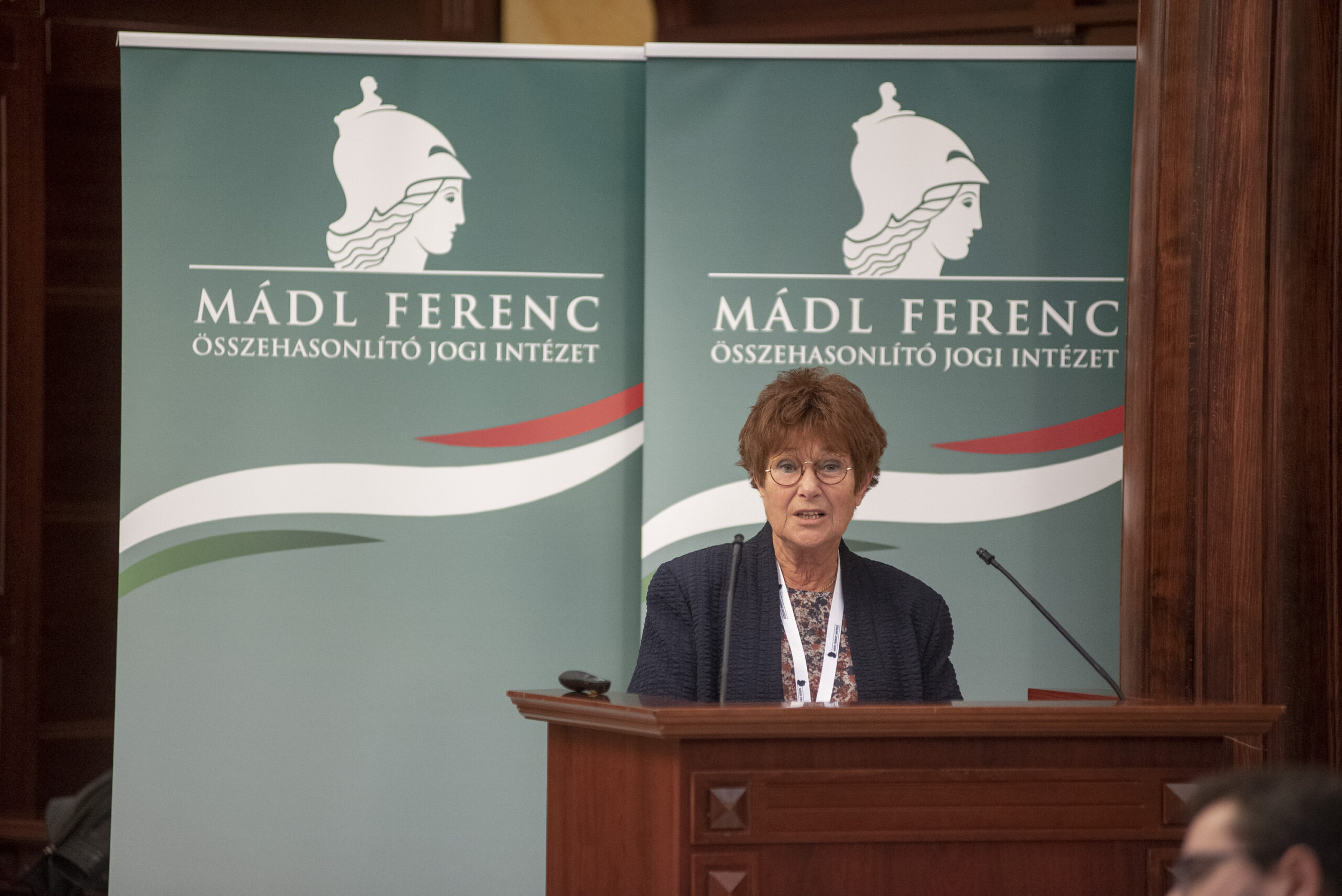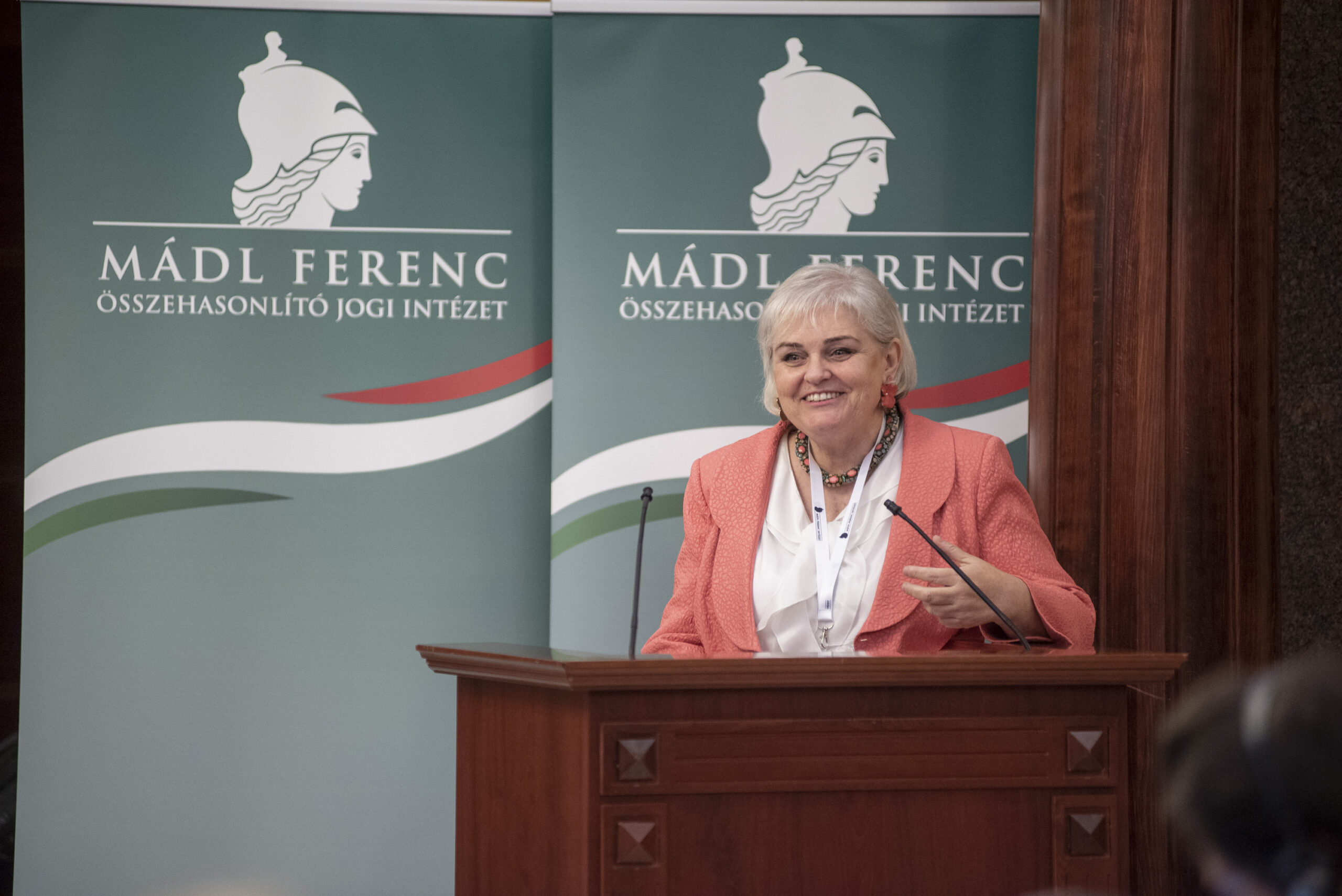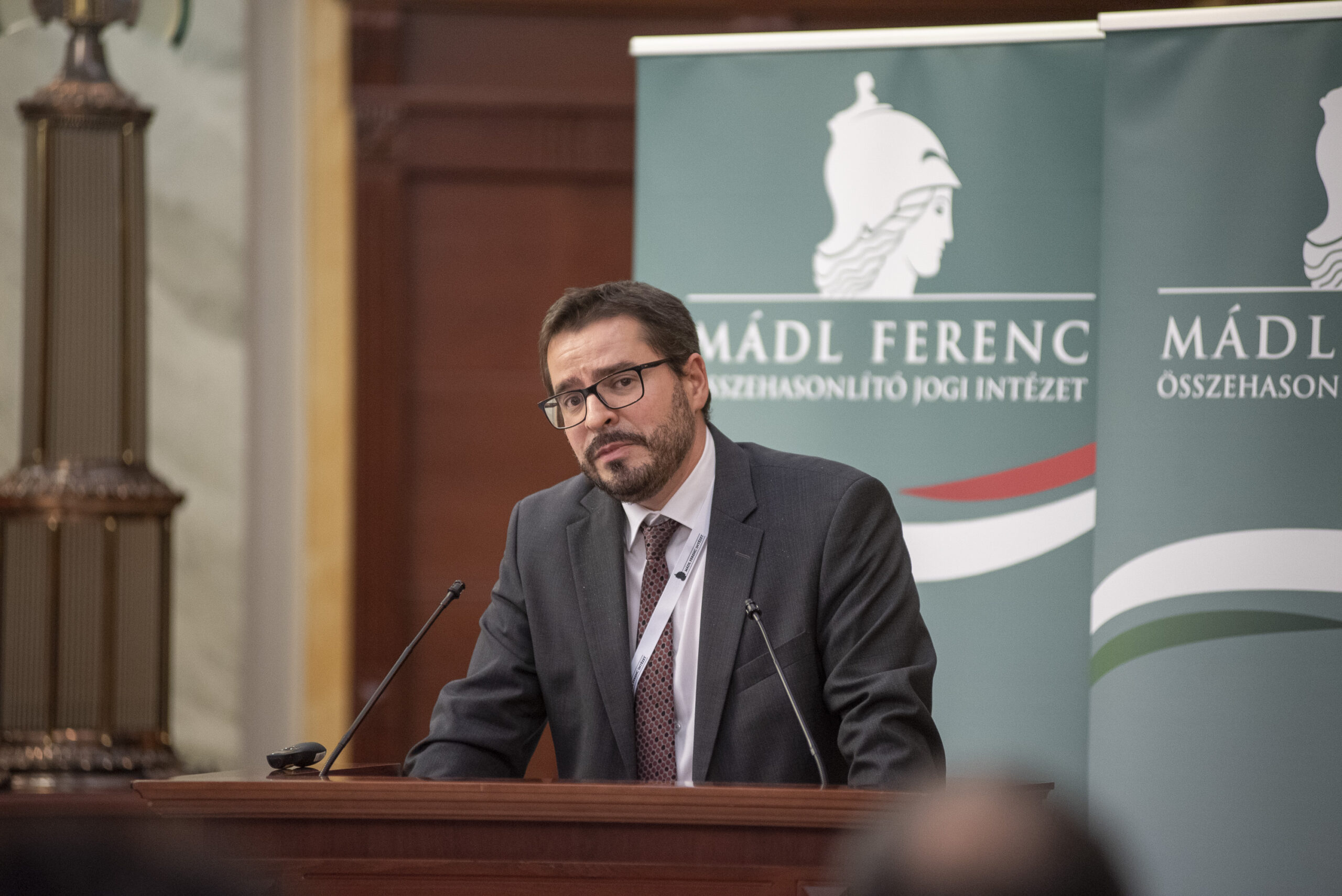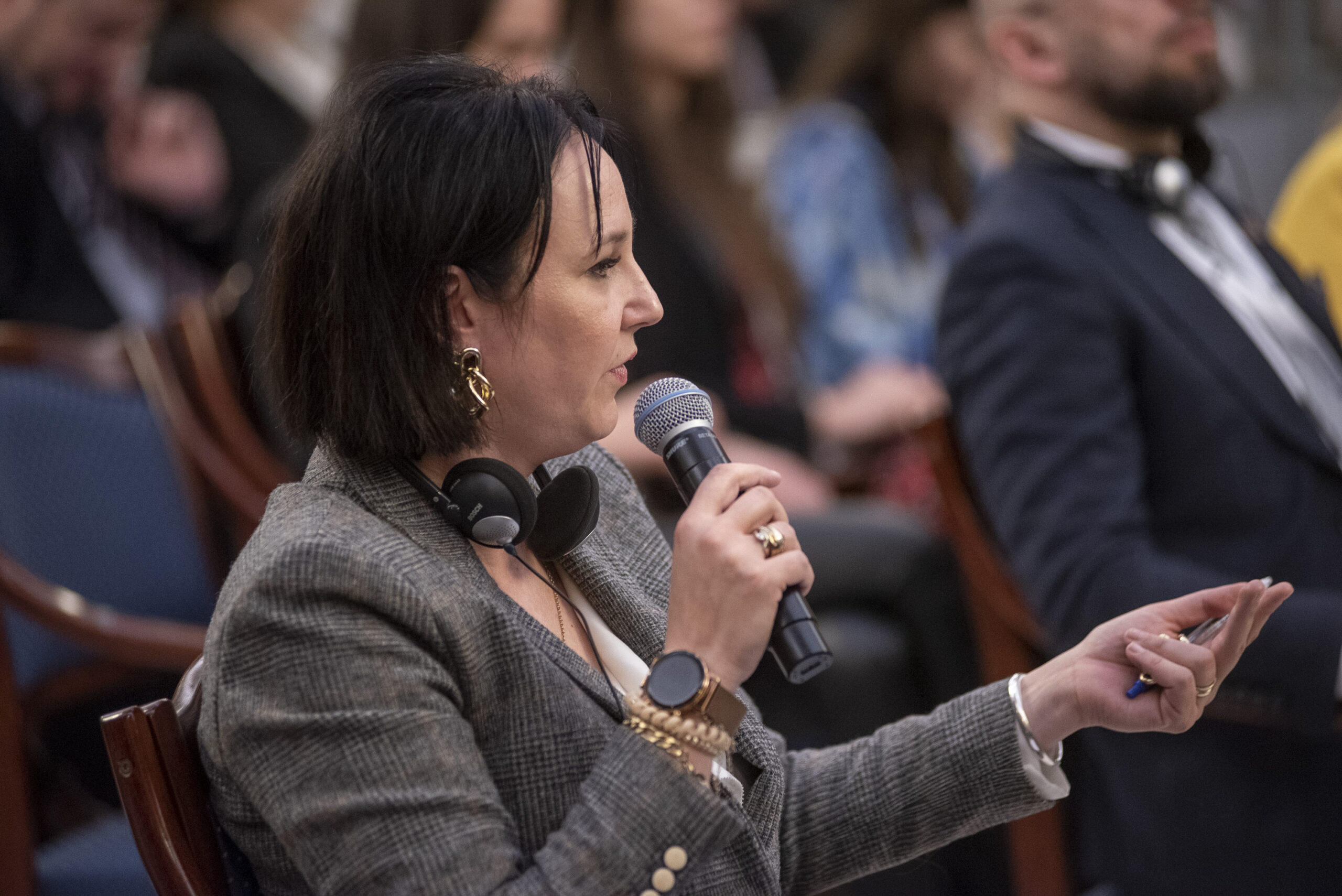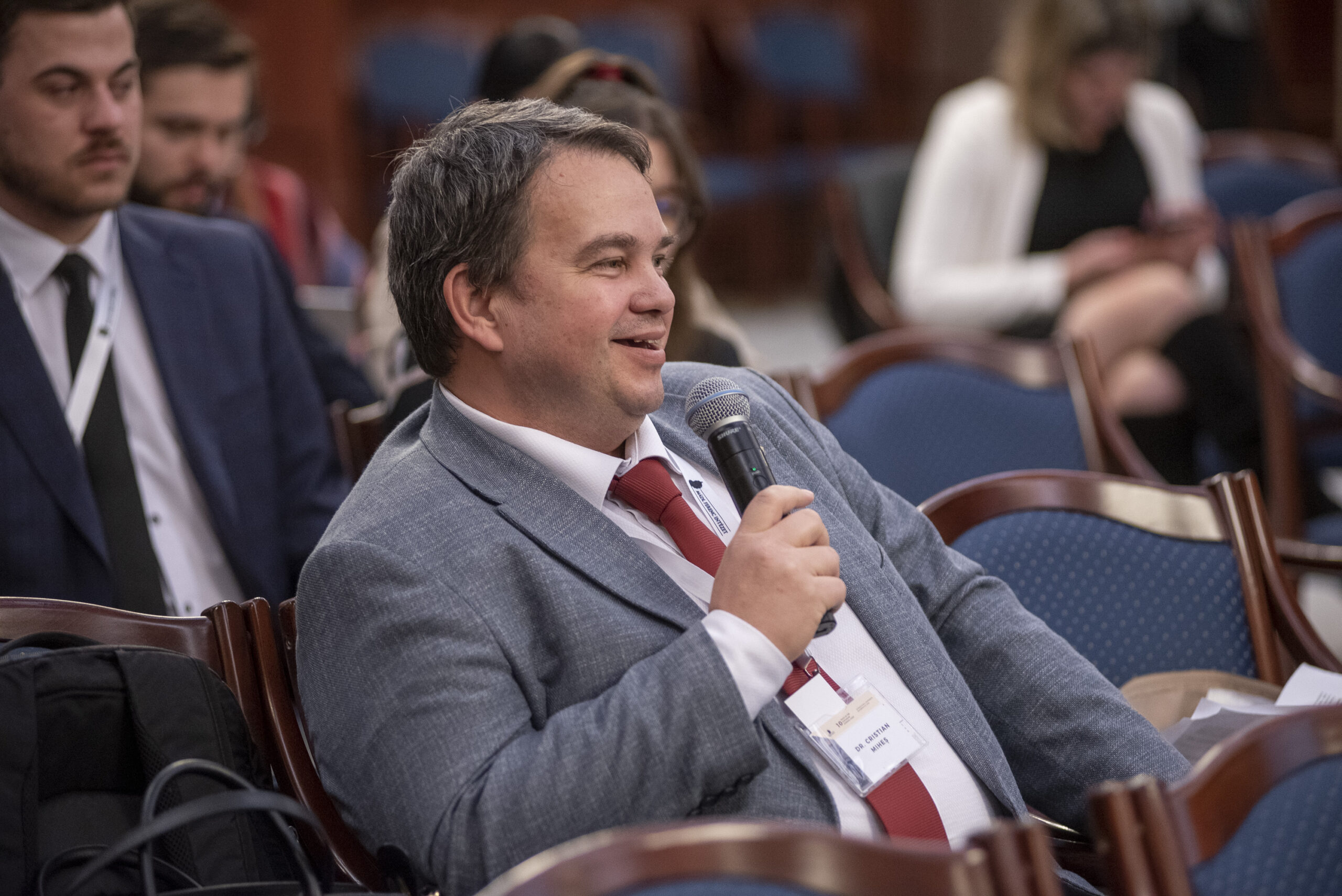The conference analysing the situation of the code of substantive criminal law of November of 2022 in the ceremonial hall of the Hungarian Surpreme Court. During the event, organized by the Ferenc Mádl Institute of Comparative Law and supported by the Faculty of Law of the University of Miskolc, the audience was able to get a general insight into, besides the status quo of the Hungarian criminal law, the relevant issues of the countries of the Central European region and the current criminological tendencies in the area.
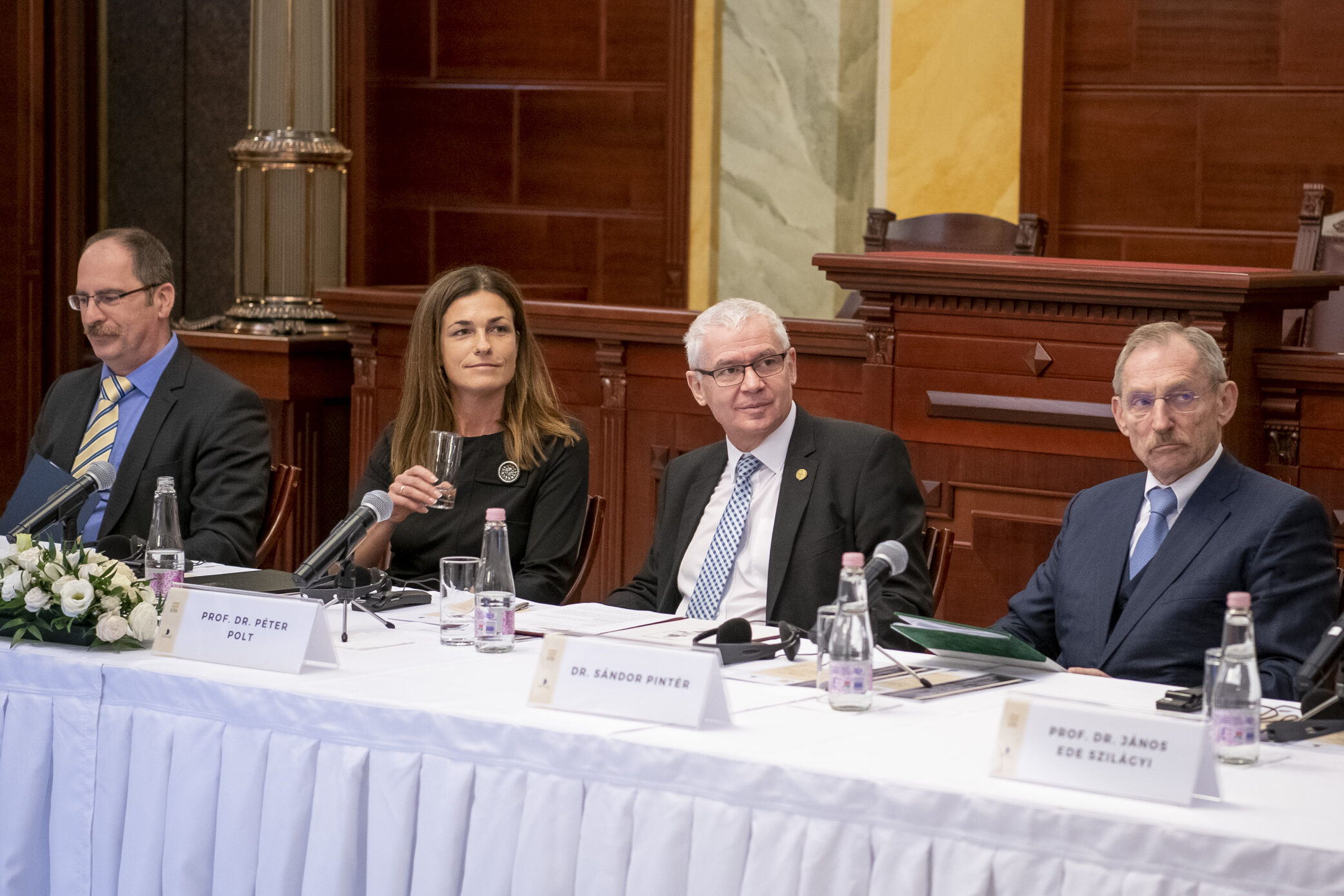
The program was opened by Dr. Judit Varga, Minister of Justice and Prof. Dr. András Patyi, Vice-President of the Hungarian Surpreme Court. The I. panel, moderated by Prof. Dr. János Ede Szilágyi (FMI, director), was commenced with the presentation of Dr. Sándor Pintér, Minister of Interior, who discussed the gained experience from the perspective of the investigating authorities regarding the 10 years of the code.
After the minister, Prof. Dr. Péter Polt, Prosecutor General and Prof. Dr. Ágnes Czine, Member of the Constitutional Court of Hungary shared their experience and personal opinion from the point of view of the prosecution service and the Constitutional Court, highlighting both the results and the future challanges. Dr. György Senyei, President of the National Office for the Judiciary drew our attention to certain aspects of the formation and the training of the criminal judges. Dr. Zsolt Csák, Head of the Criminal Chamber of the Hungarian Surpreme Court gave us a brief overview concerning the law unification activity in connection with the criminal code in power. Dr. István Kónya, Ministerial Commissioner of the Ministry of Justice emphasized the practical advantages of the code in the light of the positive results of criminal statistics. János Schmehl, Major General, Deputy Director General for Security and Incarceration, held his presentation concerning the effects of the more and more strict criminal policy in the field of law enforcement. The panel was closed with the speech of Dr. János Bánáti, President of the Hungarian Bar Association, who shared his thoughts from the defender’s perspective regarding certain practical aspects.
The II. panel, led by Dr. Gábor Jancsó, Deputy State Secretary responsible for criminal legislation, was meant to give an insight into the criminal law and criminal policy of the countries participating in the Central European cooperation. The information was presented by well-known researchers from each country: Dr. Marek Kordík (Associate Professor, Comenius University) about Slovakia, Prof. Dr. Věra Kalvodová (Head of Department of Criminal Law, Masaryk University) and Prof. Dr. Marek Fryšták (Vice-Dean, Masaryk University) about Cechia, Prof. Dr. Marcin Wielec (Vice-Dean, Cardinal Stefan Wyszyński University) about Poland, Dr. Cristian Miheș (Dean, University of Oradea) about Romania, Ivana Radisavljević (University Assistant, University of Belgrade) about Serbia, Dr. Miha Šepec (Associate Professor, University of Maribor) and Maja Kotnik (PhD-student, University of Maribor) about Slovenia and Dr. Marta Dragičević Prtenjača (Associate Professor, University of Zagreb) about Croatia. The first day of the conference was closed by Prof. Dr. Csongor Herke DSc (Head of the Department of Criminal and Civil procedure law, University of Pécs), who gave an overview on Hungarian criminal law and criminal policy and the words of Prof. Dr. János Ede Szilágyi.
The III. panel of the event took place on the second day, under the moderation of Prof. Dr. Andrea Tünde Barabás, Director of the National Institute of Criminology. In the first presentation, Prof. Dr. Mihály Tóth DSc (Professor, Károli Gáspár University of the Reformed Church) reflected on the development of criminal sciences during the last decade and also talked about the potential future questions.
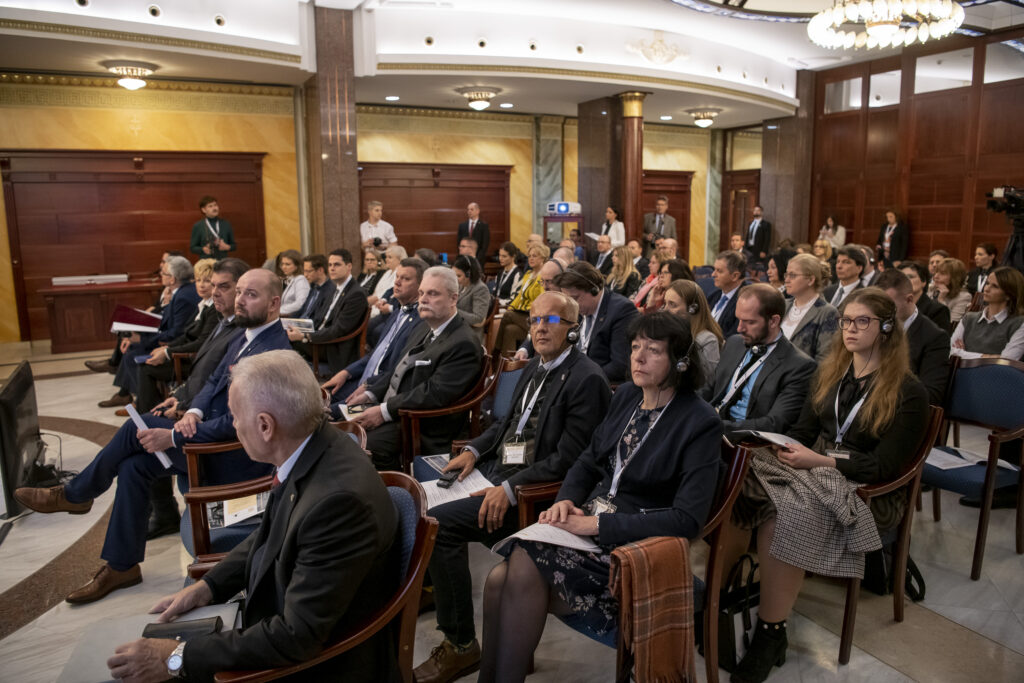
Prof. Dr. Zsolt Szomora (Deputy-Head of Institute, University of Szeged) drew our attention to the newest criminal tendencies that made the numerous amendments of the criminal code necessary. Dr. habil. Róbert Bartkó (Associate Professor, University of Győr) introduced us his latest results achieved via comparative research in the field of criminal law instruments concerning the fight against terrorism. Prof. Dr. Erika Róth (Director of the Institute of Criminal Justice, University of Miskolc) showed us the novelties of the coercive measures appearing in the Hungarian Criminal Procedural Code. Dr. habil. Sándor Madai (Head of the Department of Criminal Law and Criminology, University of Debrecen; Associate Professor, National University of Public Service) presented certain common and different features of the Central European countries concerning the criminal protection of the economy. In their paper, Prof. Dr. Judit Jacsó (Head of the Department of Criminal Law and Criminology, University of Miskolc) and Dr. Bence Udvarhelyi (Assistant Professor, University of Miskolc) focused on the protection of the financial interests of the European Union, in particular, on the problematic issues of money laundering. Prof. Dr. Klára Kerezsi DSc (Professor, National University of Public Service) shared the major similarities of criminal policies among Central European countries, highlighting the common goals of the legislative organs. Finally, Dr. Erika Csema-Váradi (Associate Professor, University of Miskolc; Senior Researcher, MFI) held her presentation about the social challanges of the past 30 years and the relevant criminal law reactions, using an interdisciplinary approach.
The event was closed with the thoughts and the acknowledgements of Prof. Dr. János Ede Szilágyi. The success of the conference is well demonstrated by the fact that a vivid dialogue evolved among the lecturers and the members of the audience during the discussion and between certain presentations too, that may prove to be „fertile soil” for future comparative criminal law research.
Programme of the event in Hungarian:
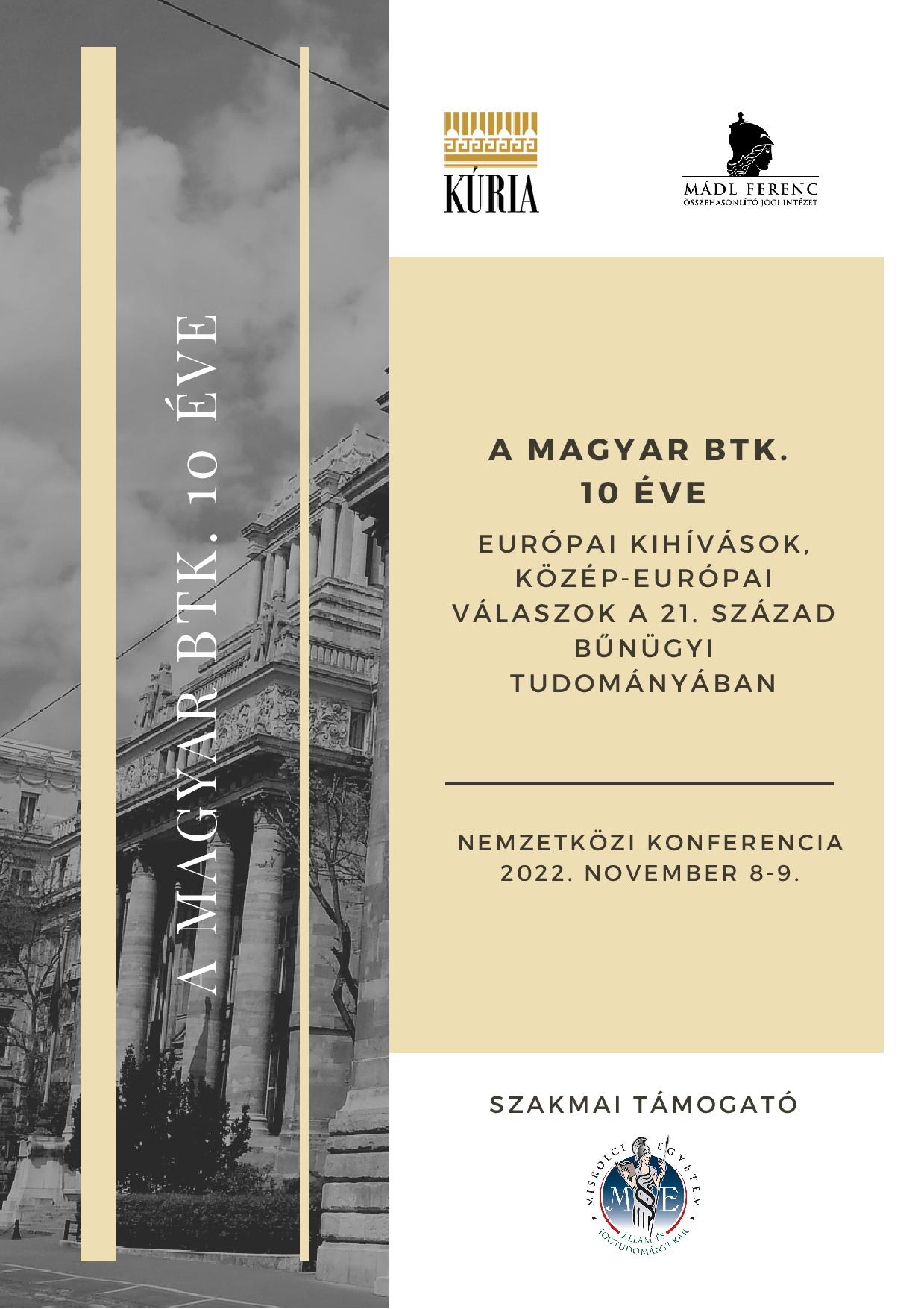
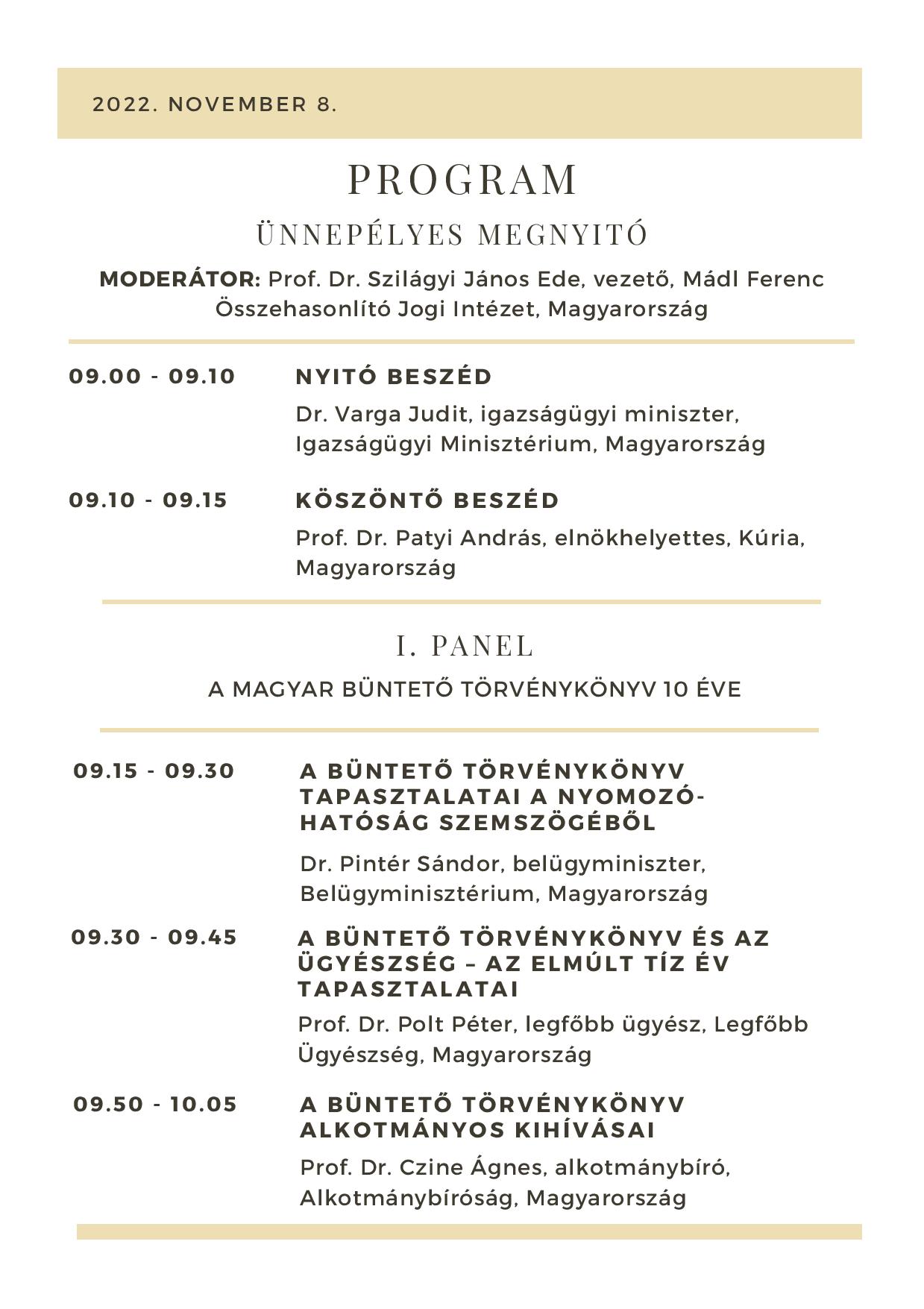
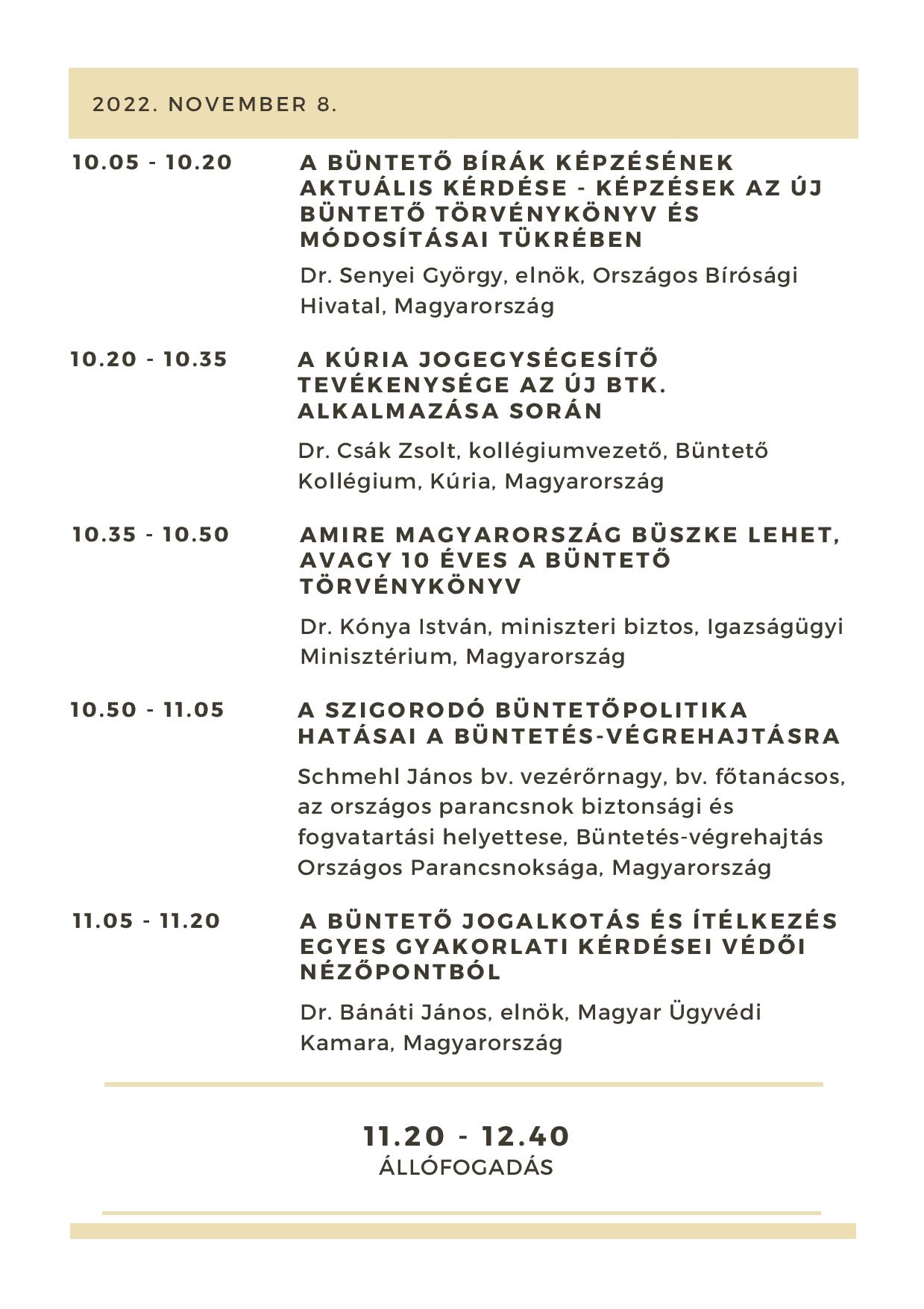
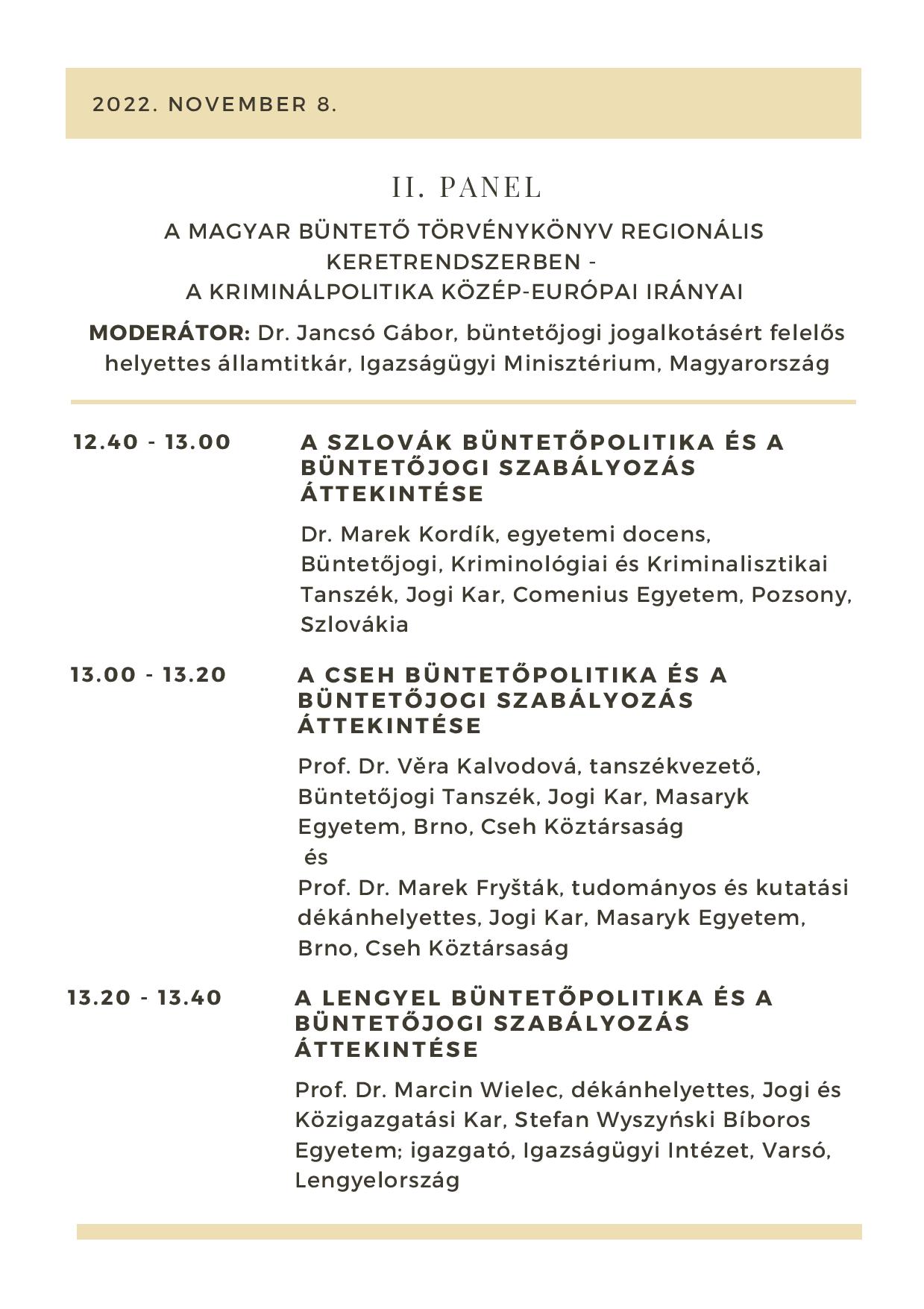
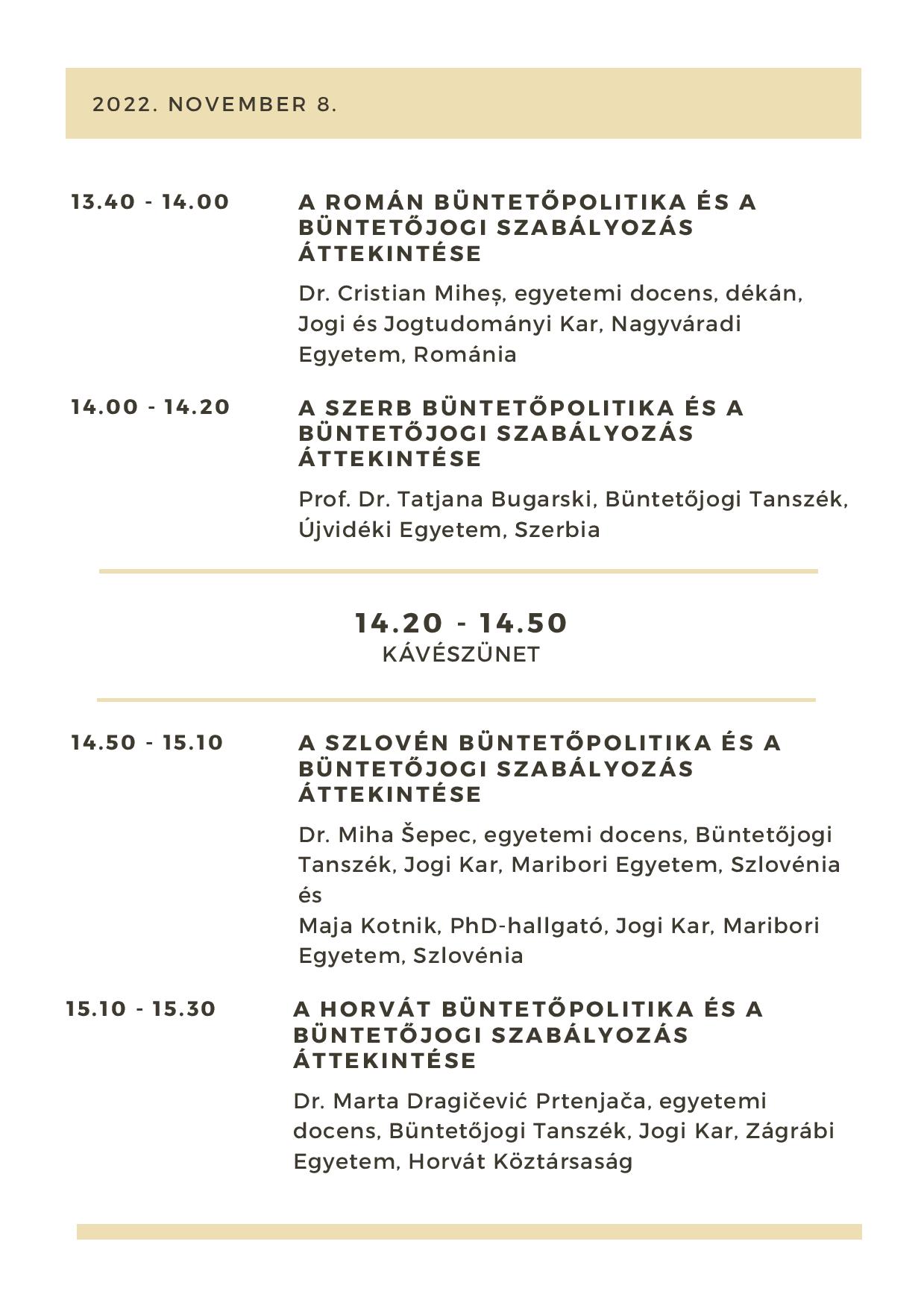
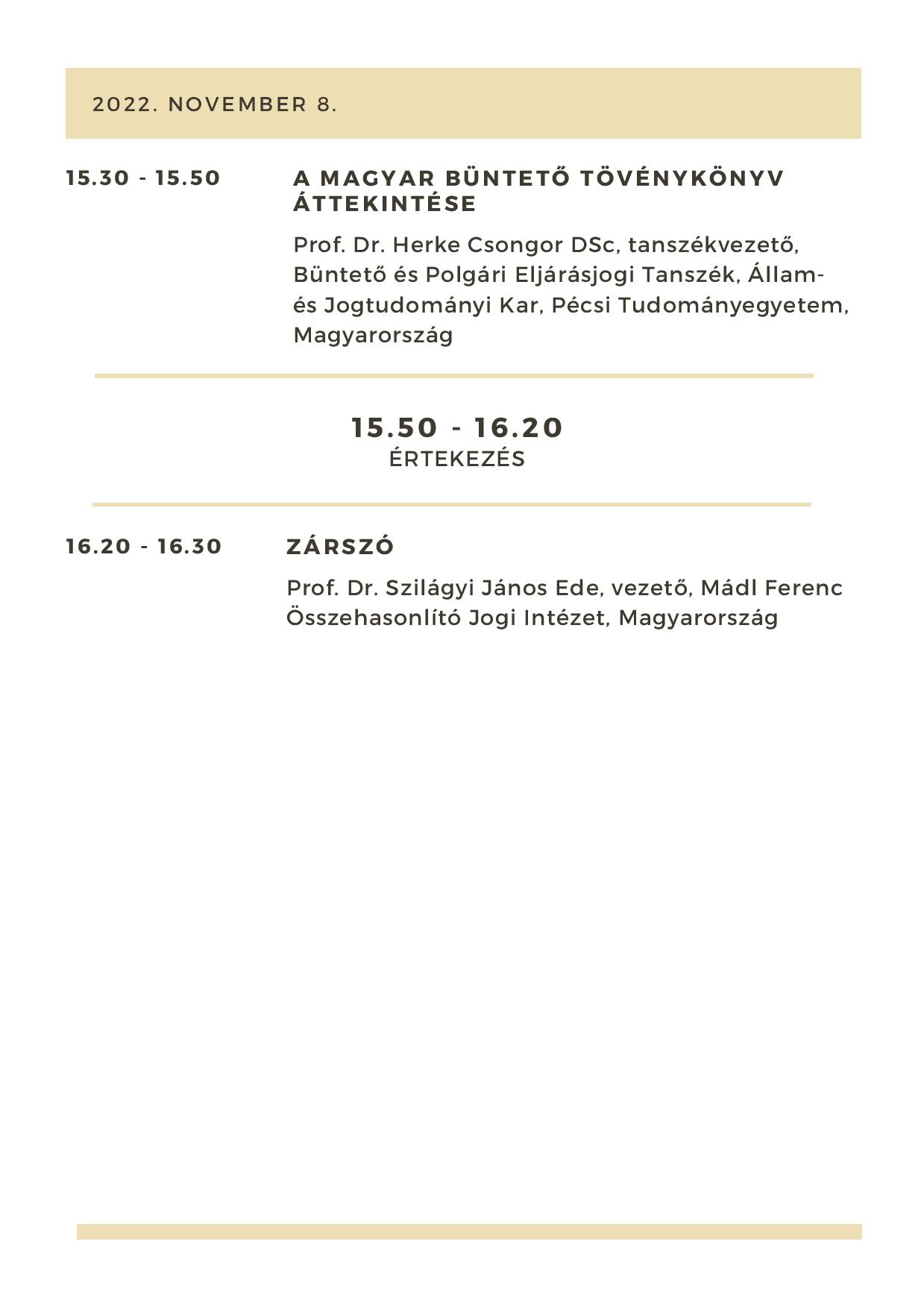
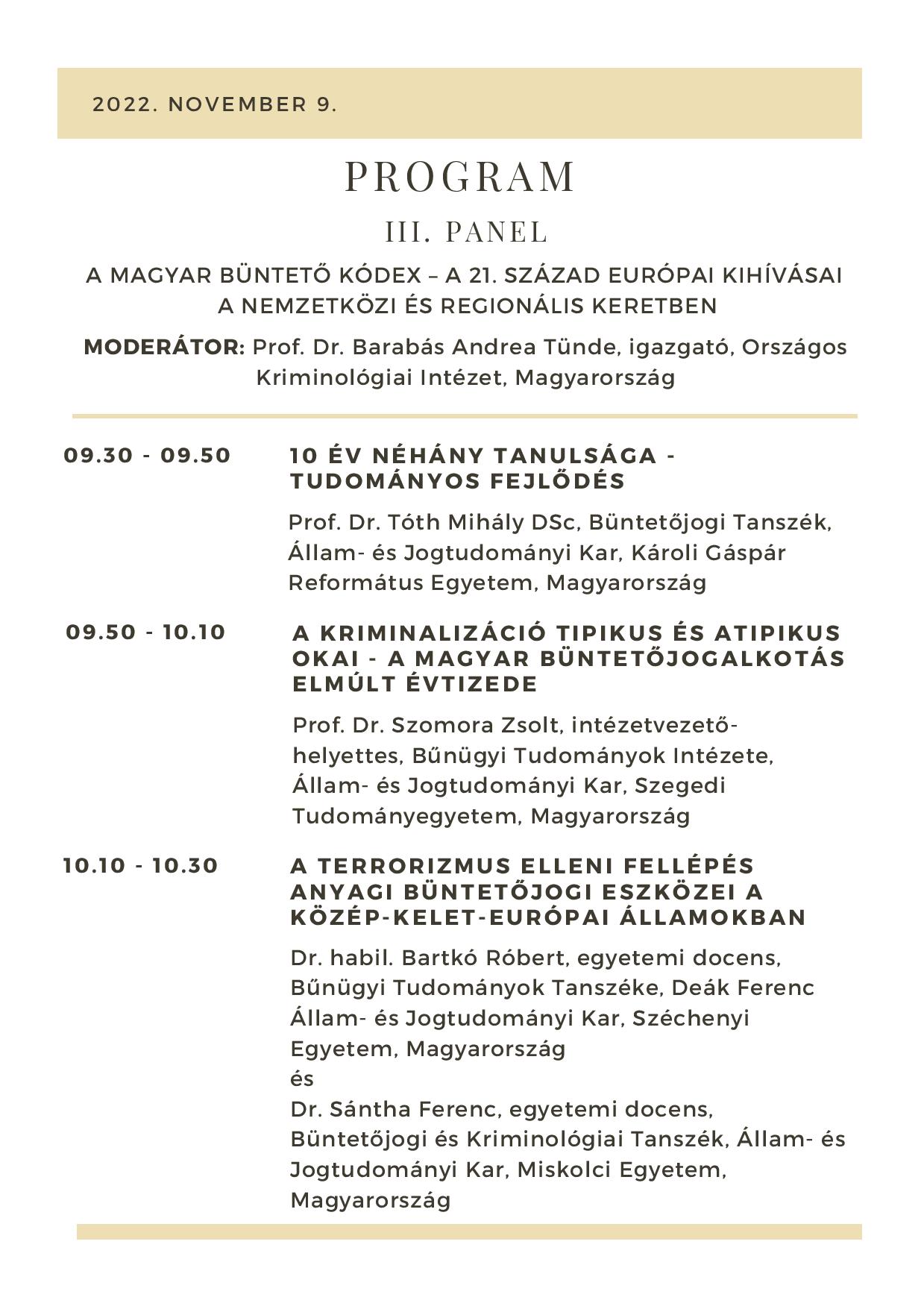
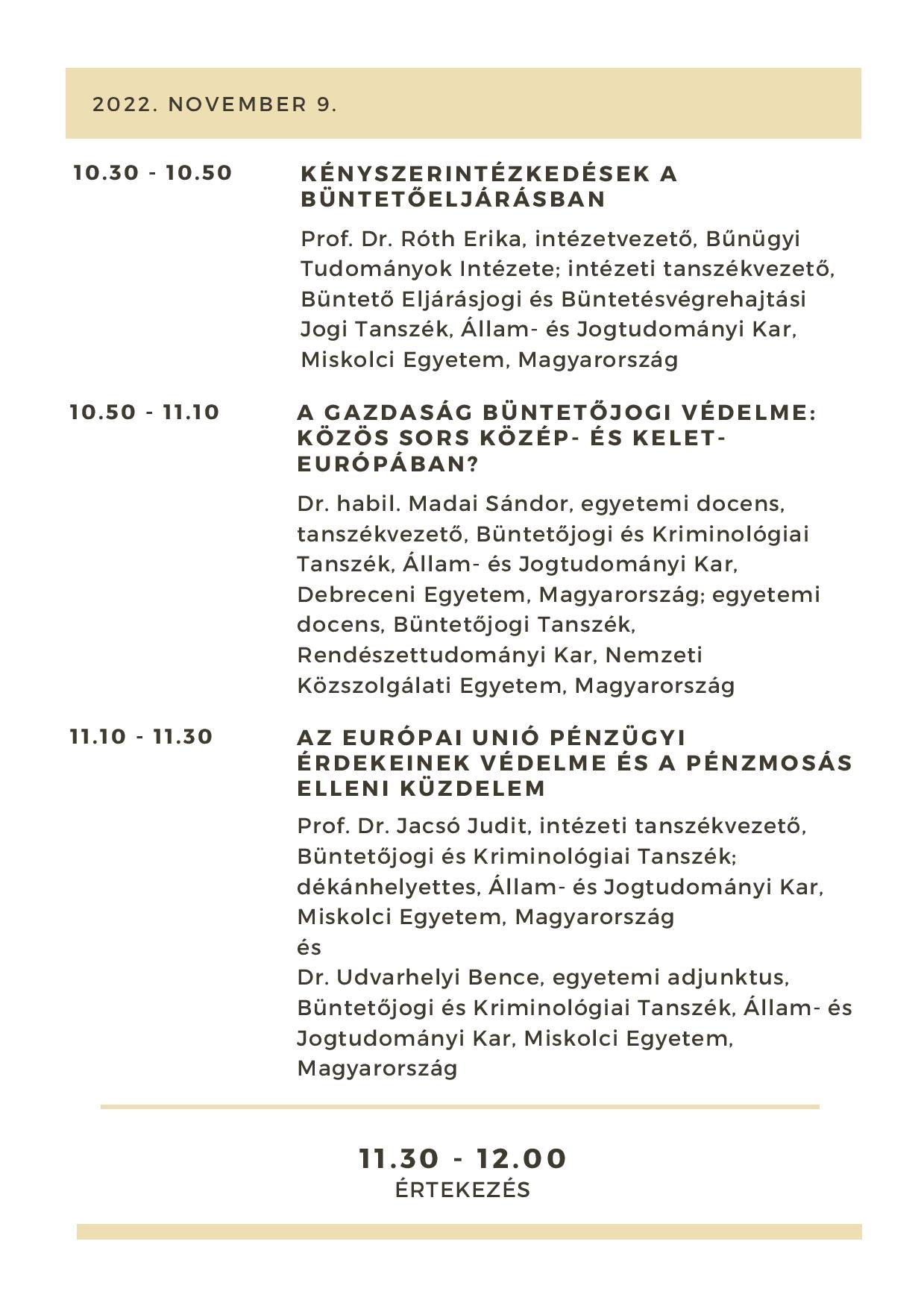
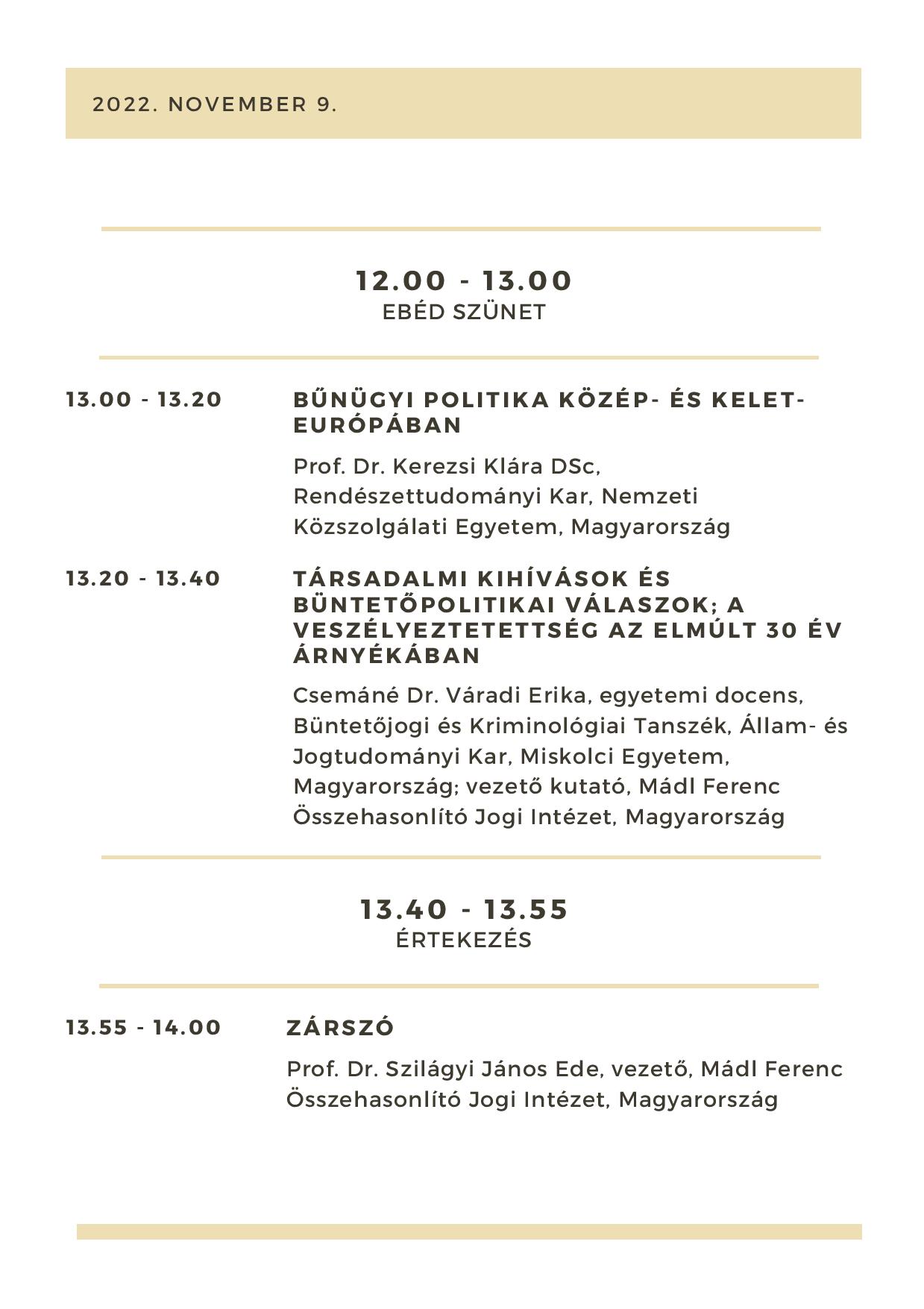
Videos of the presentations in English:
Video: Nextage Productions Kft.
Other elements of the playlist:
Photos from the first day:
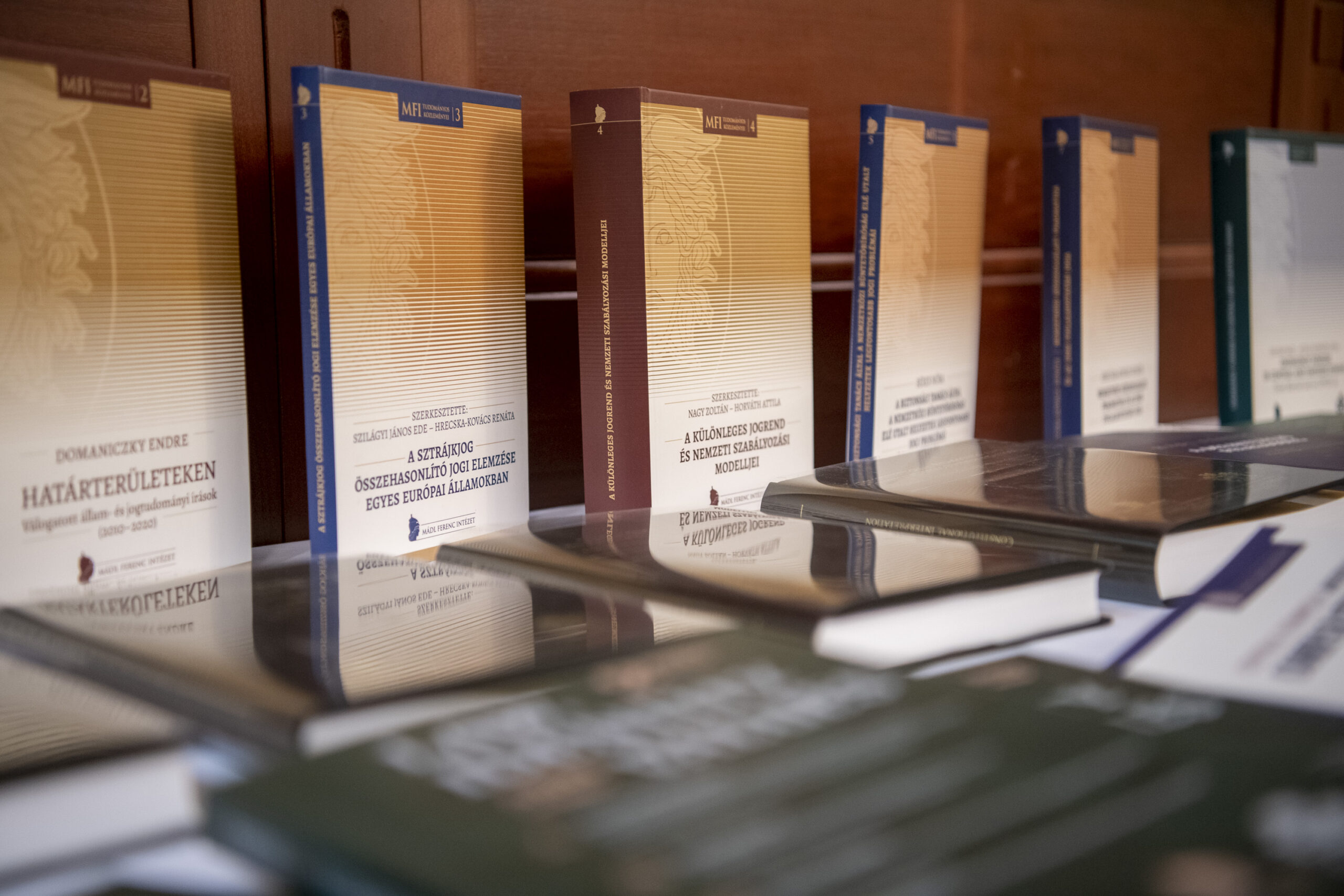
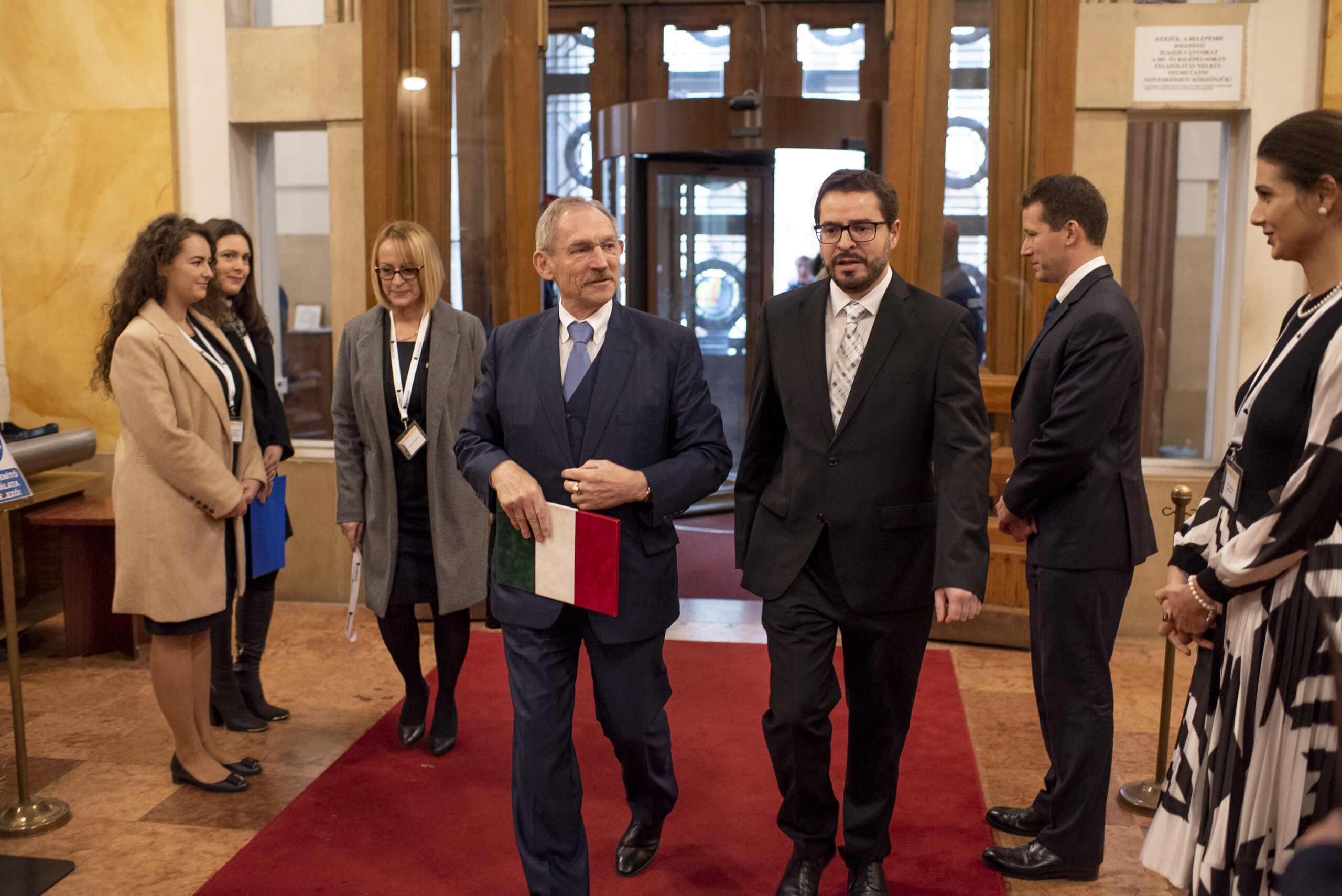
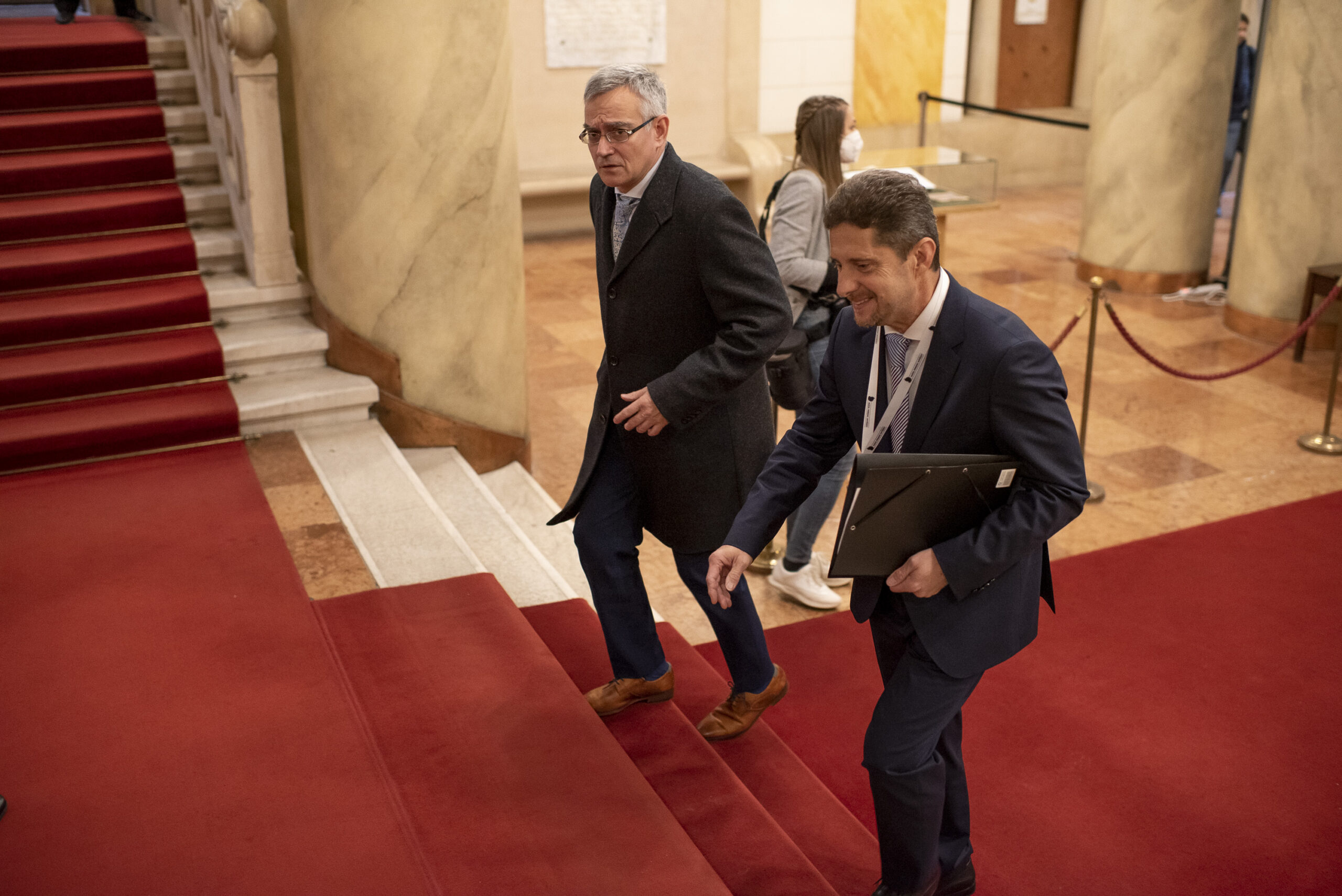
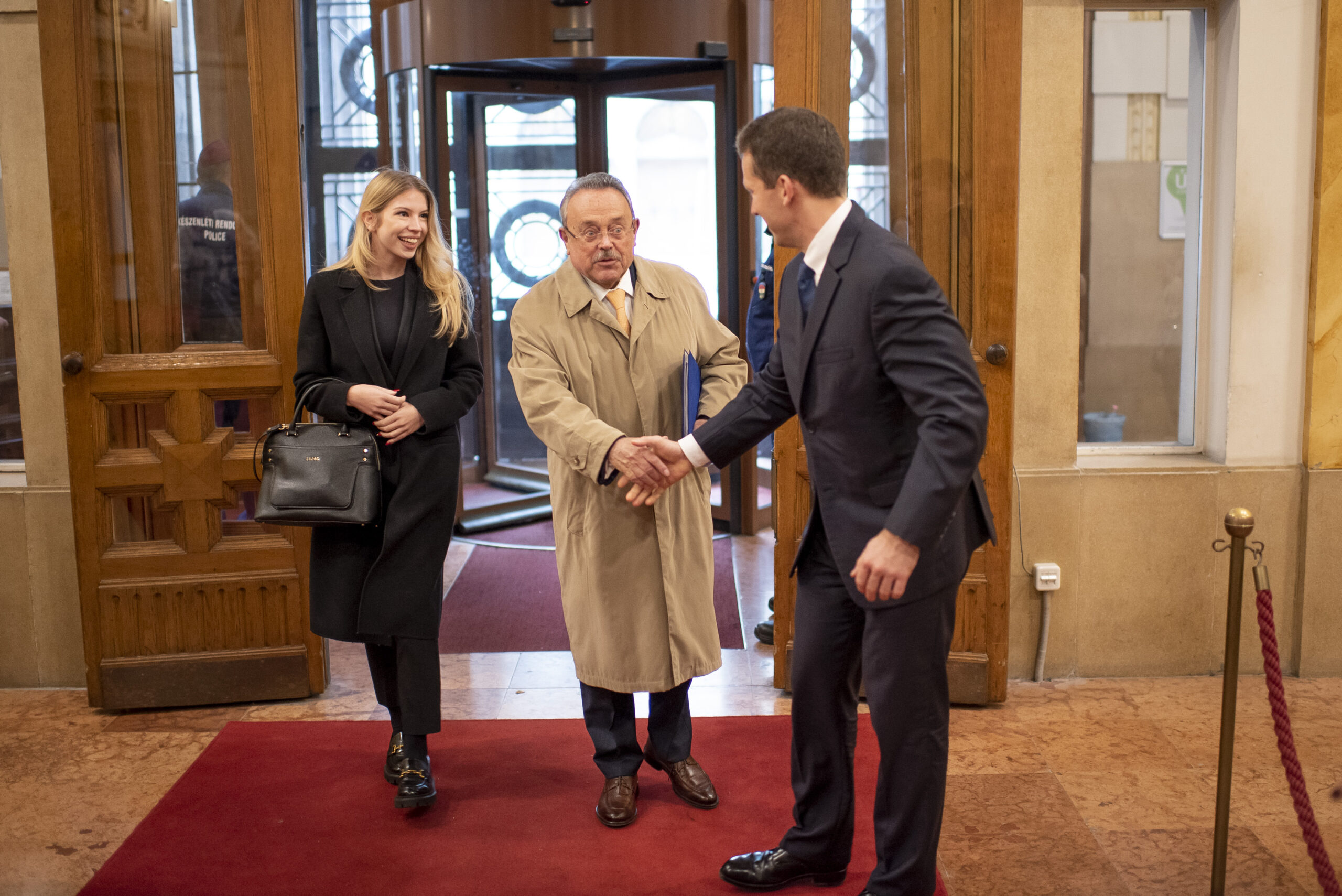
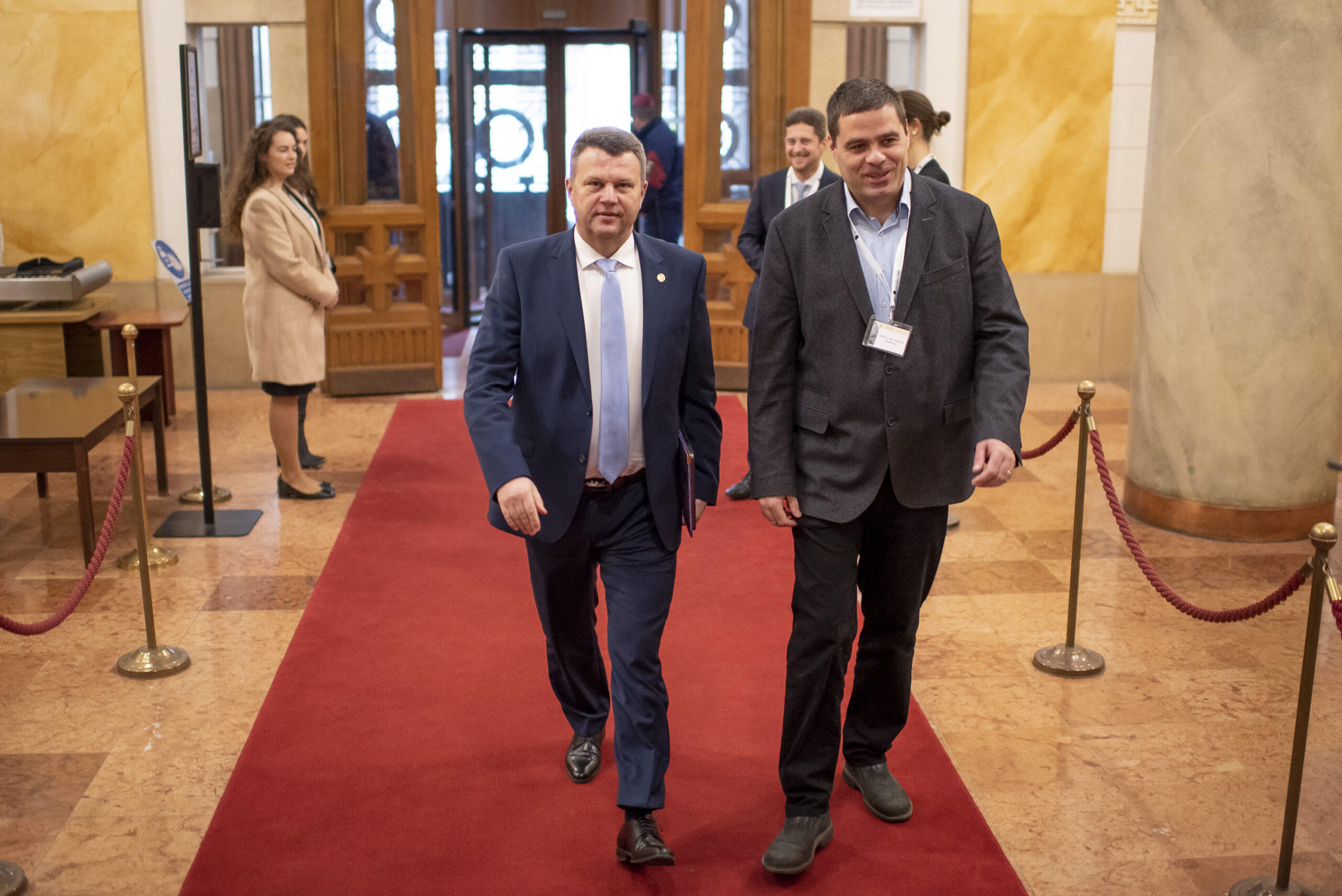
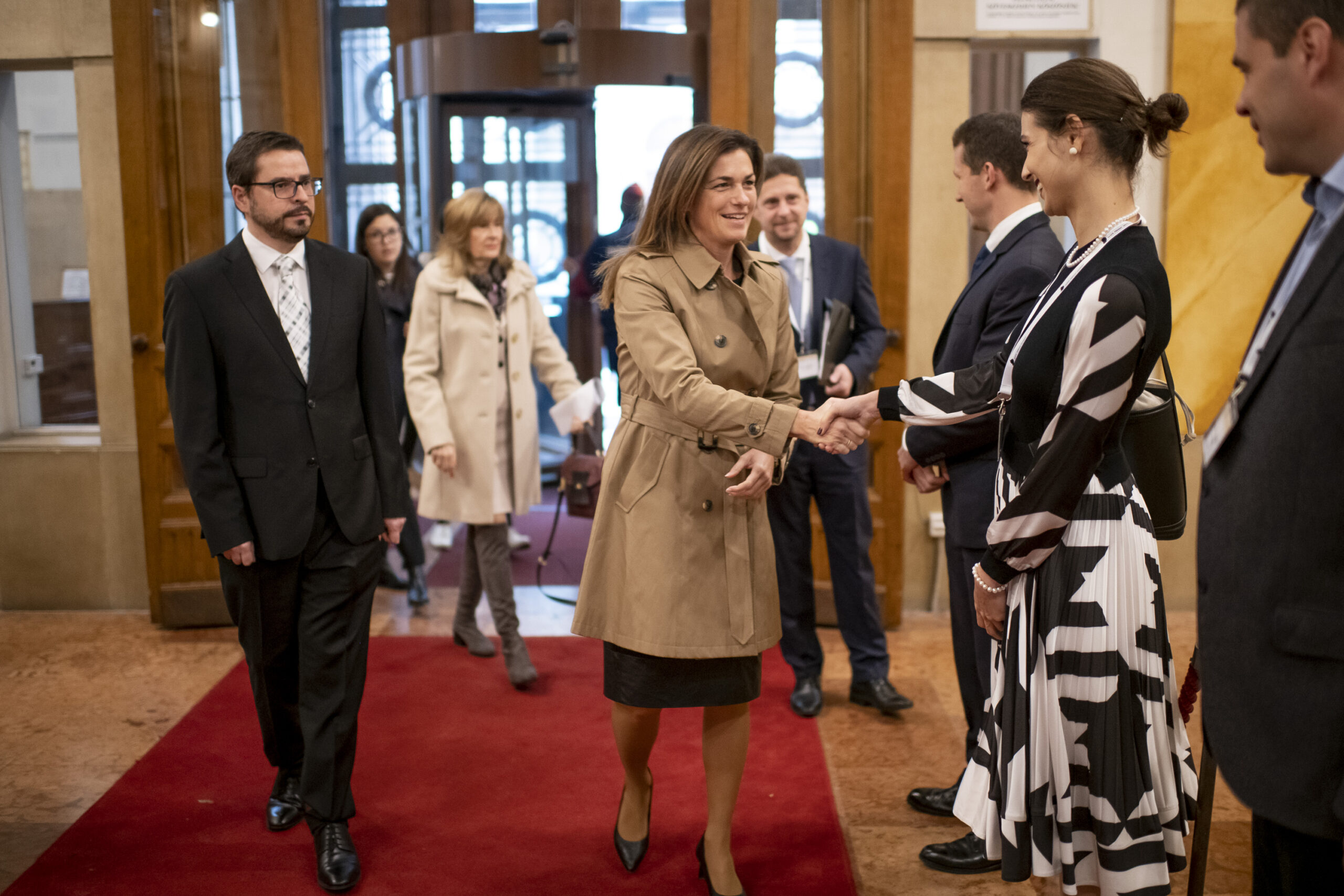
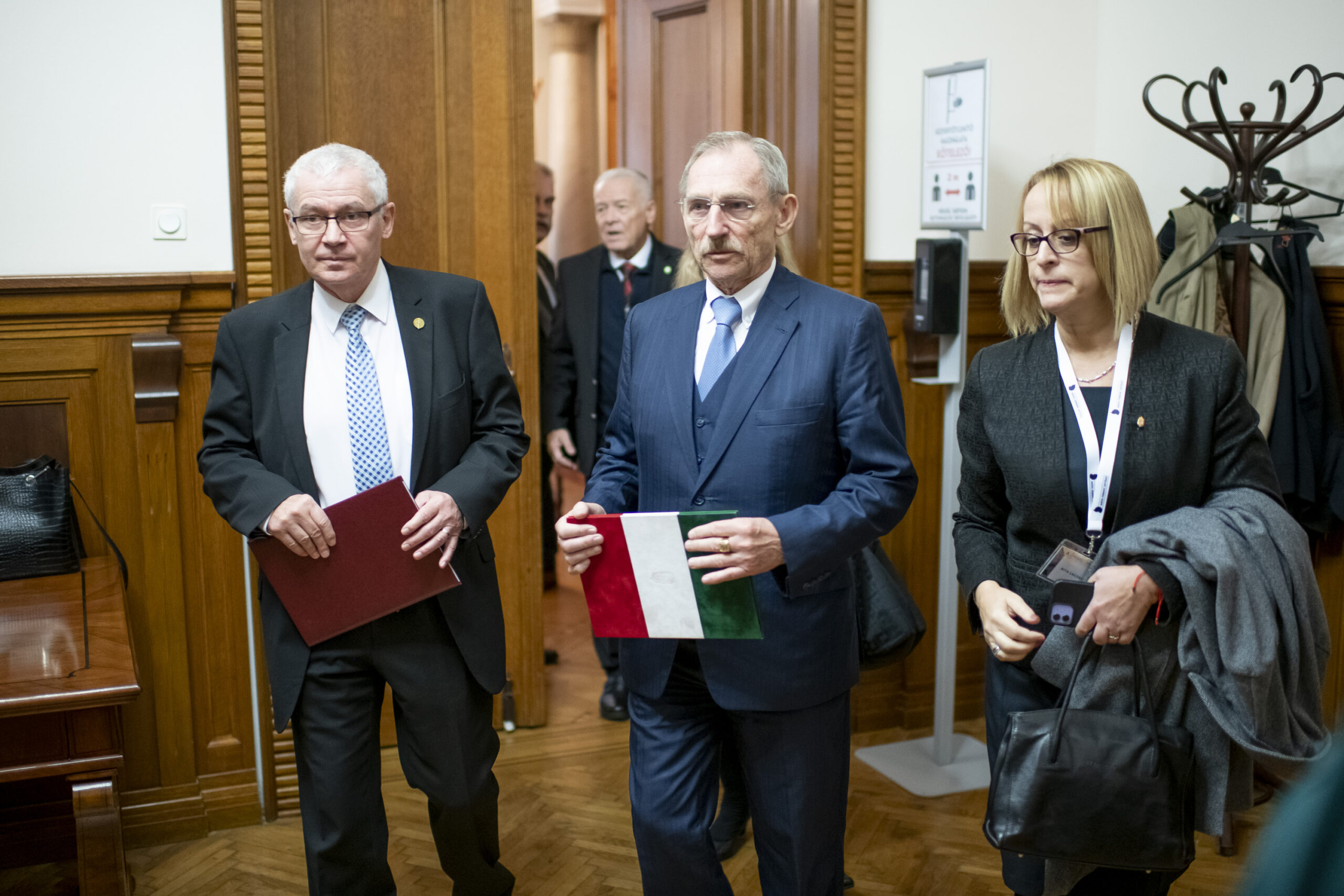
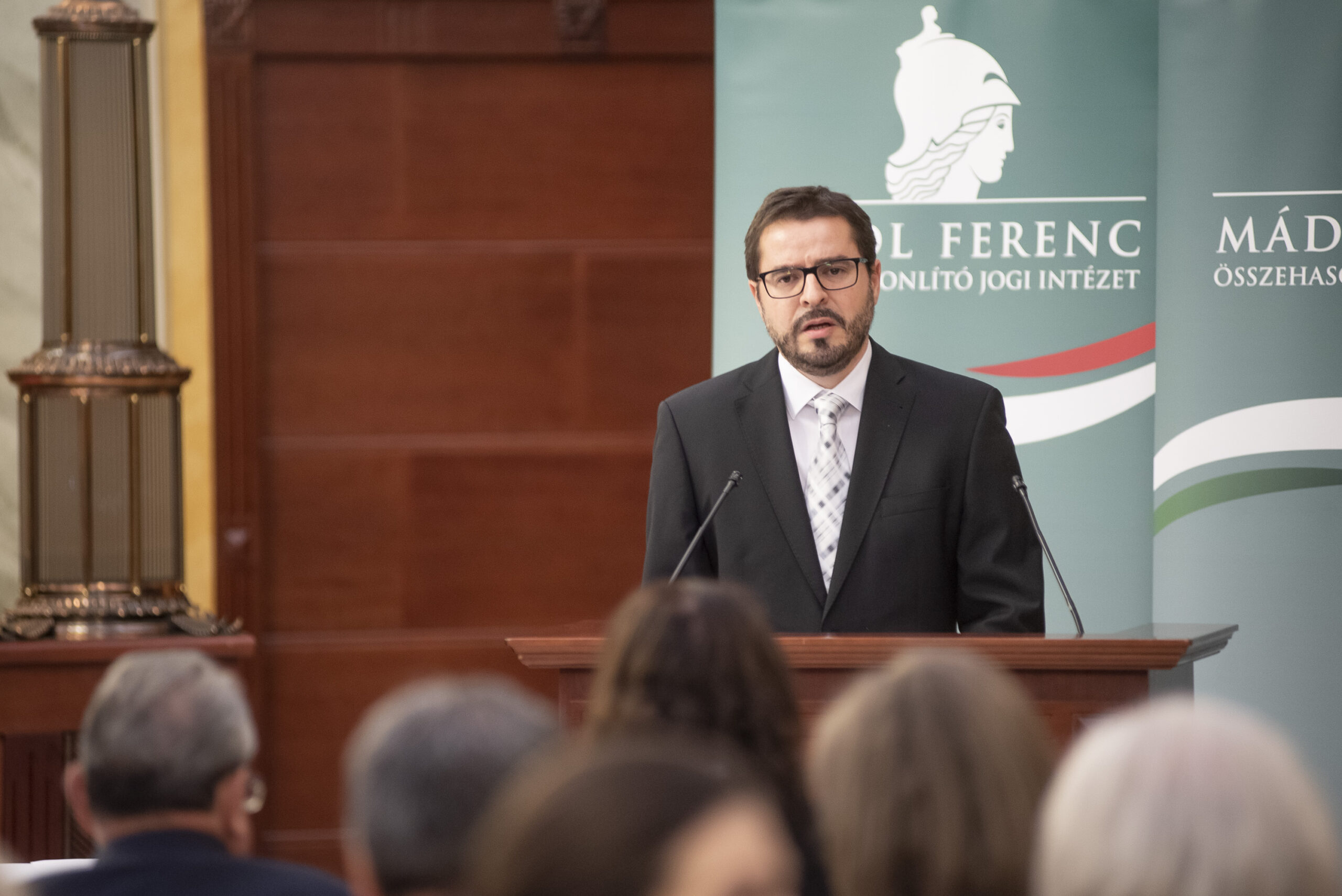
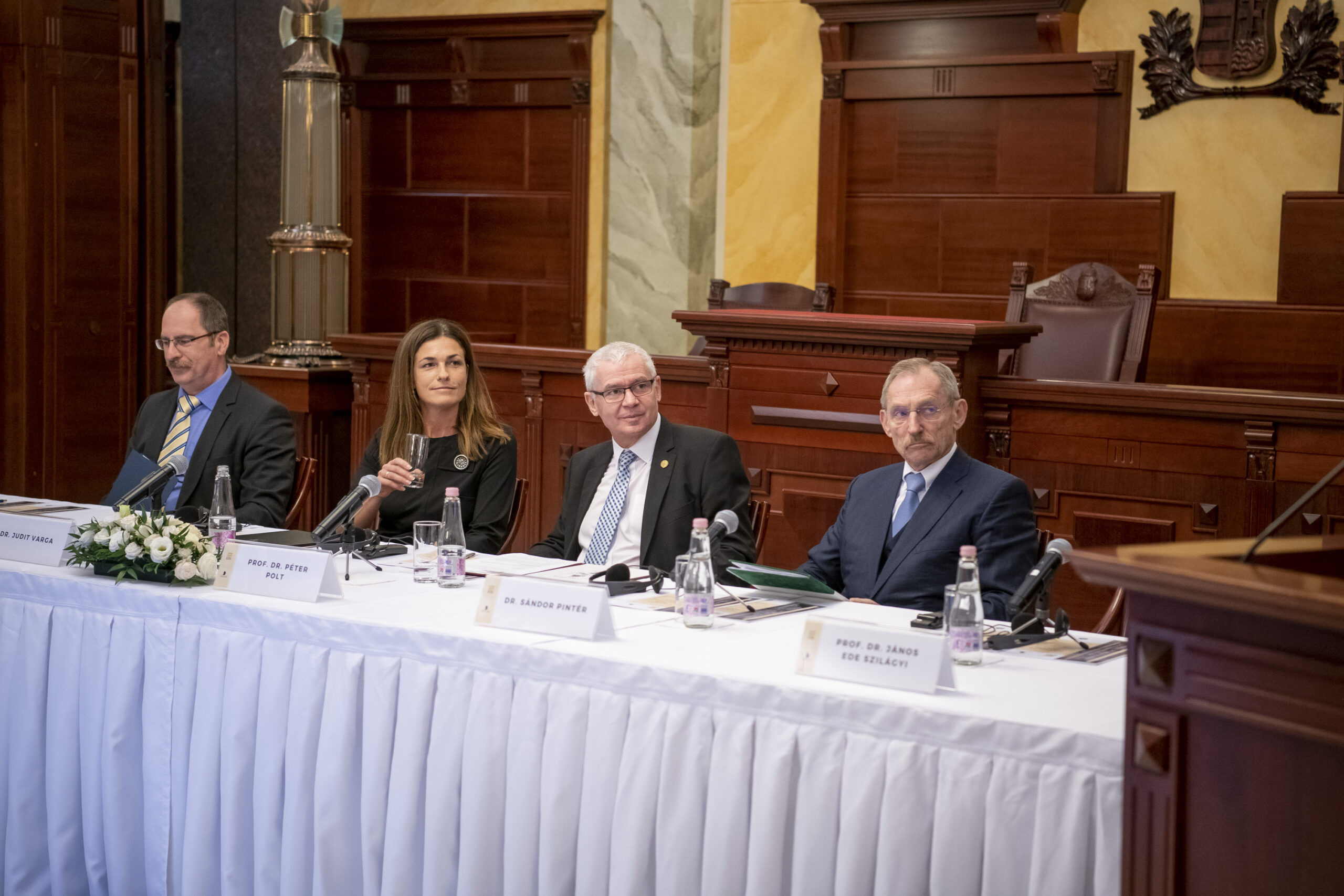
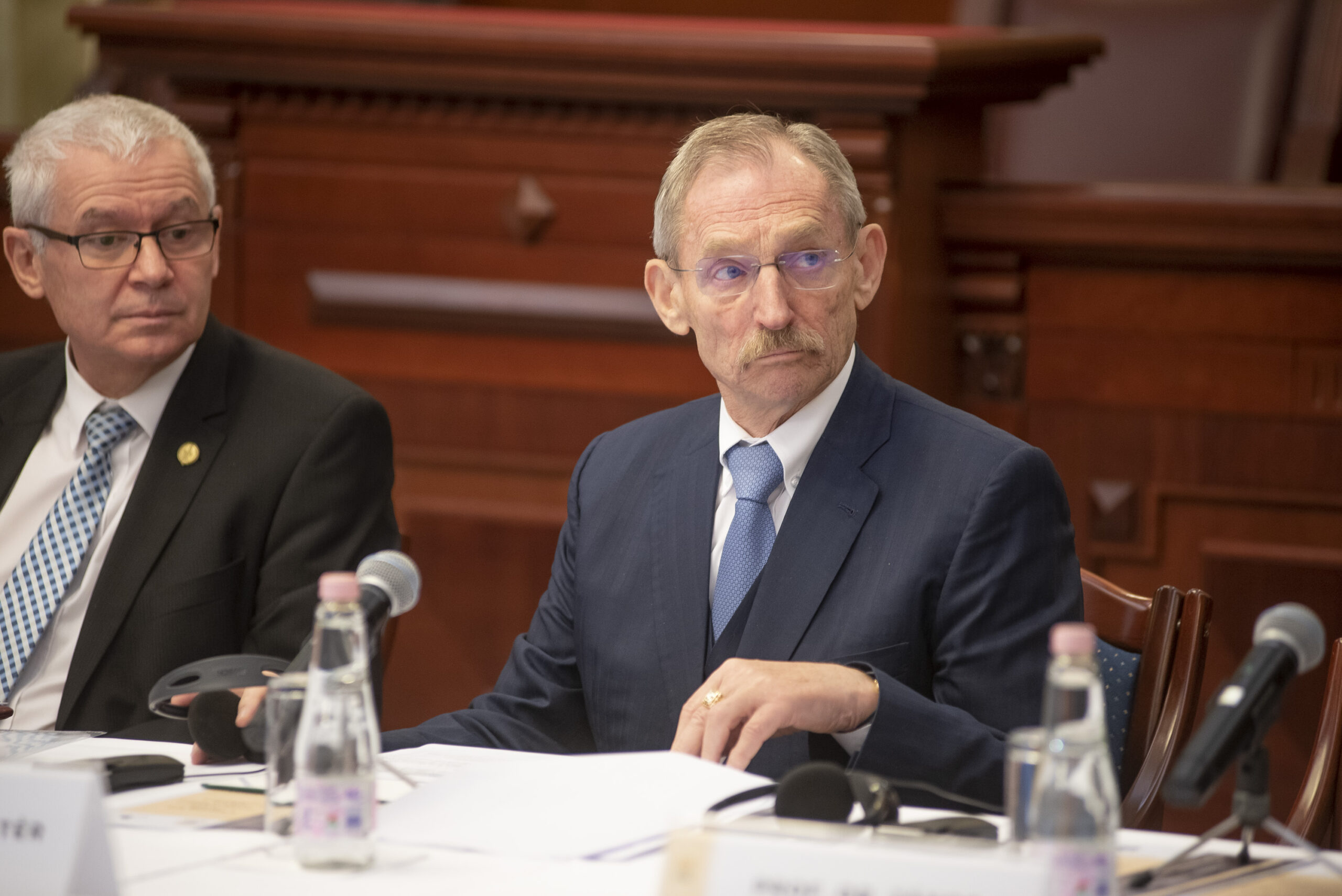
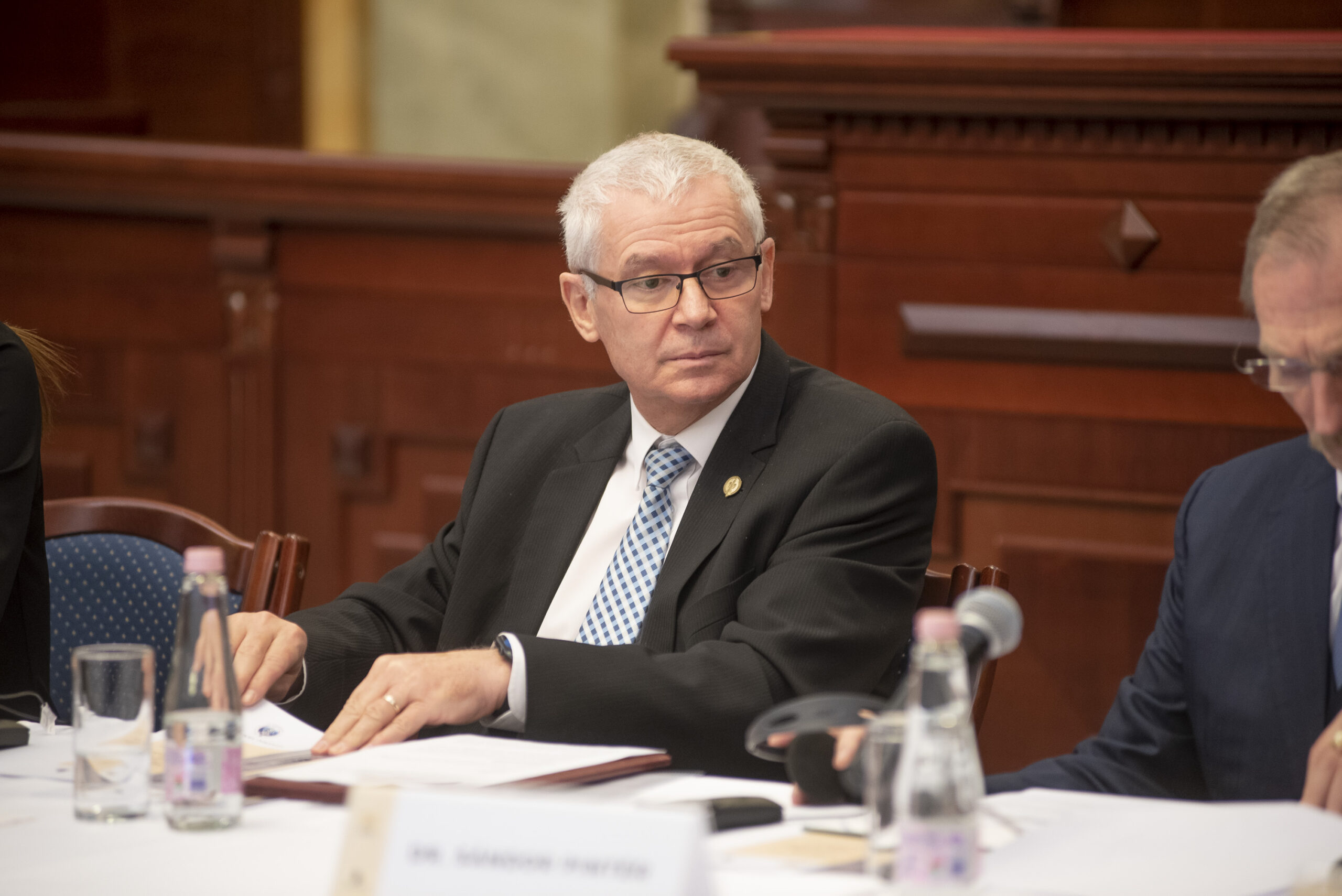
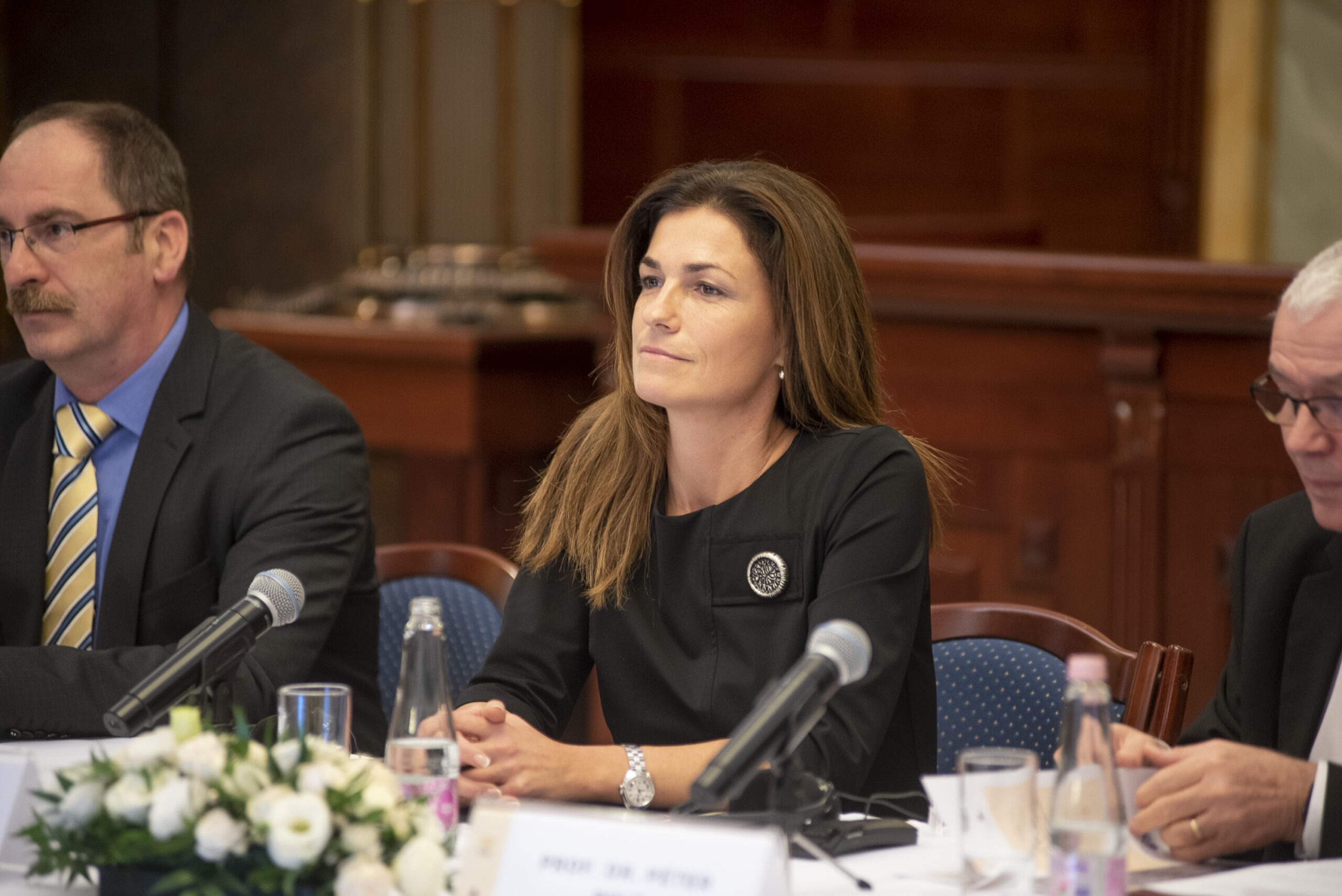
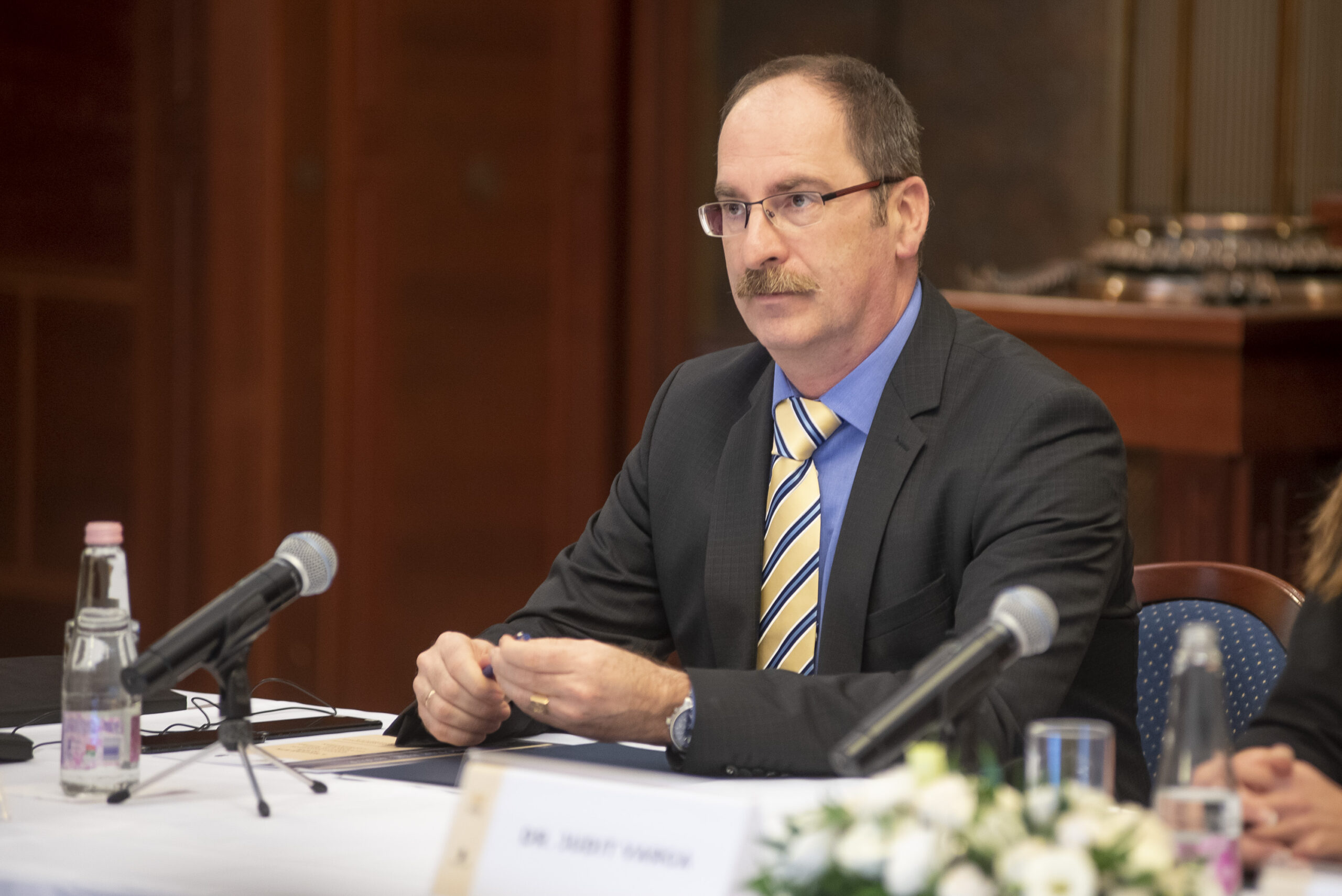
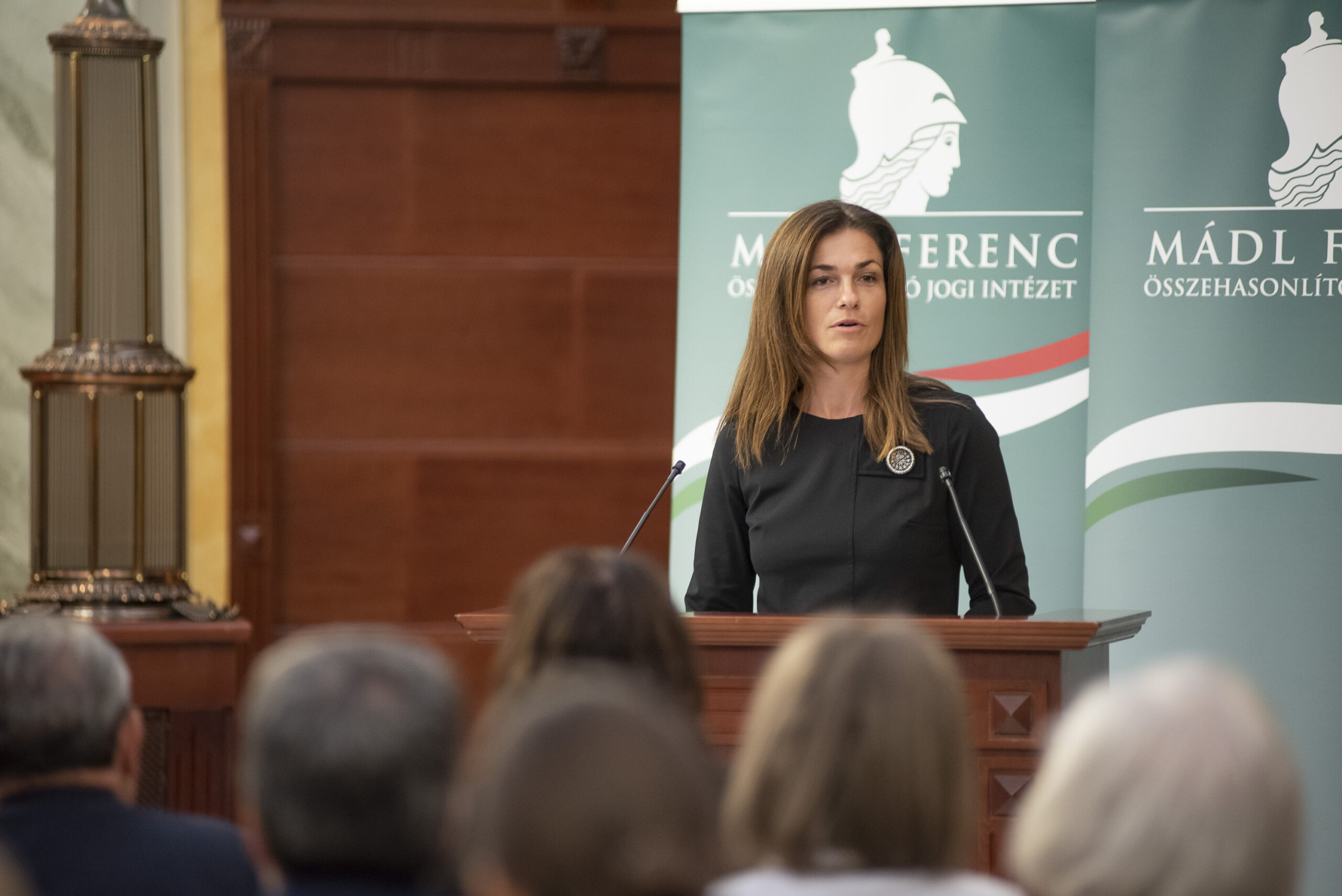
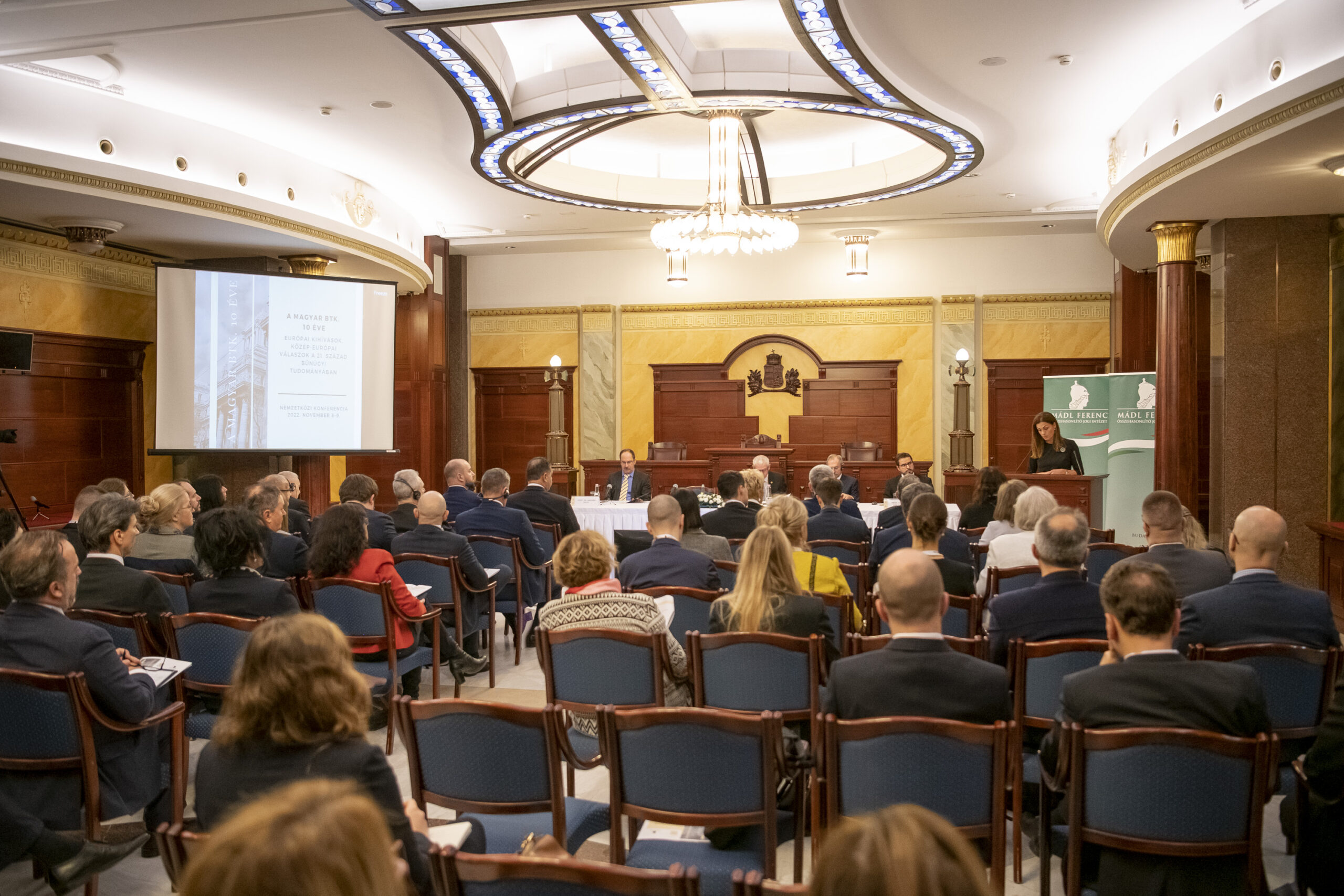
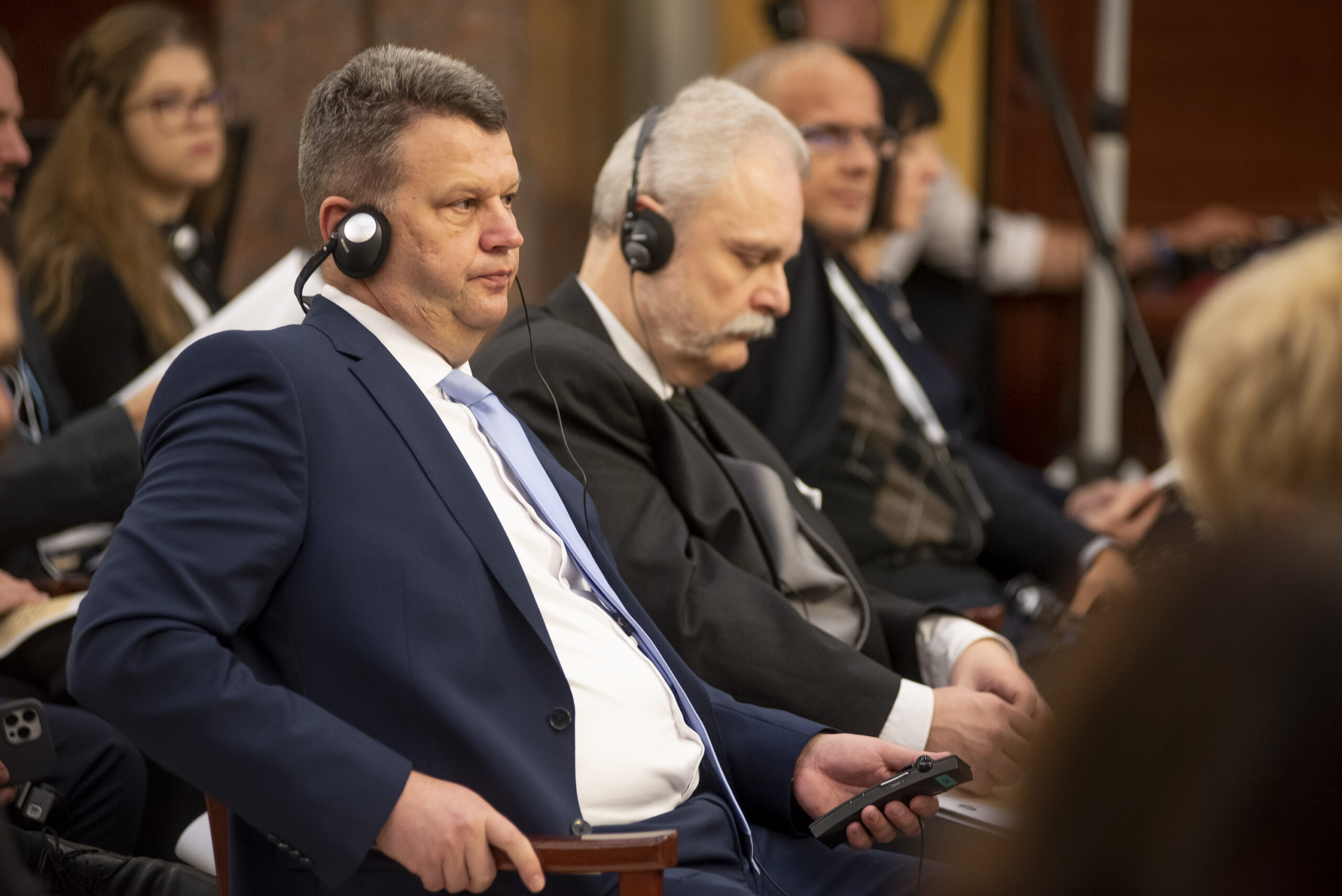
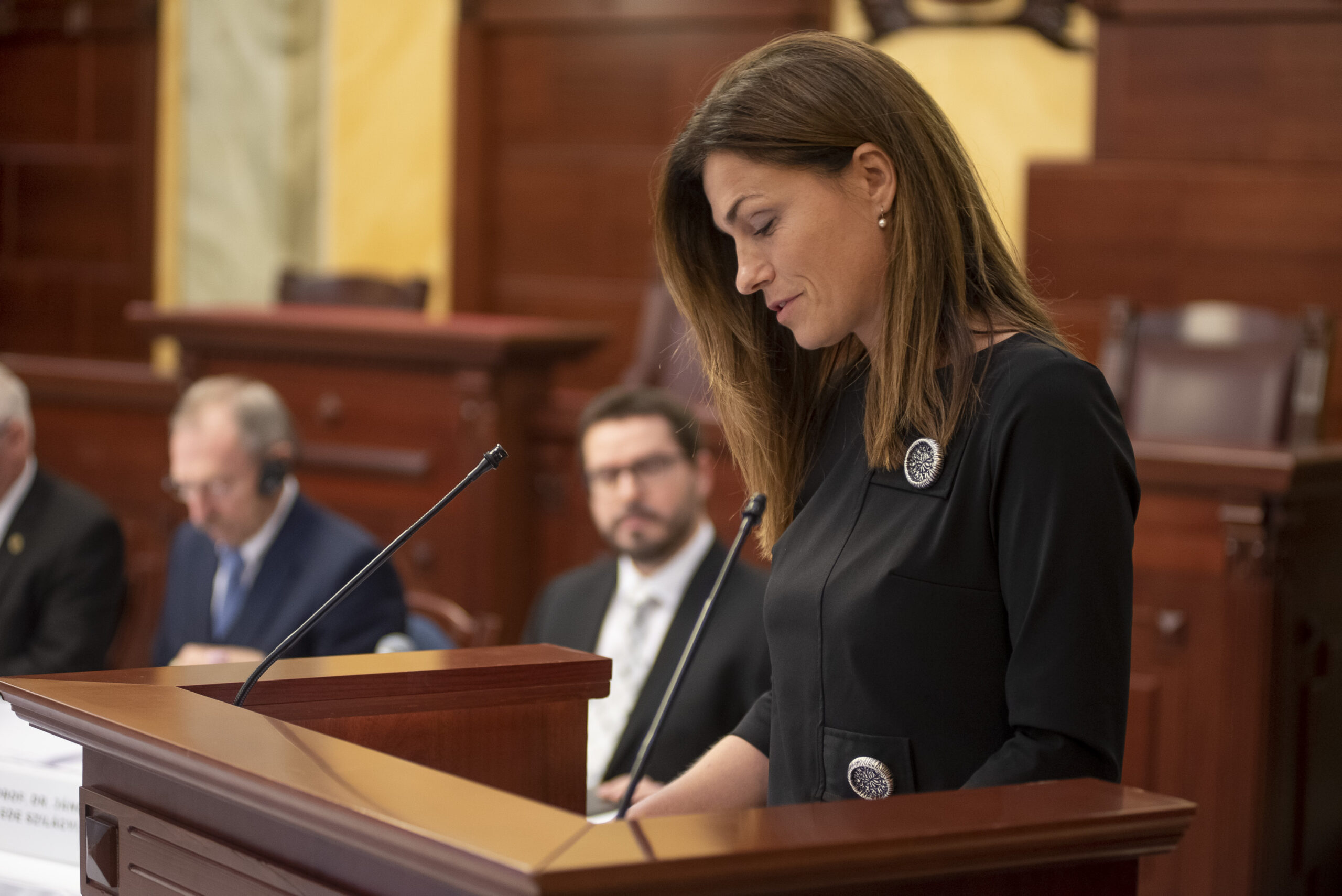
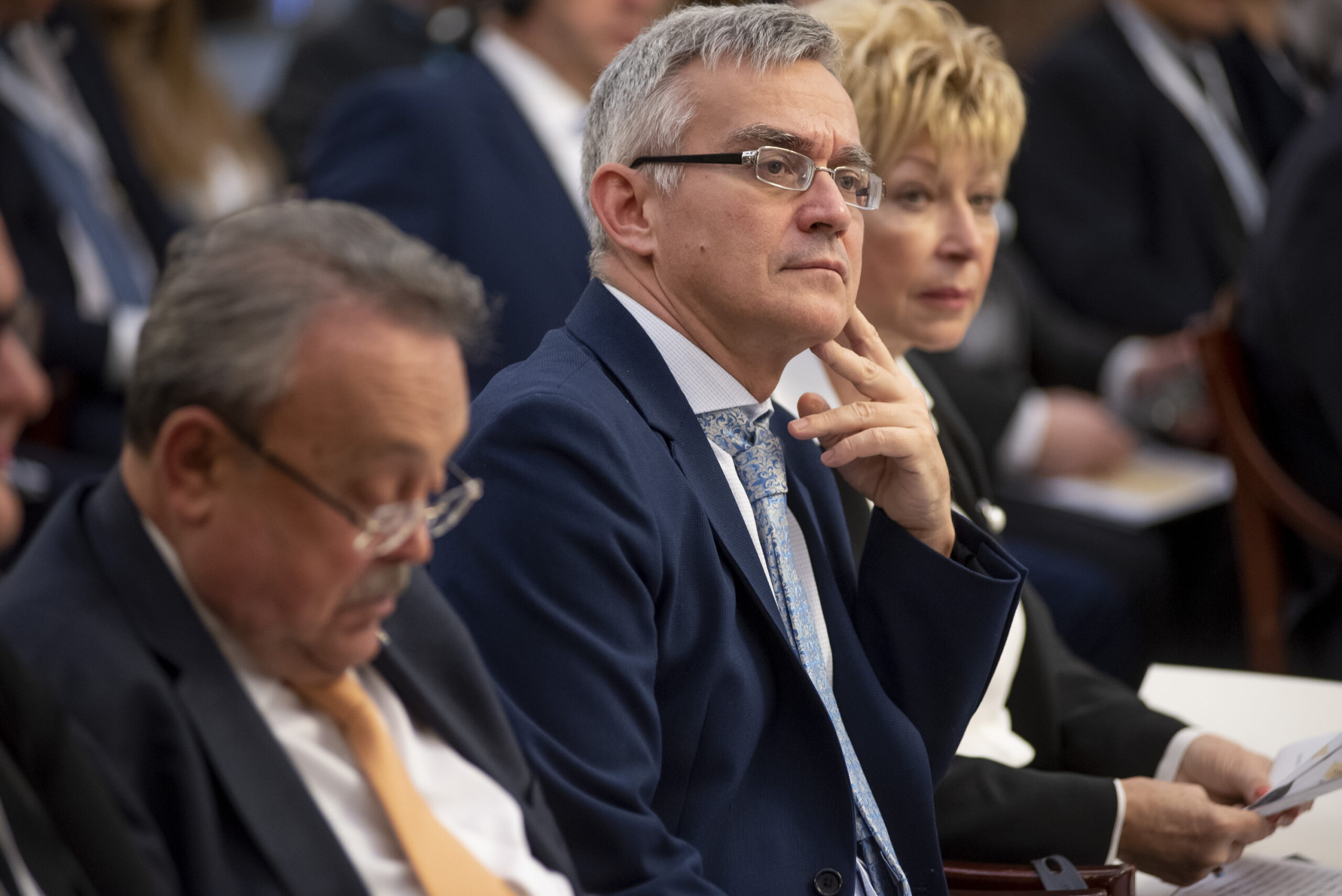
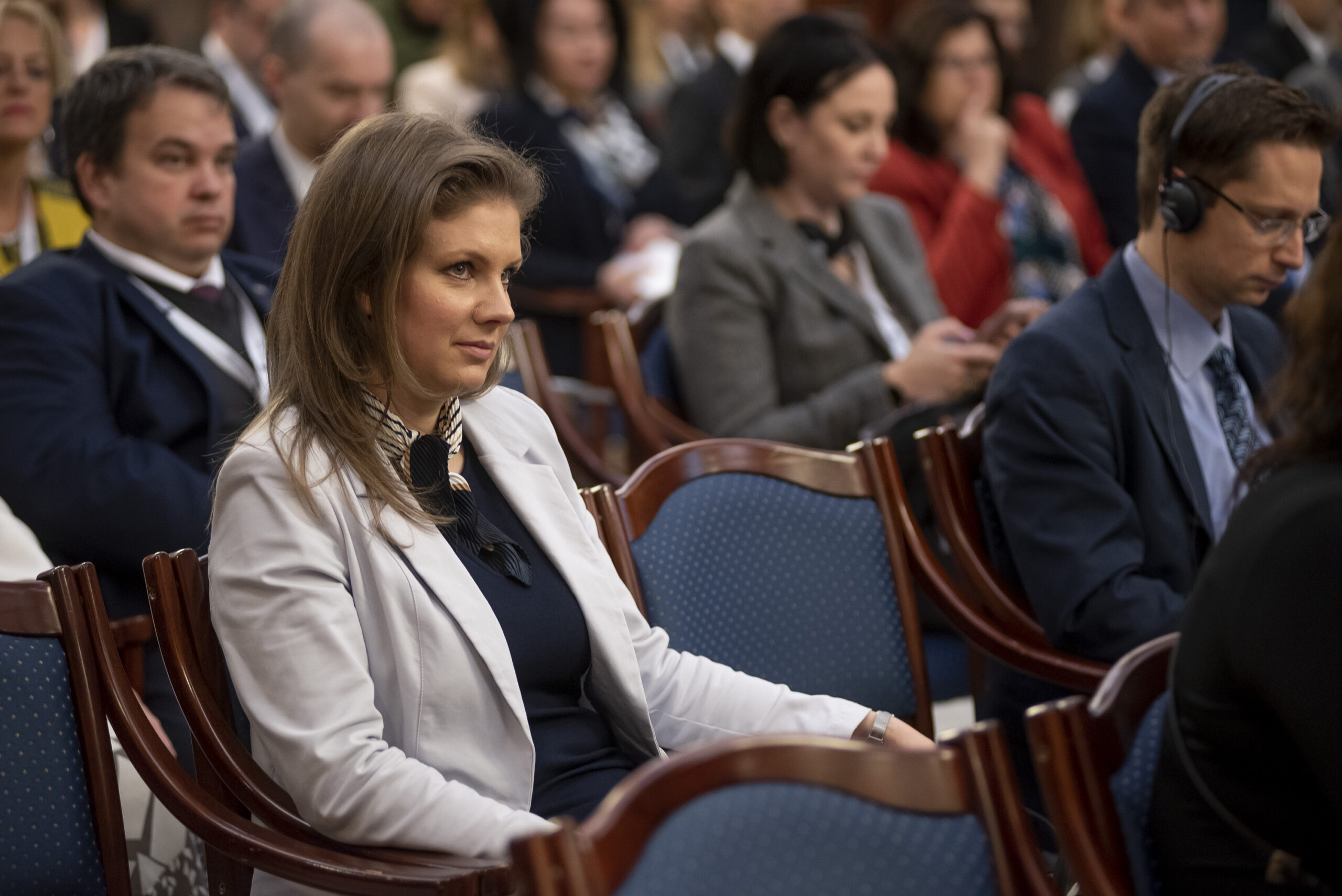
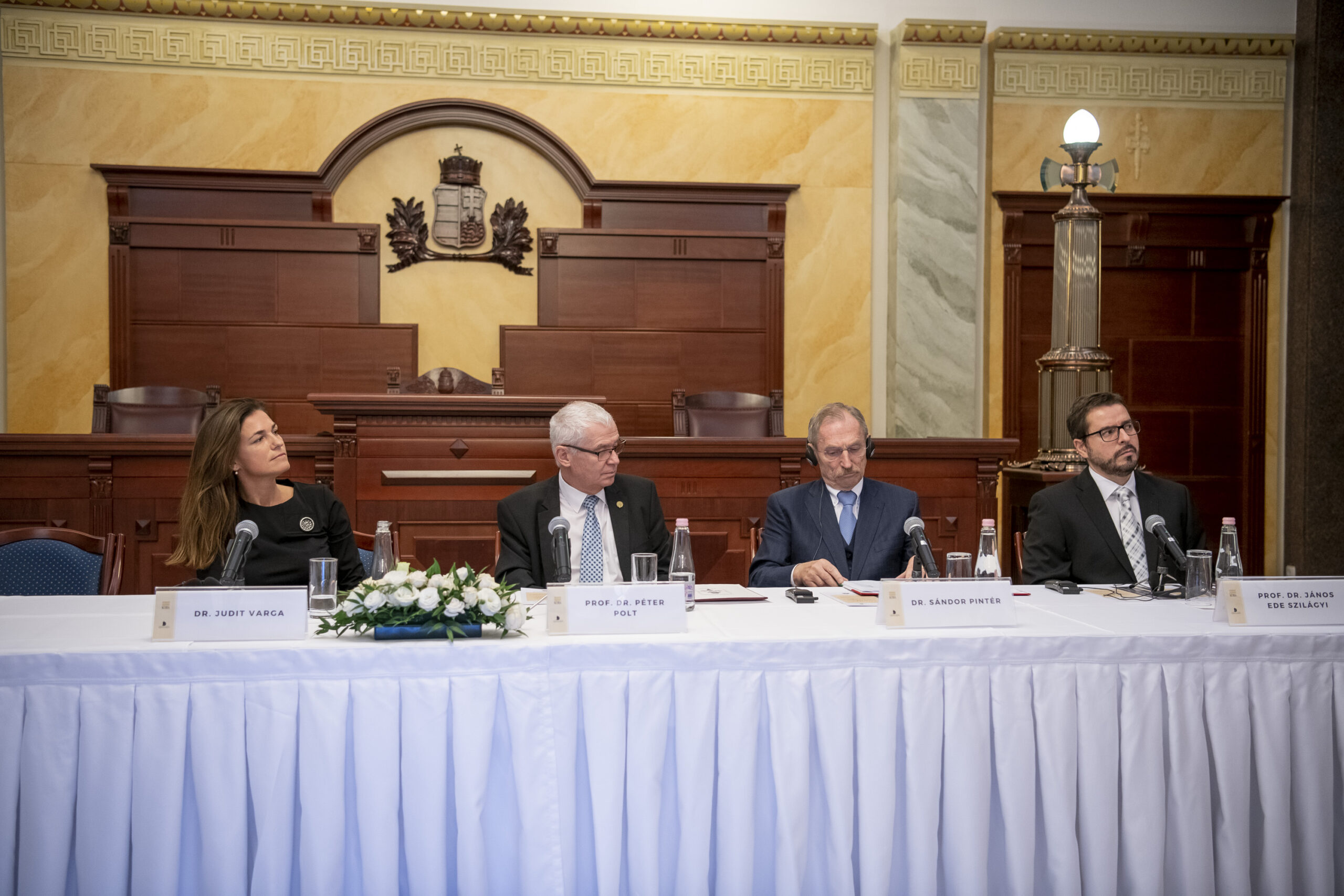
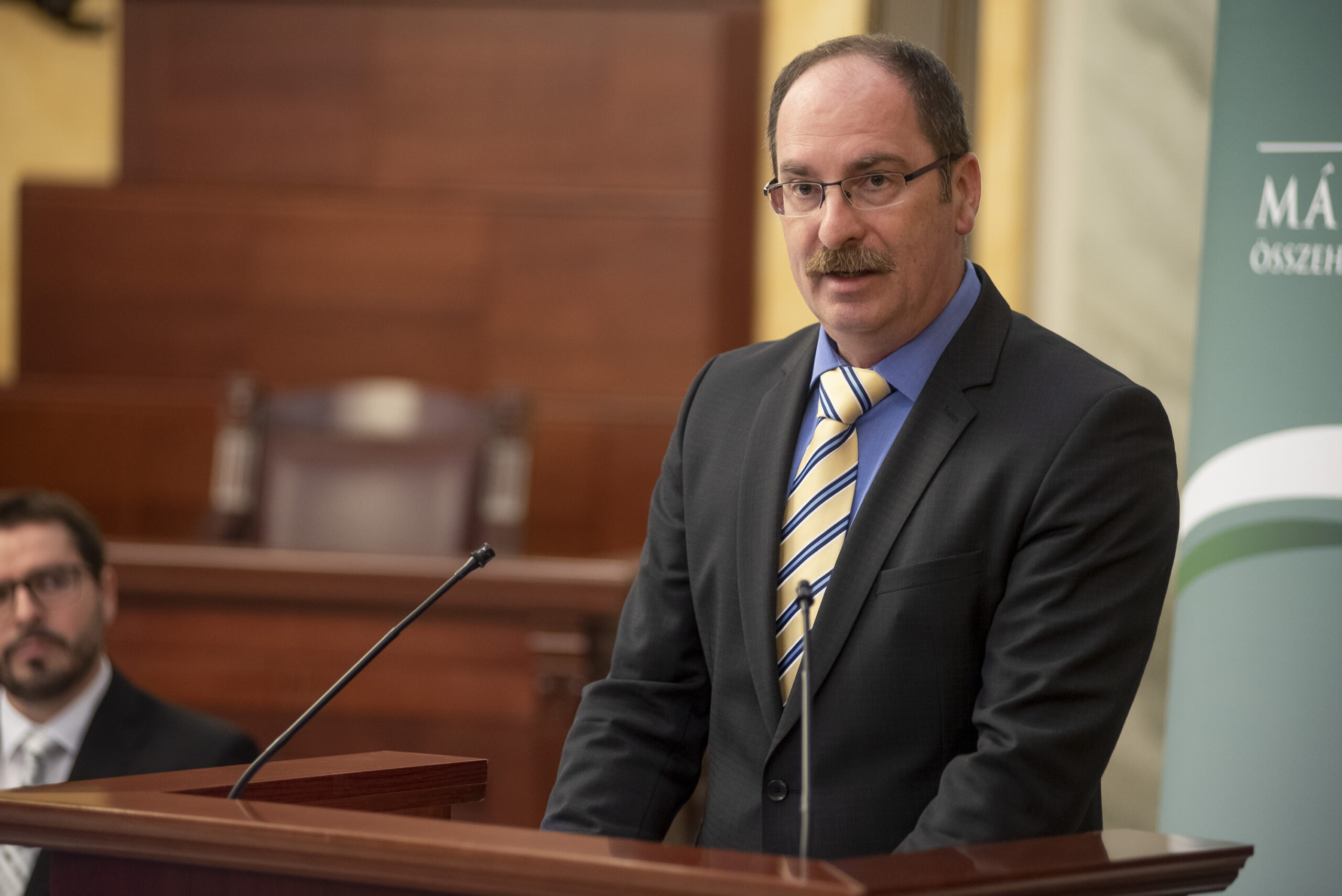
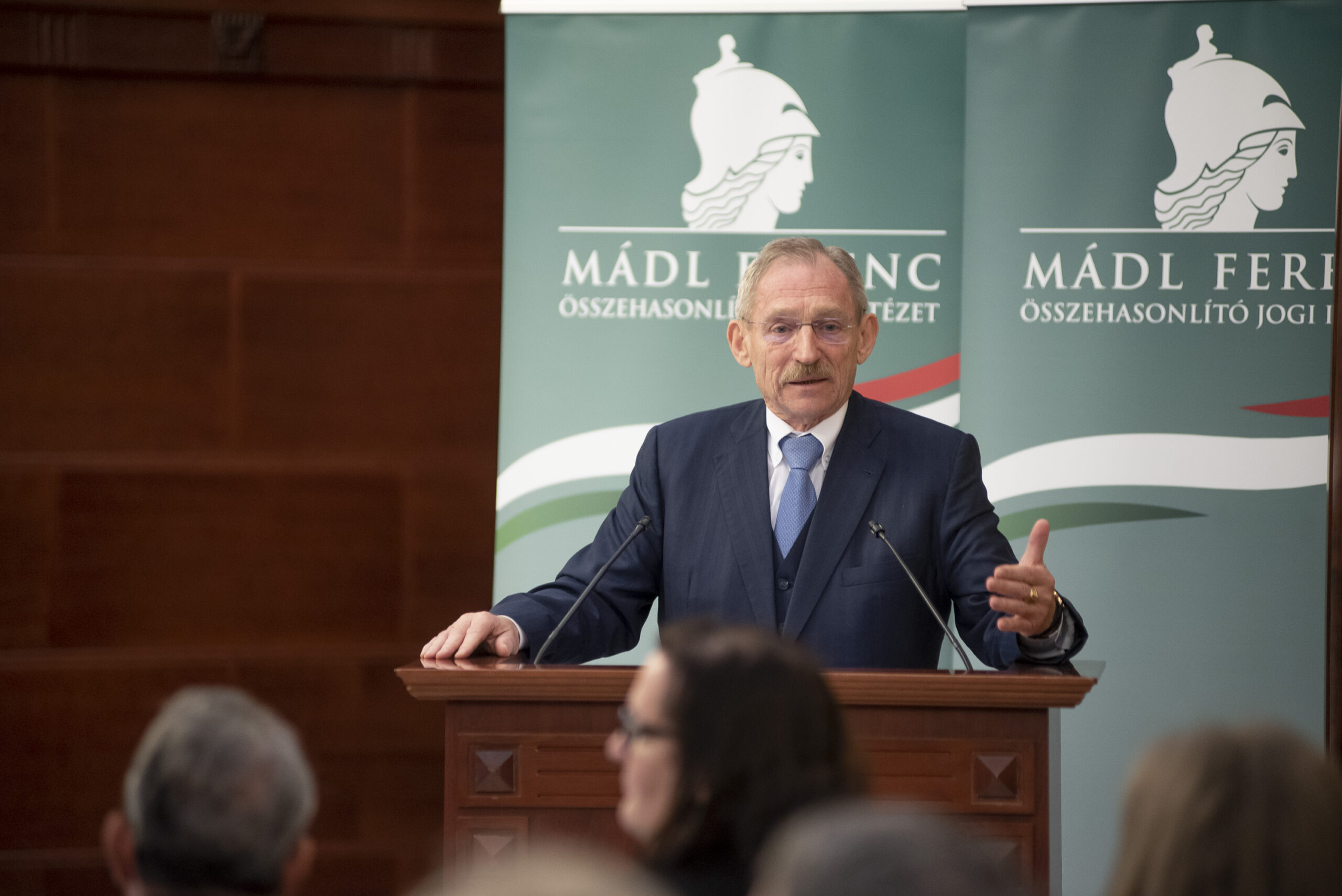
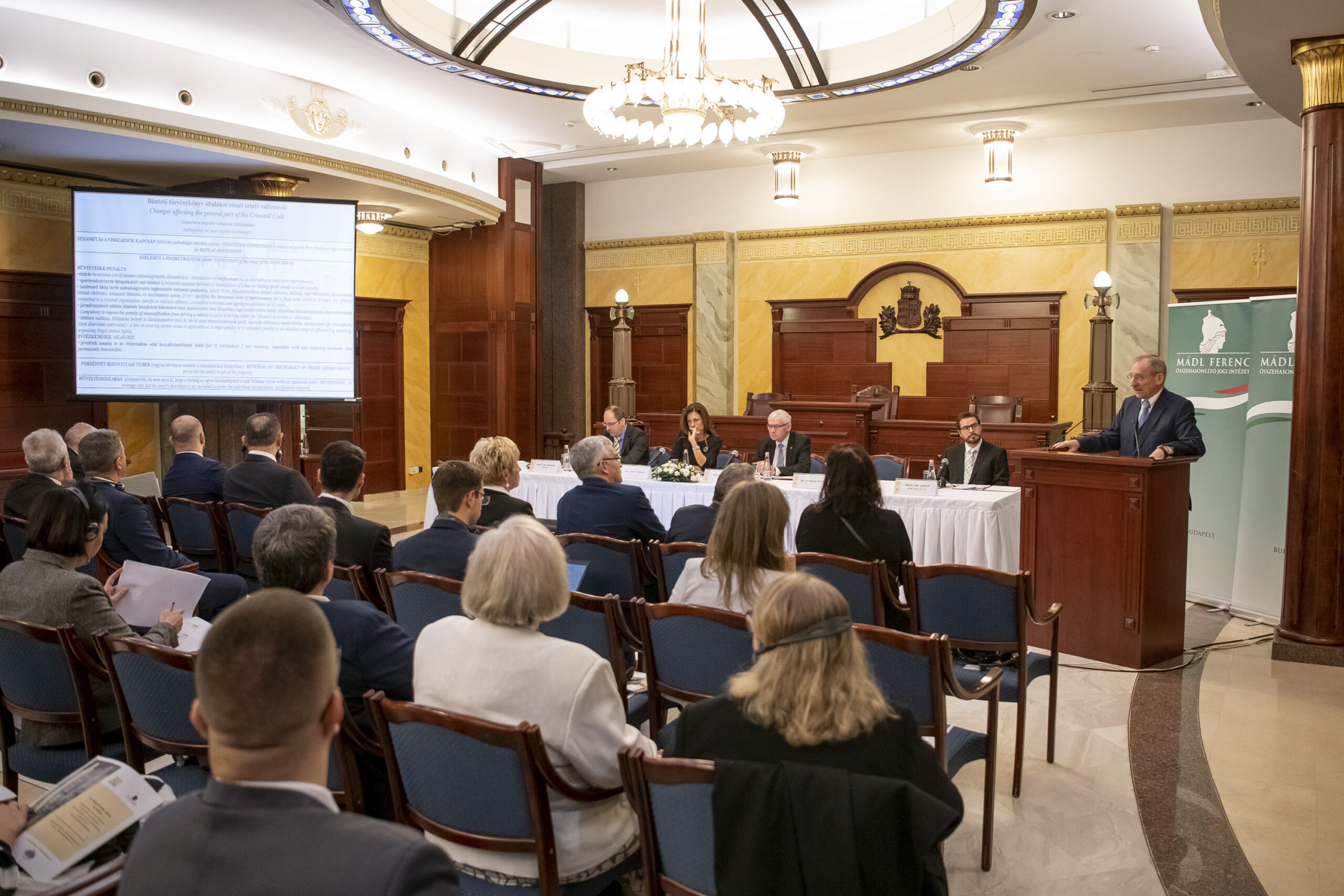
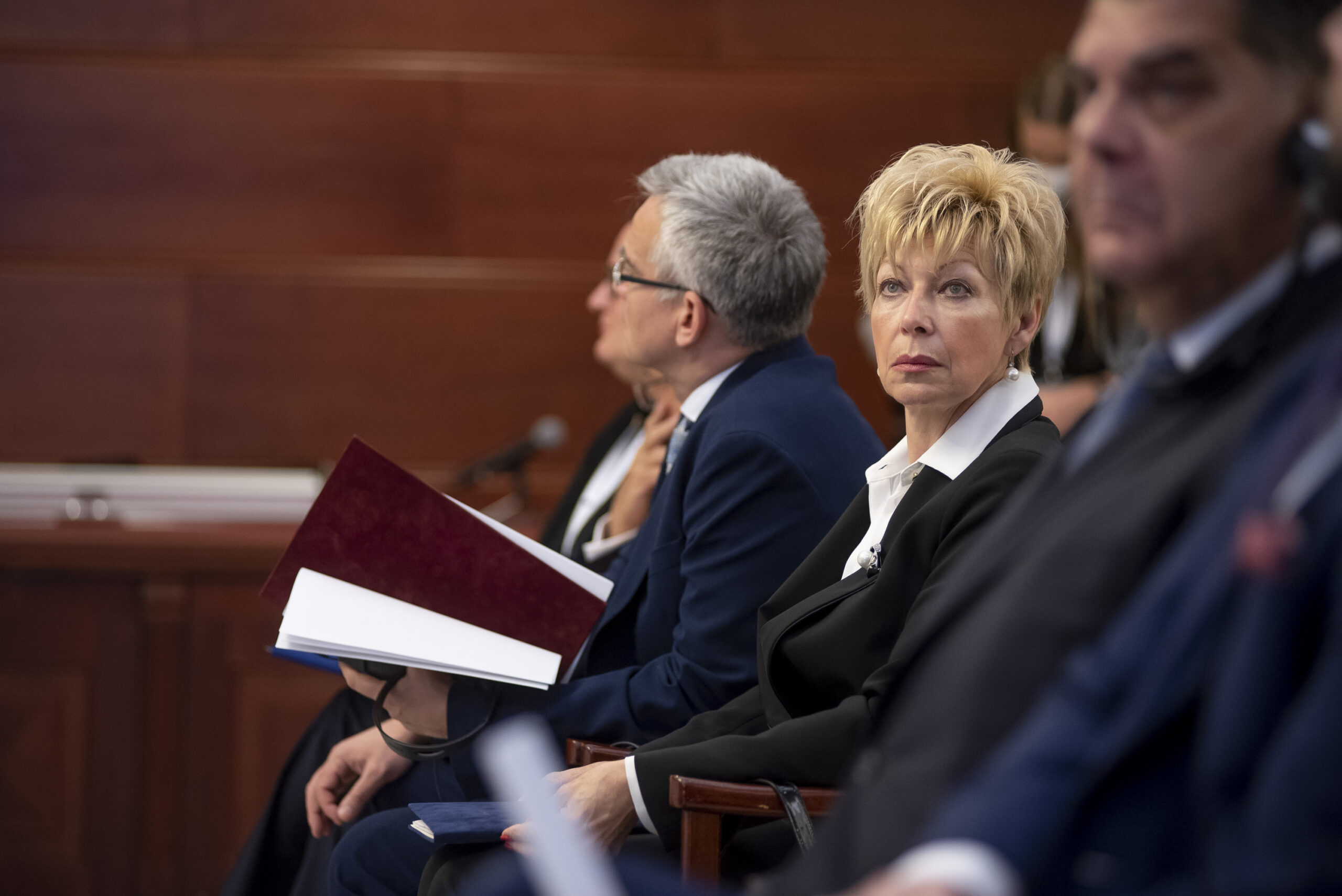
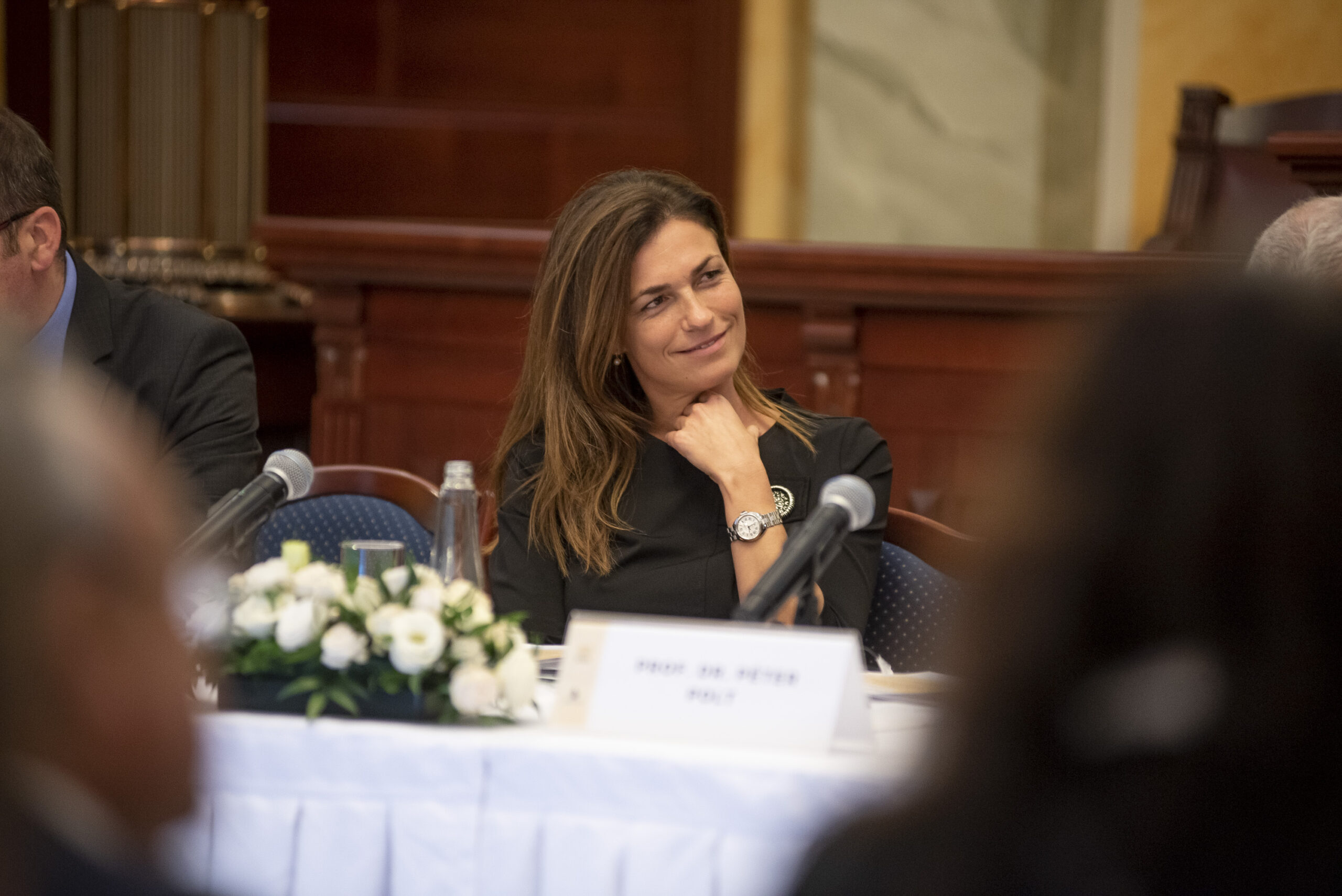
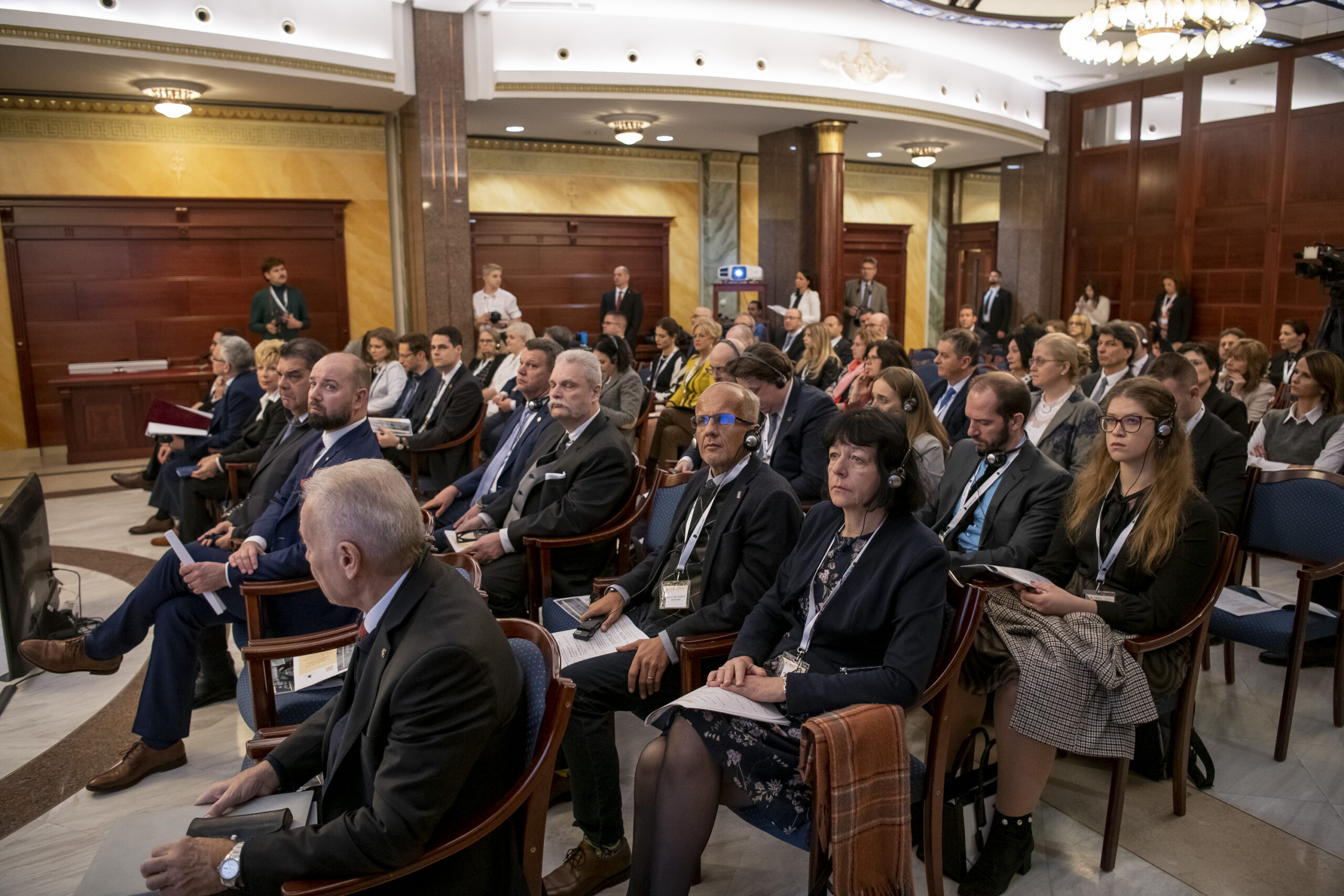
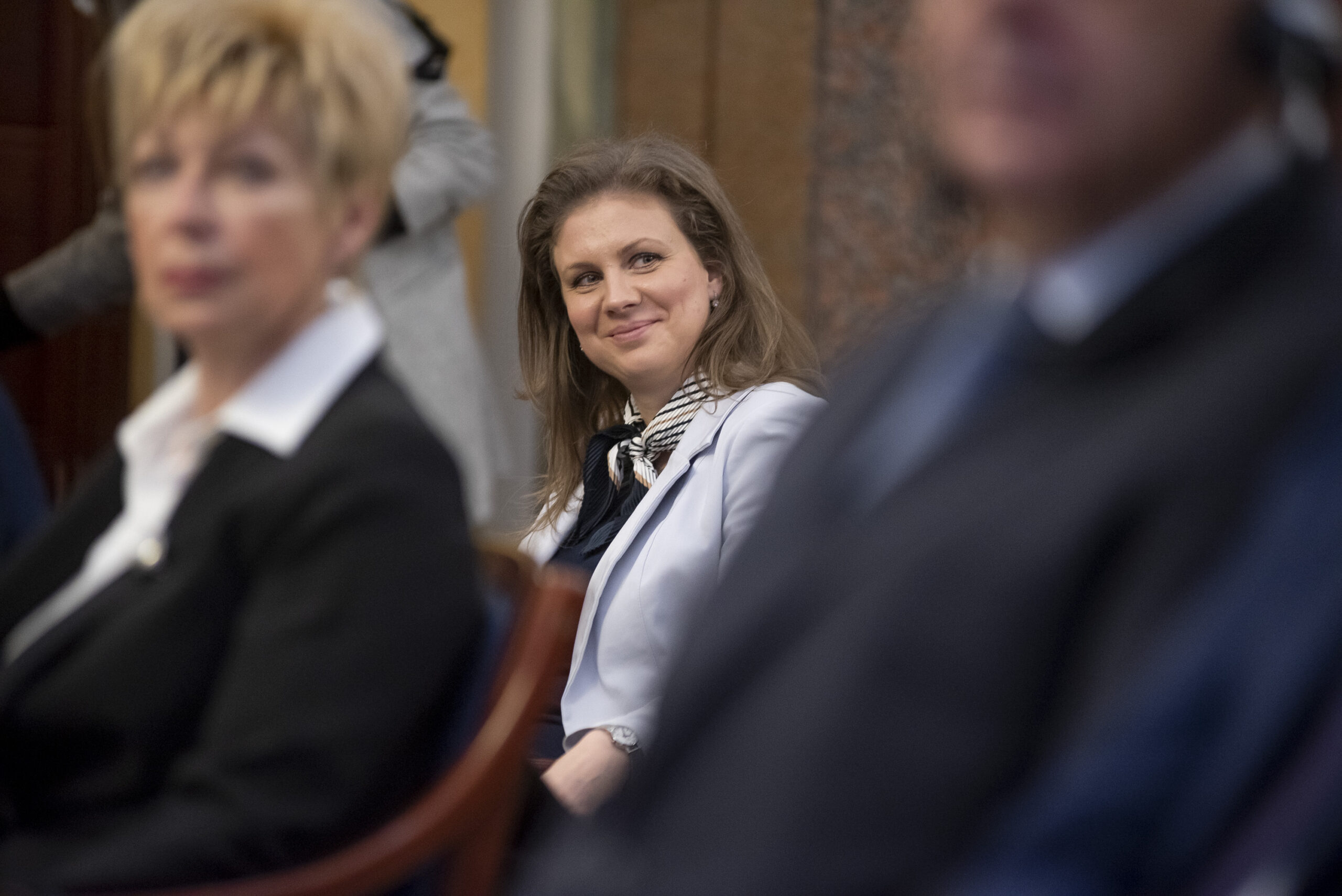
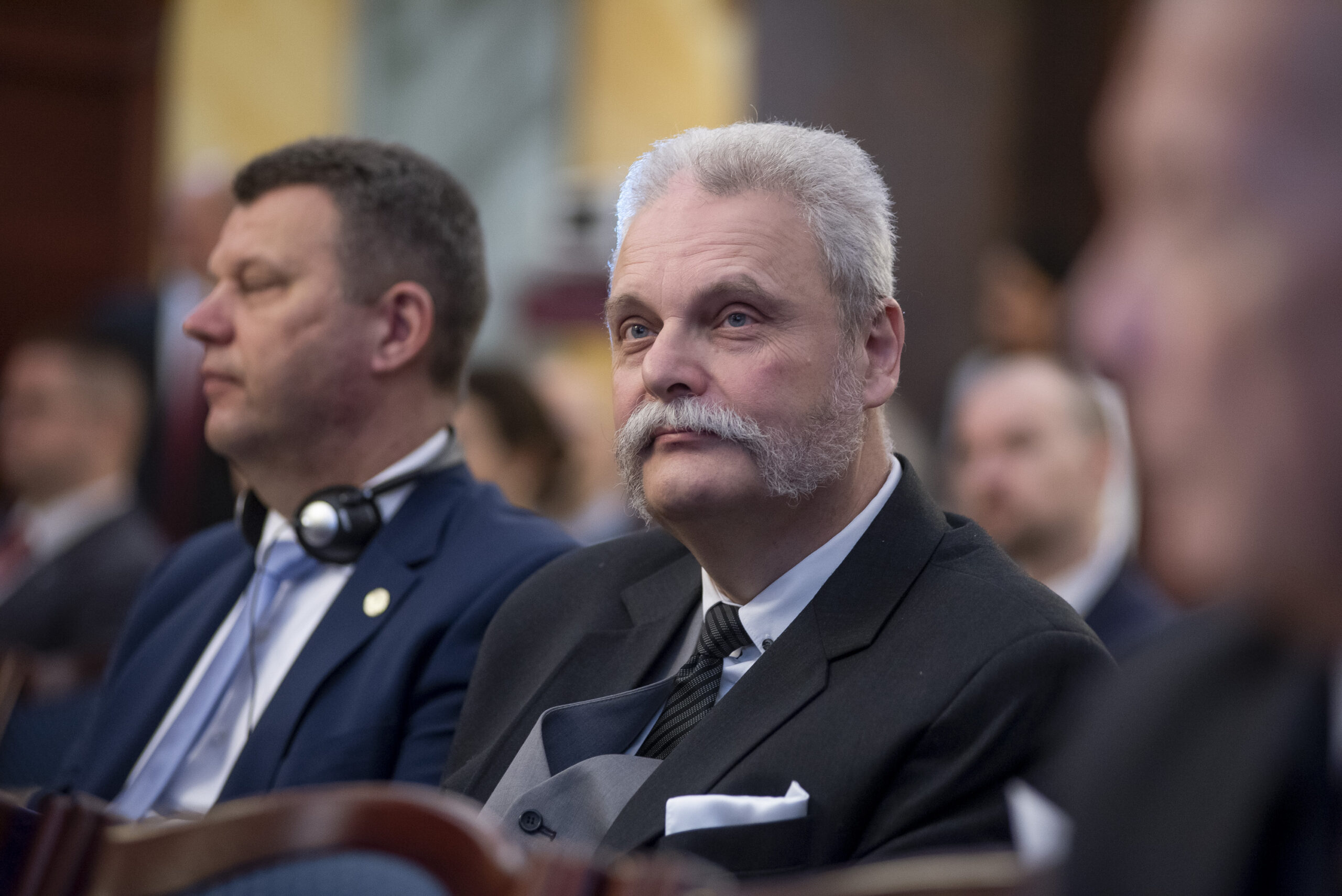
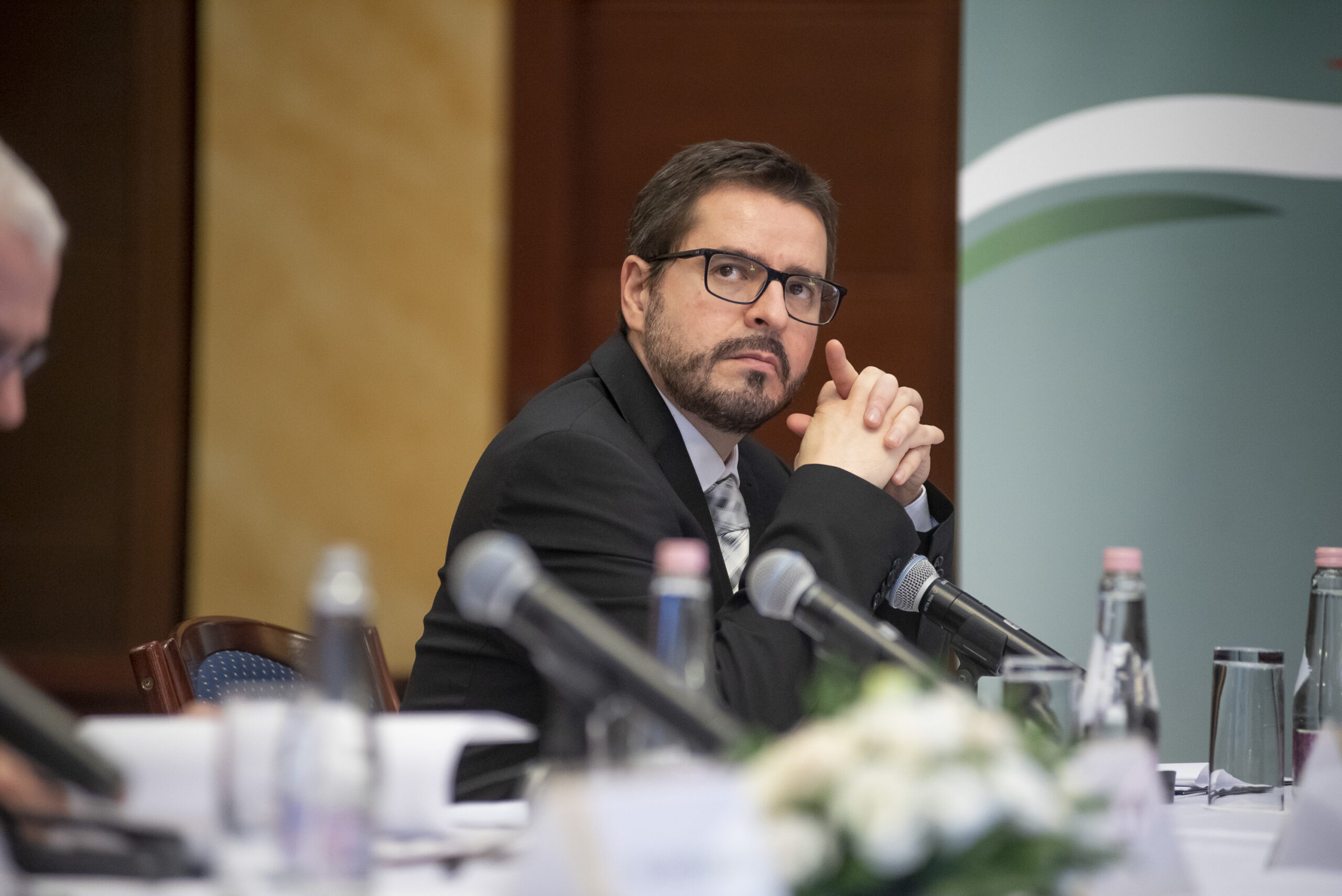
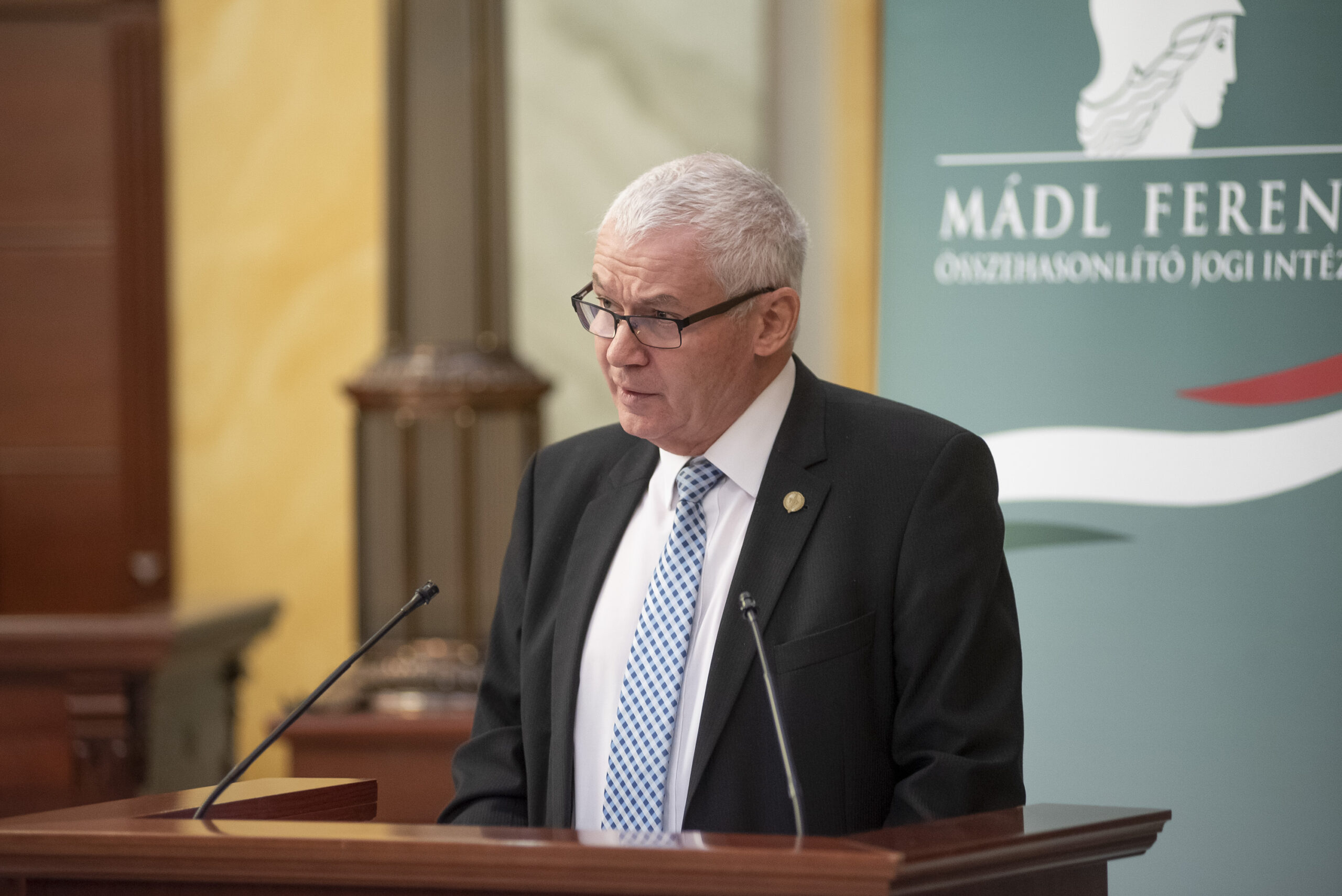
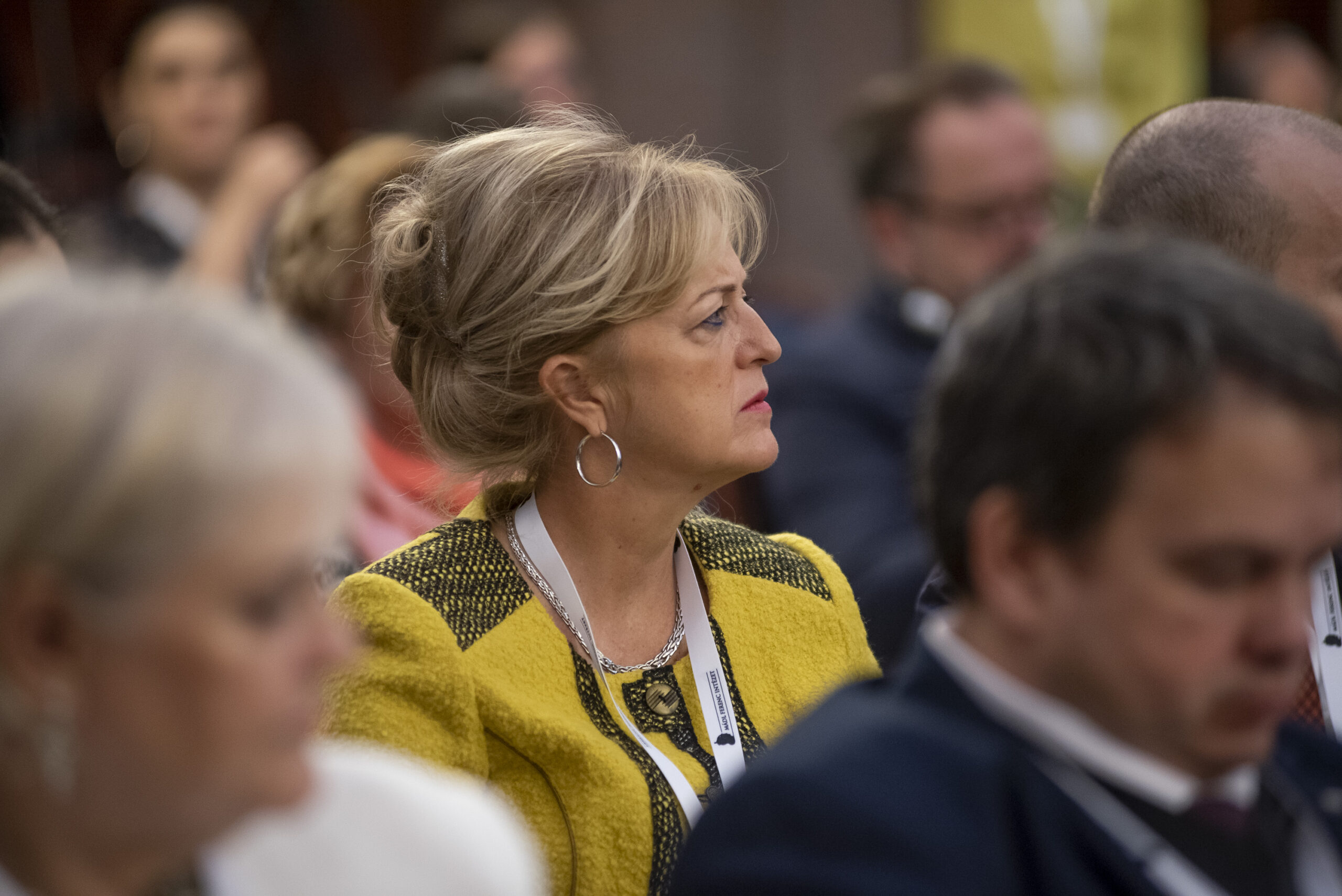
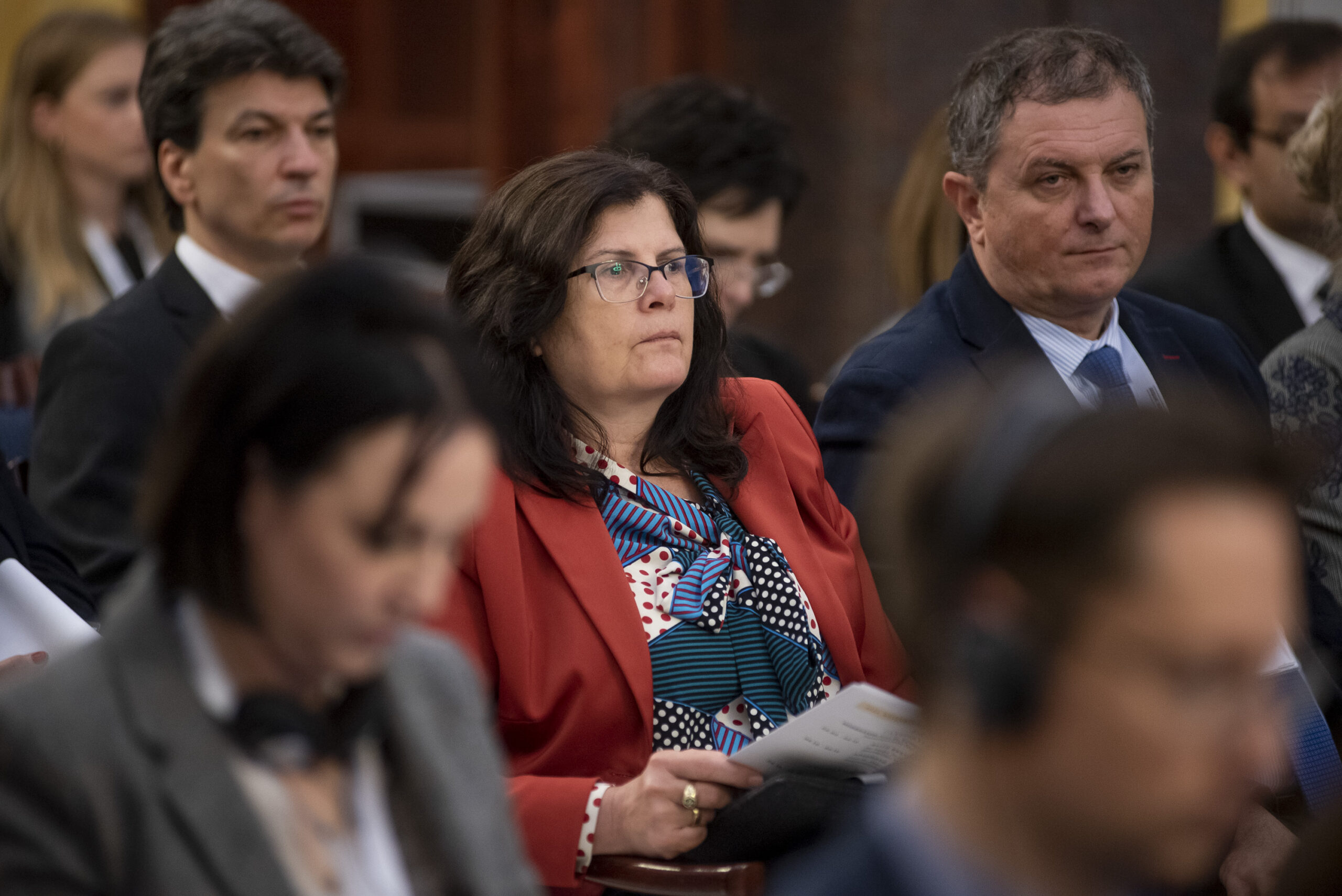
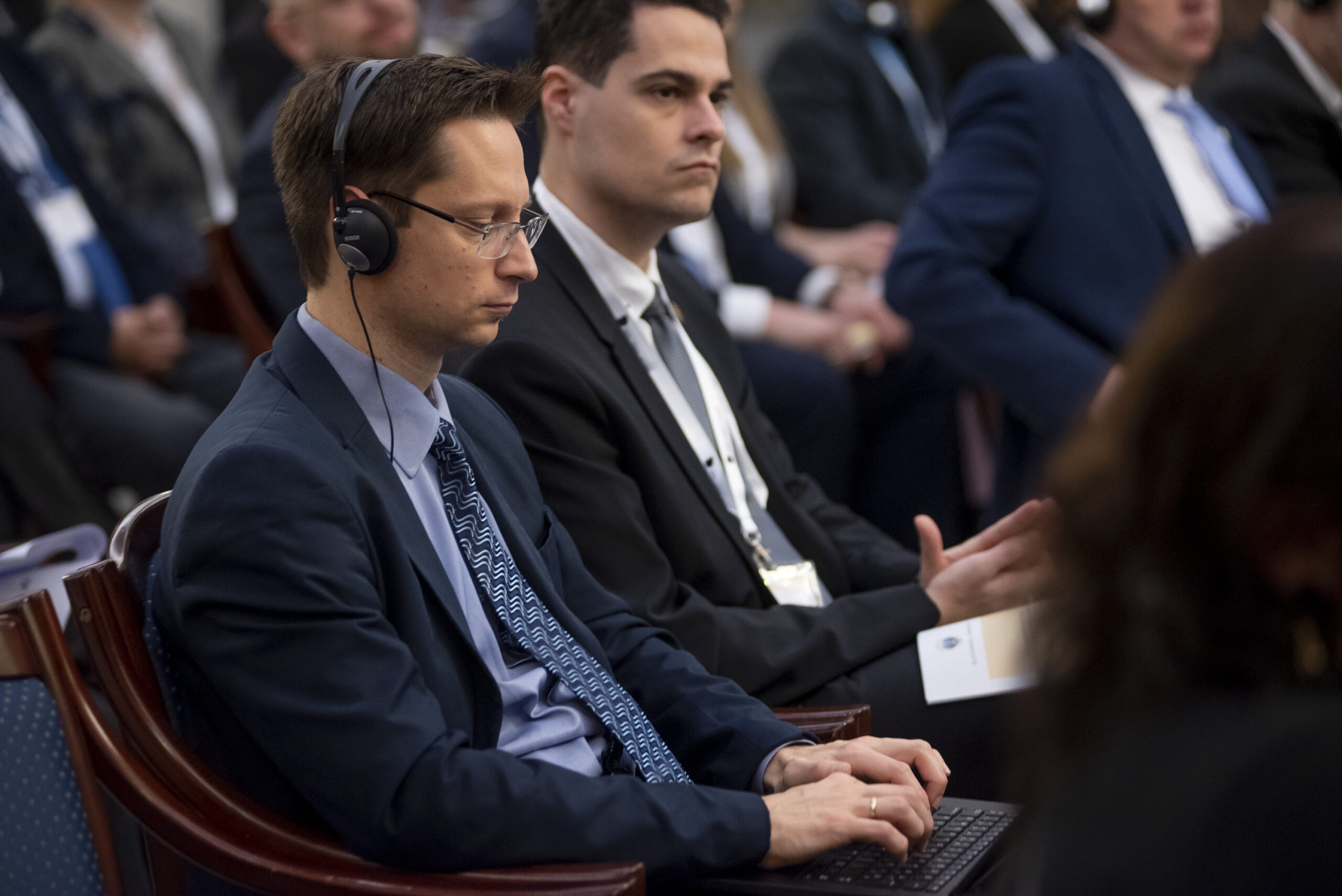
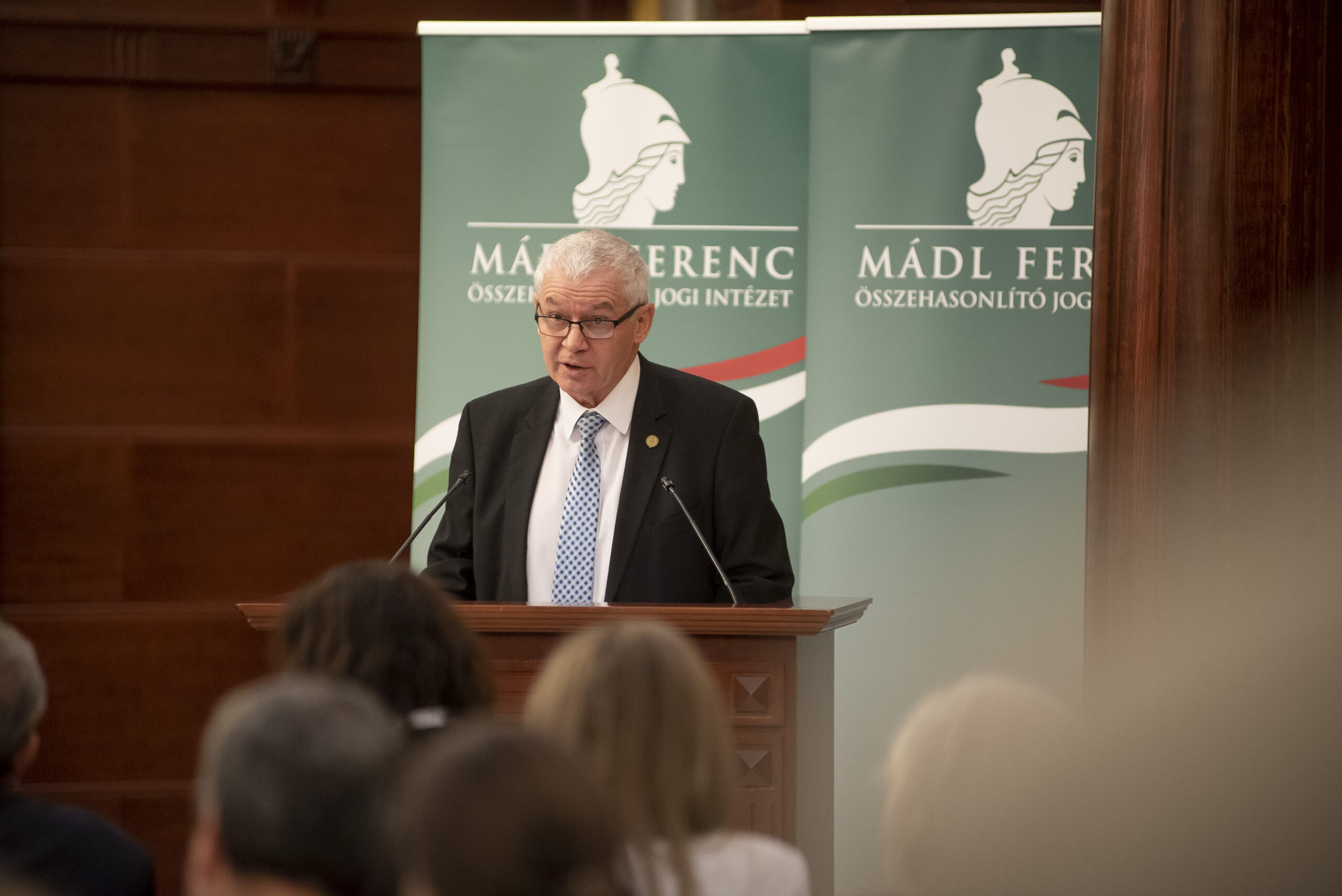
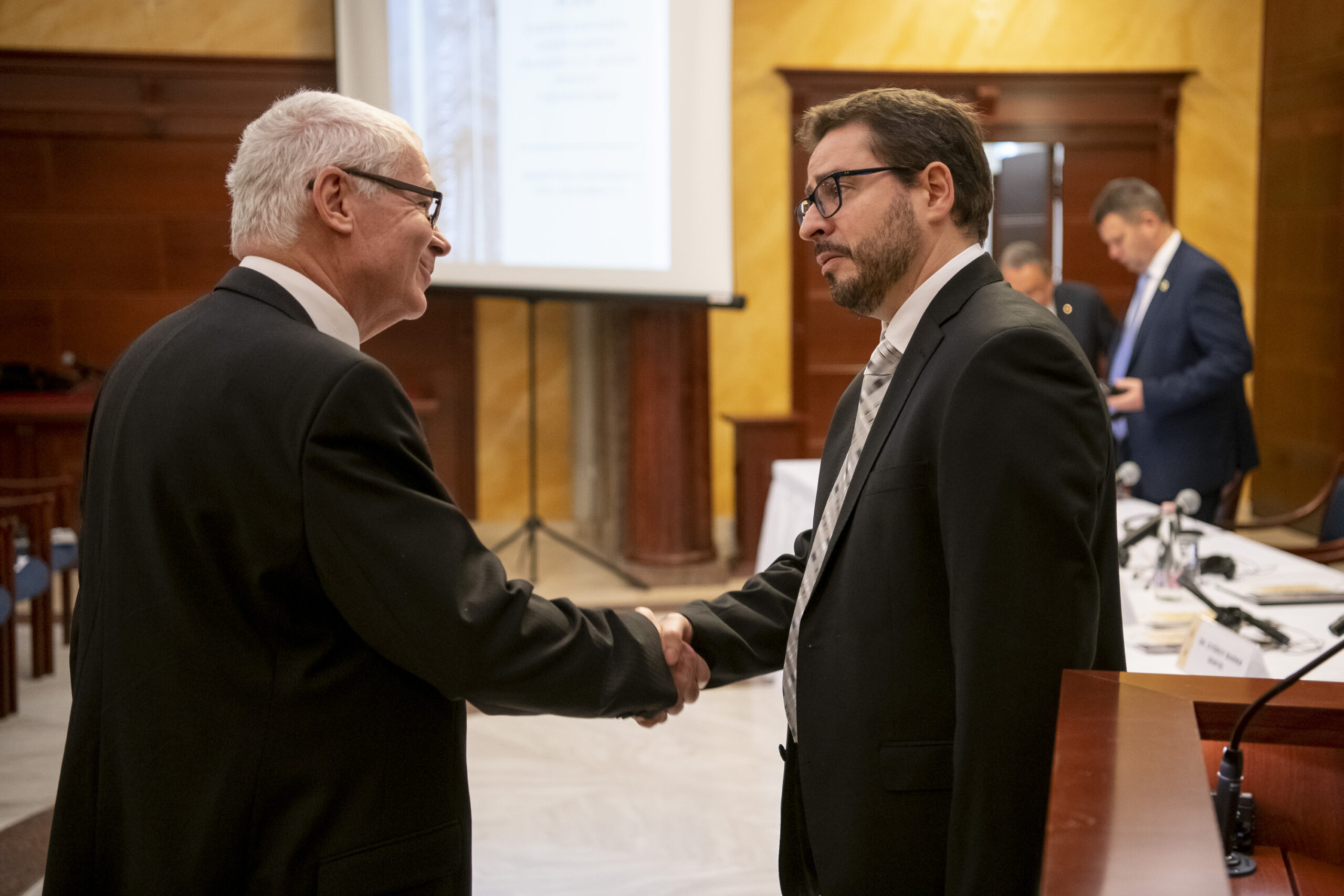
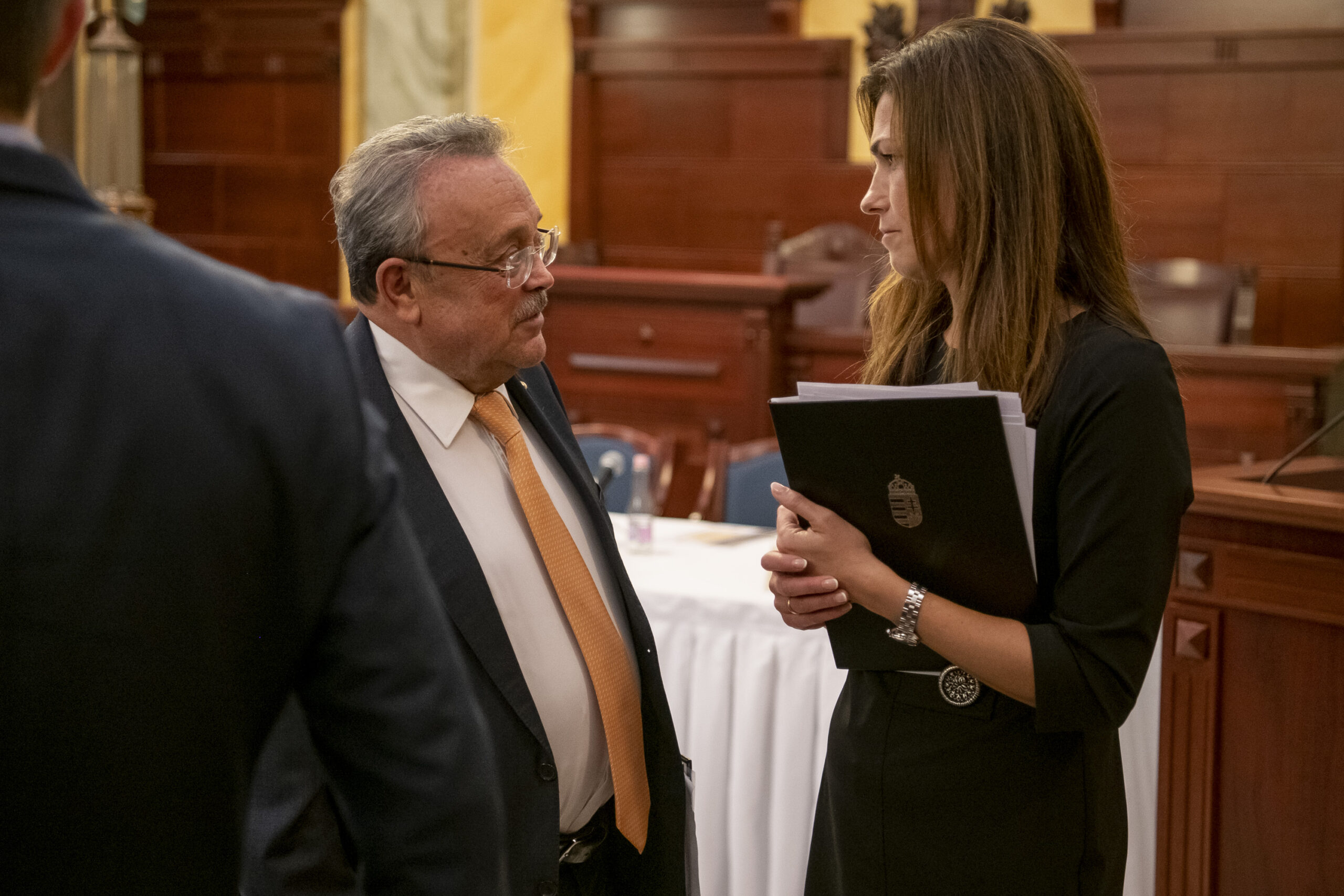
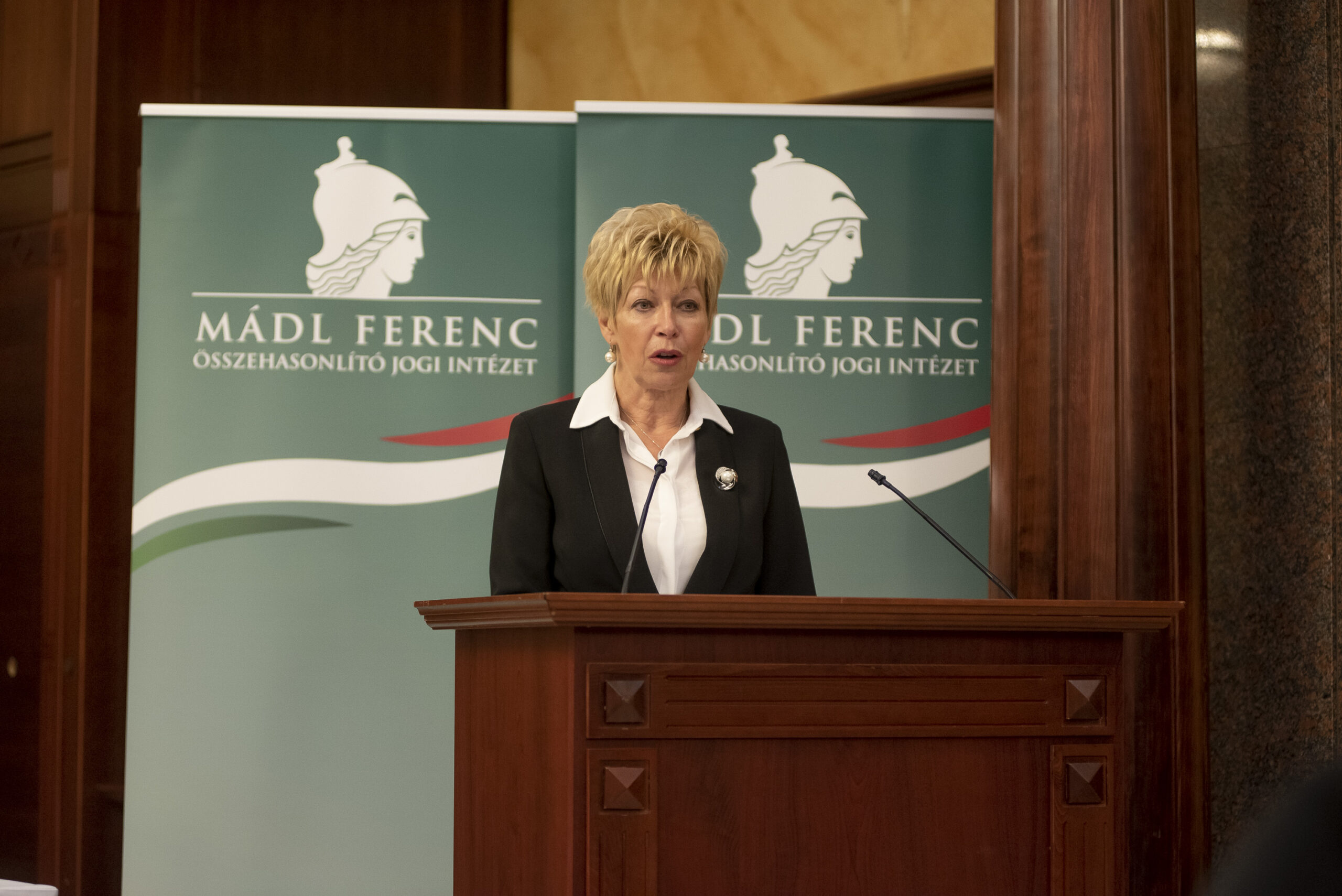
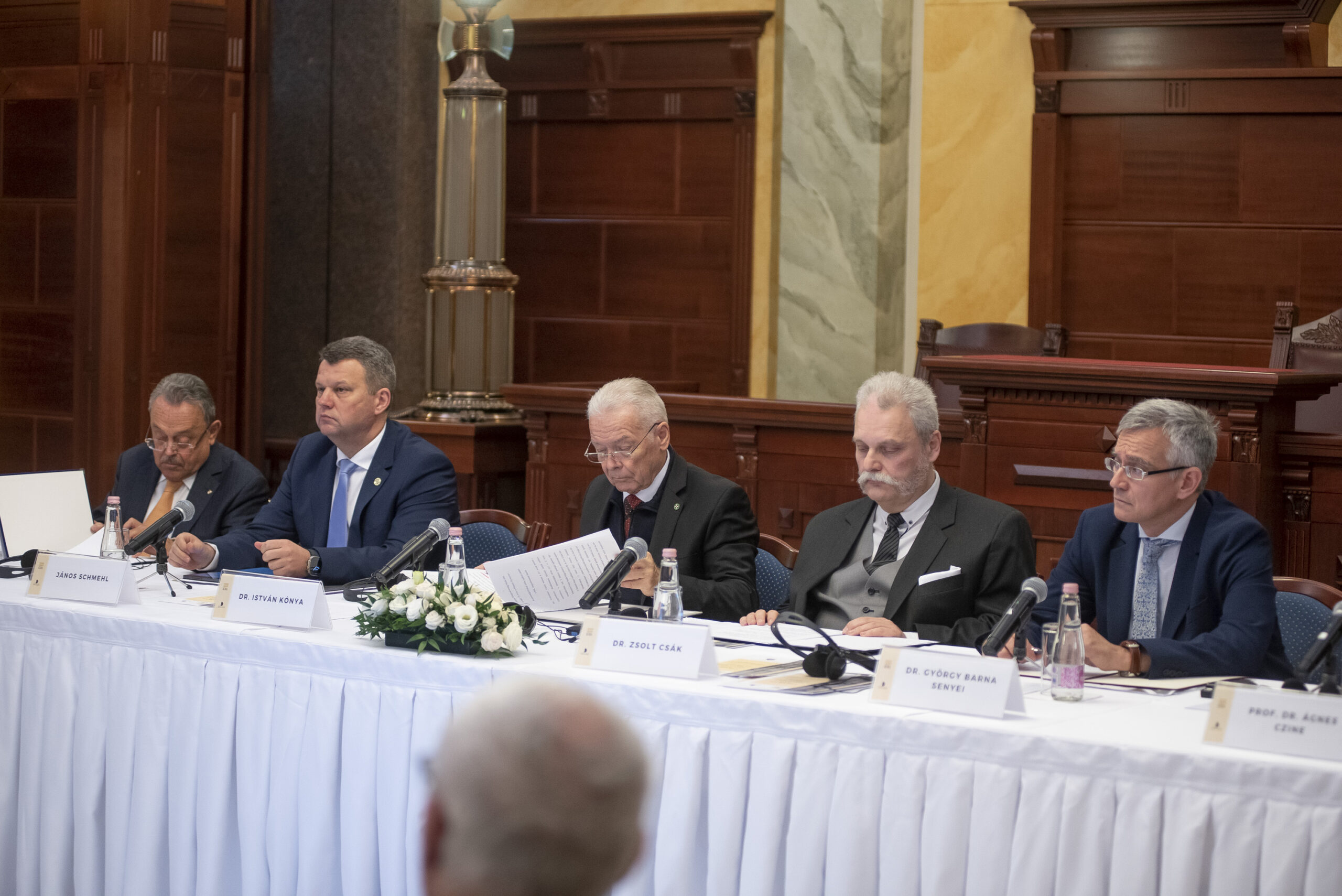
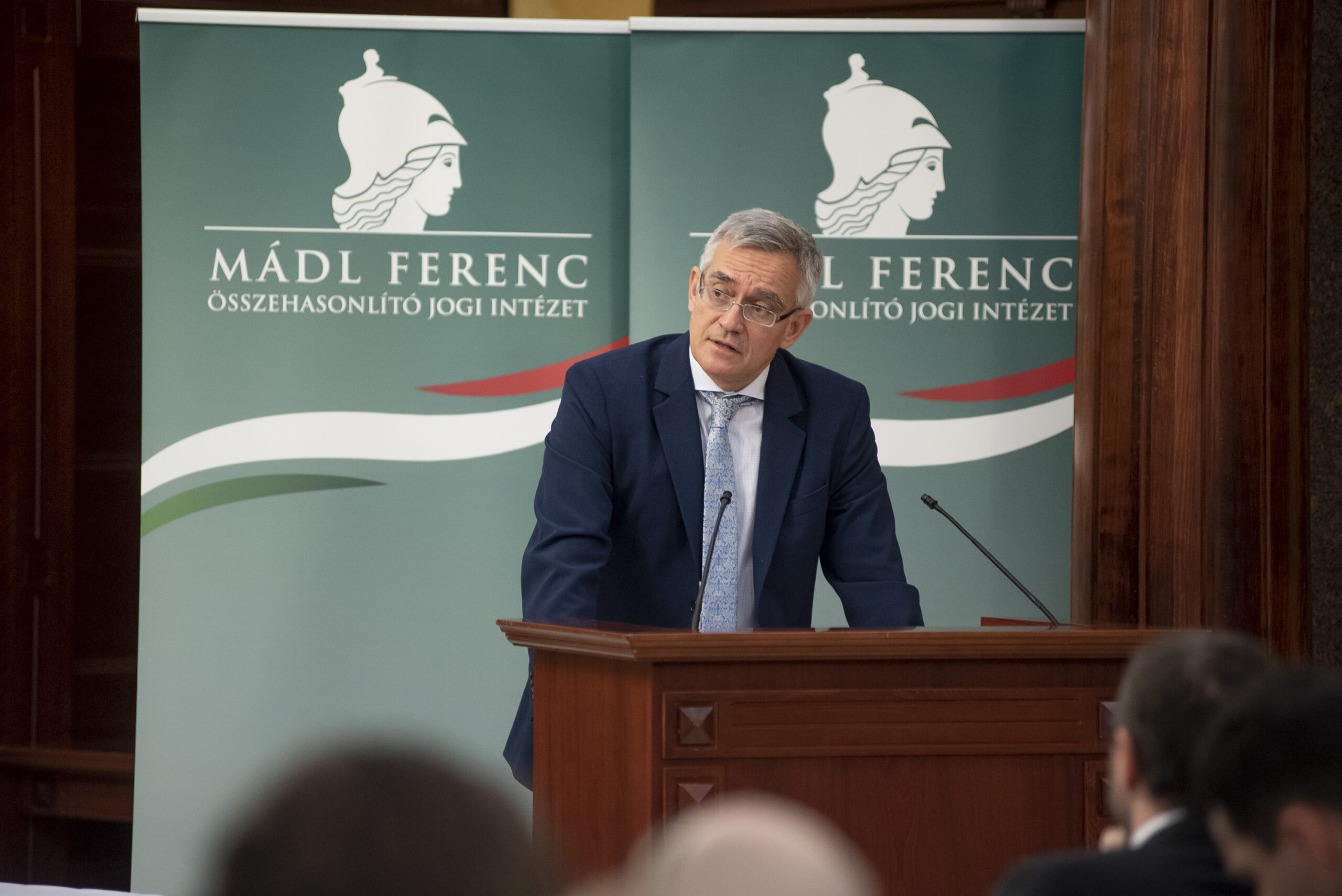
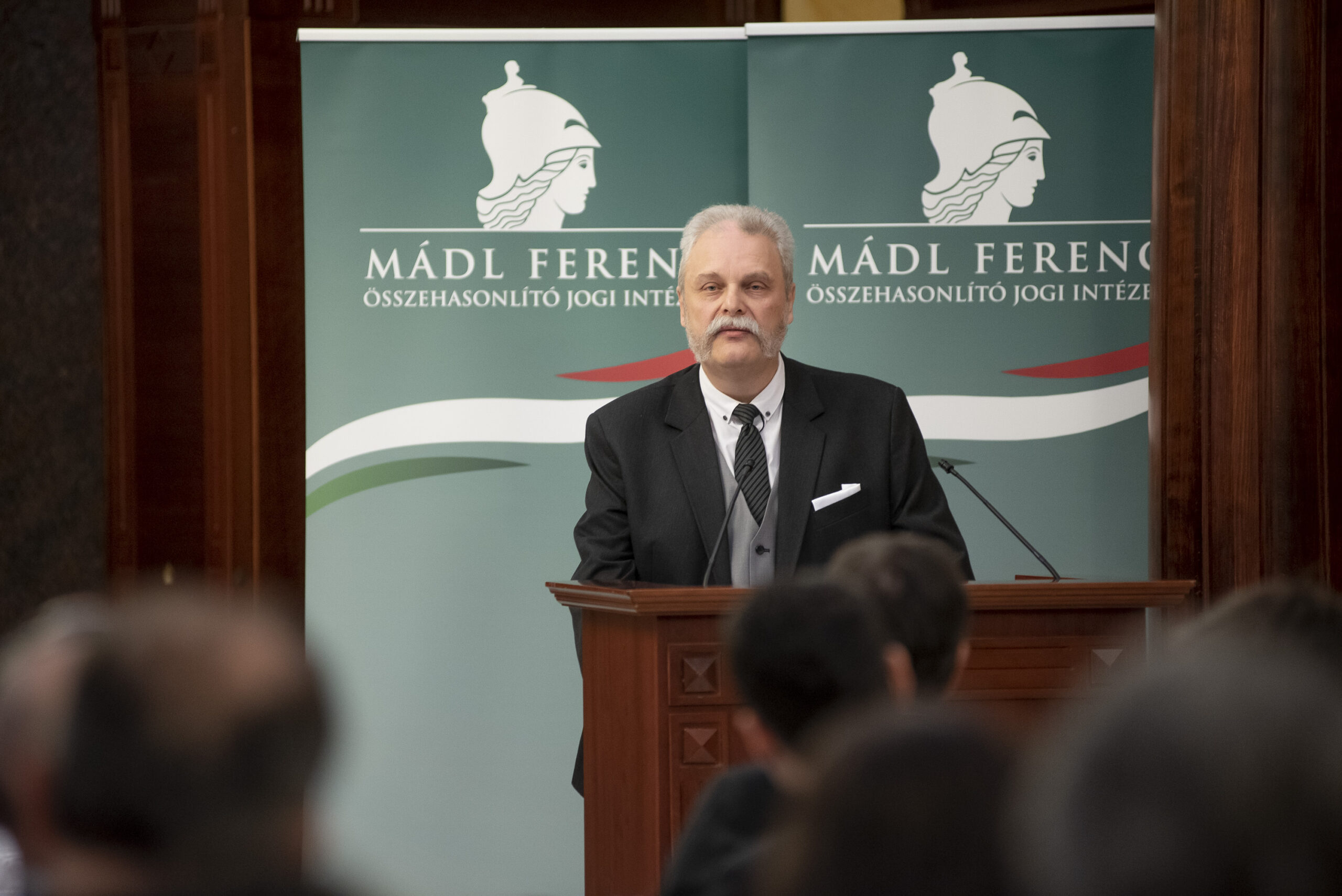
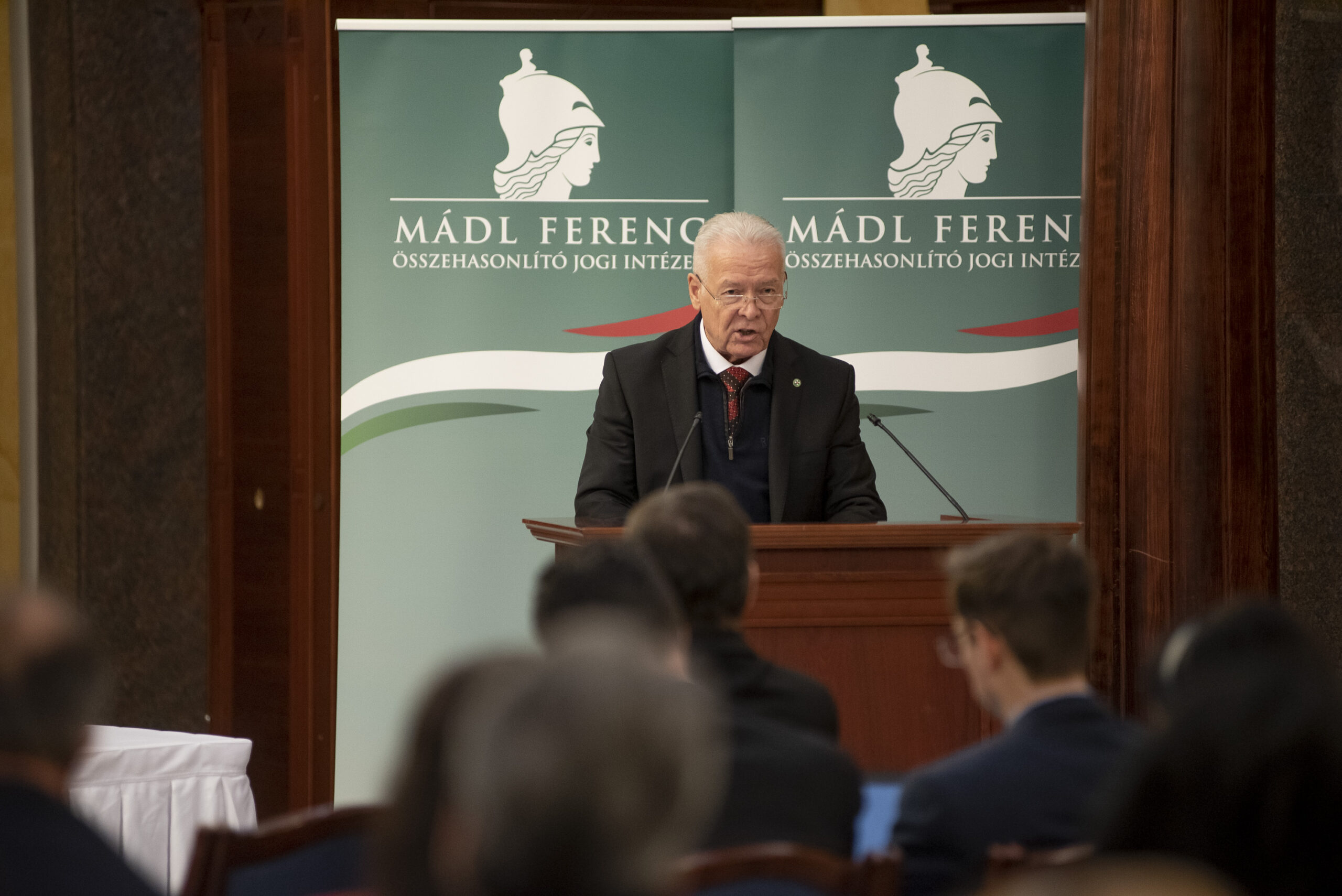
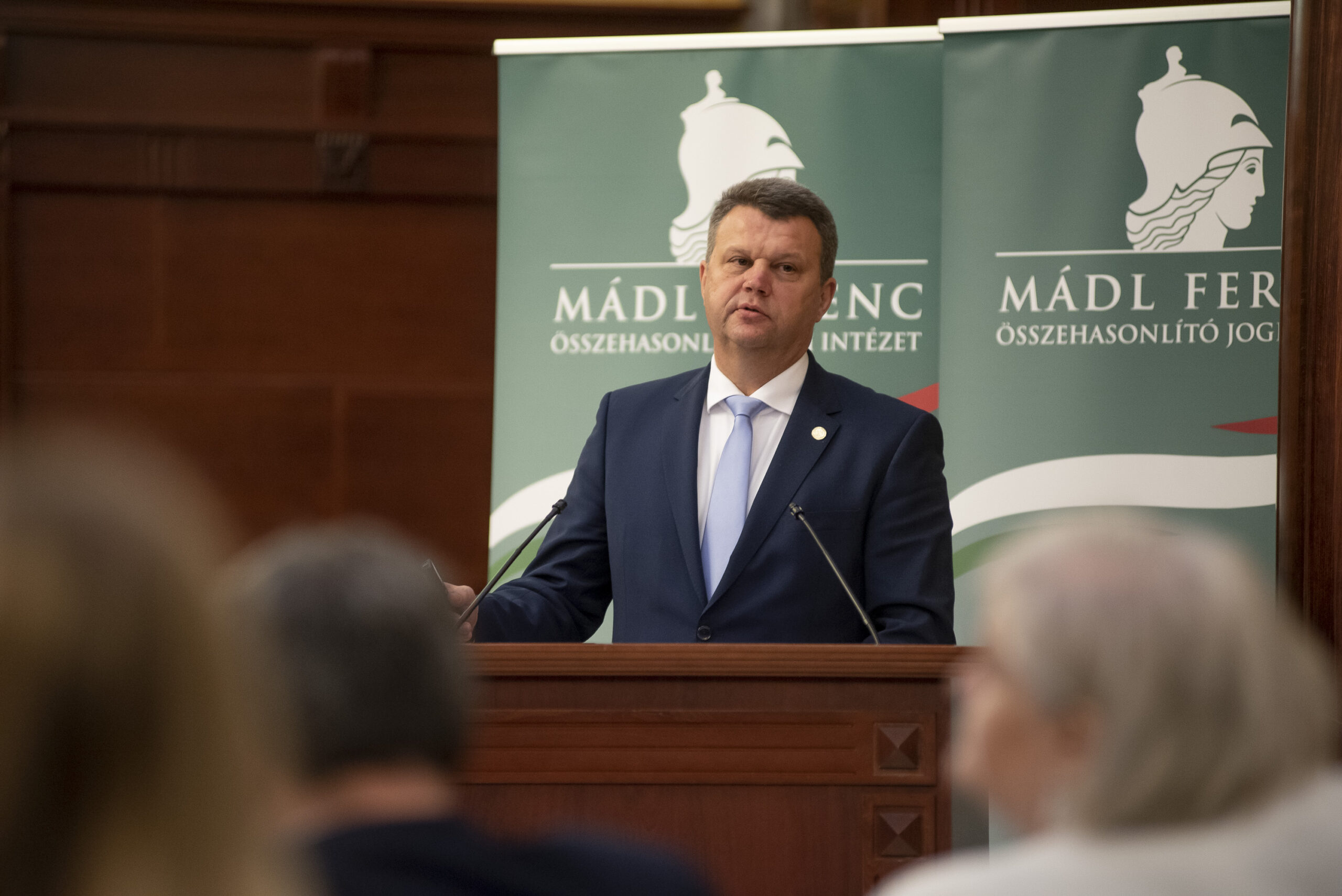
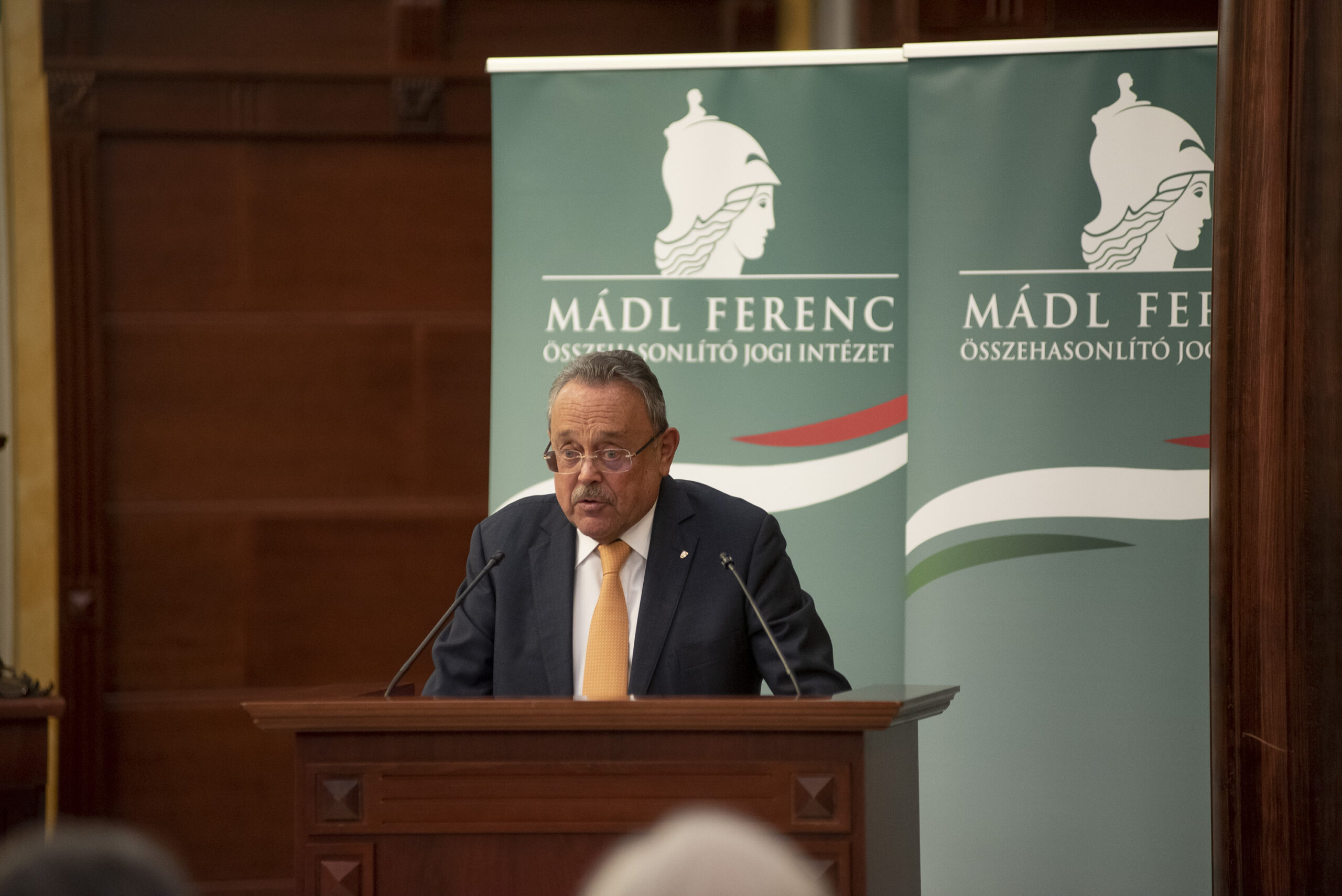
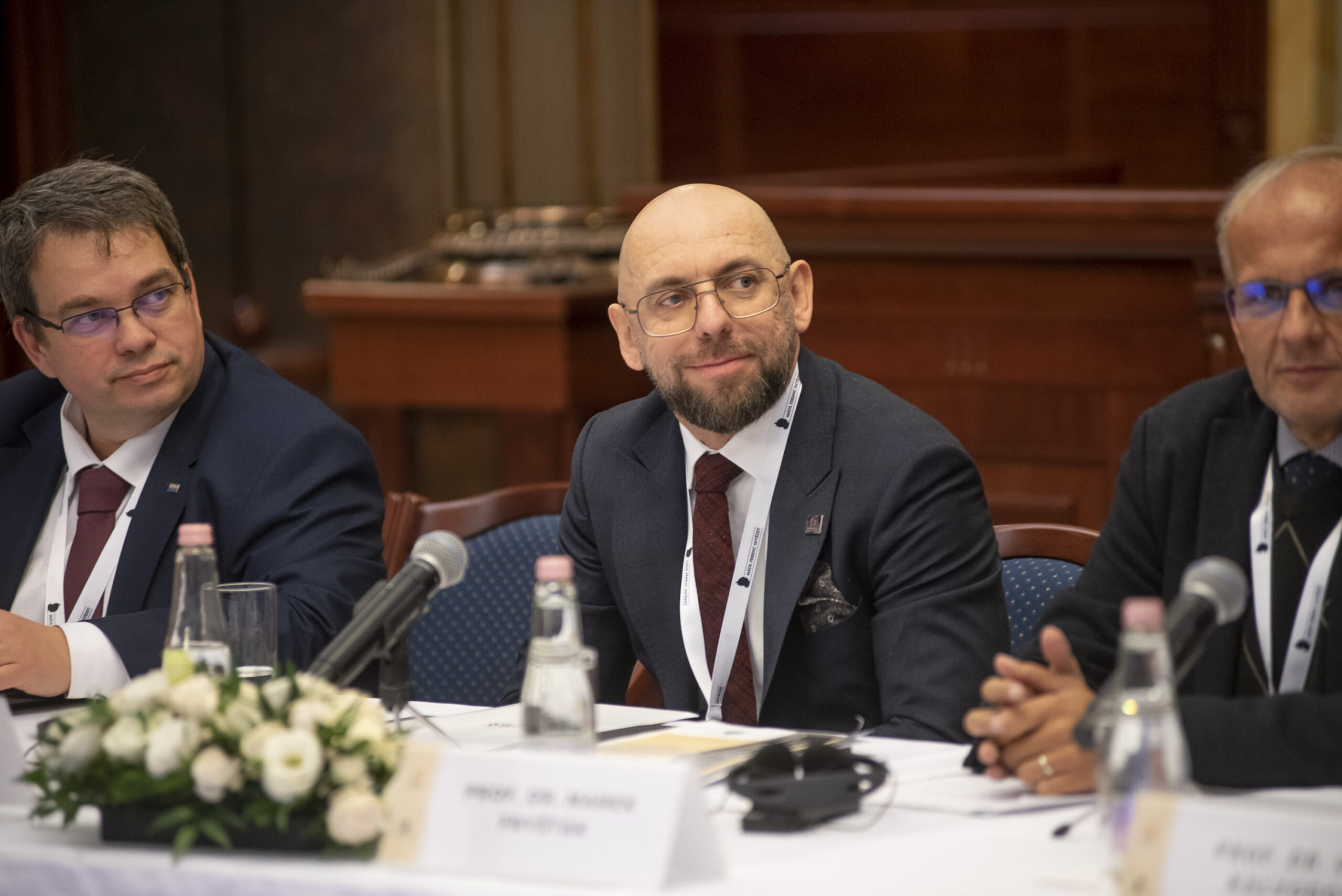

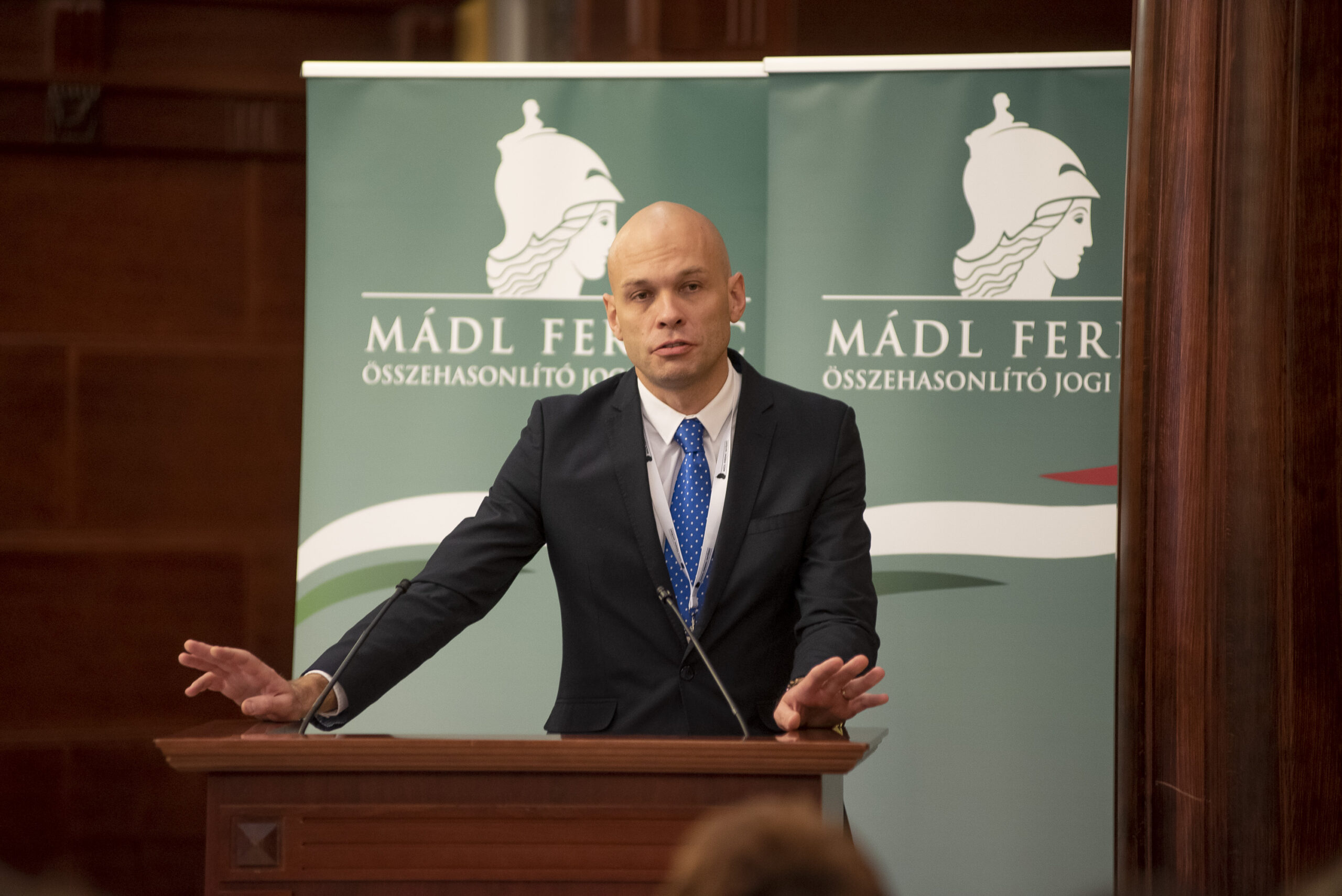
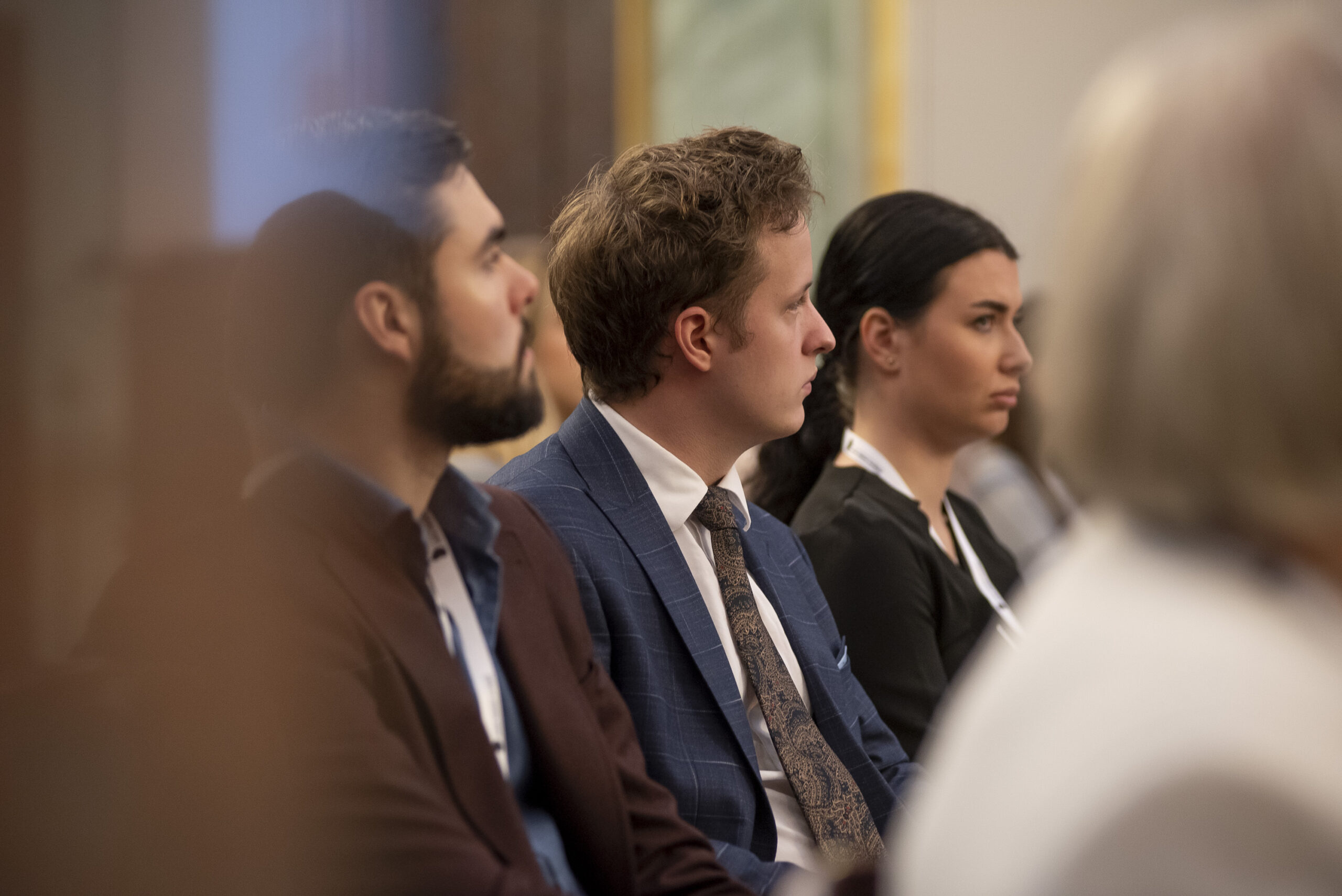
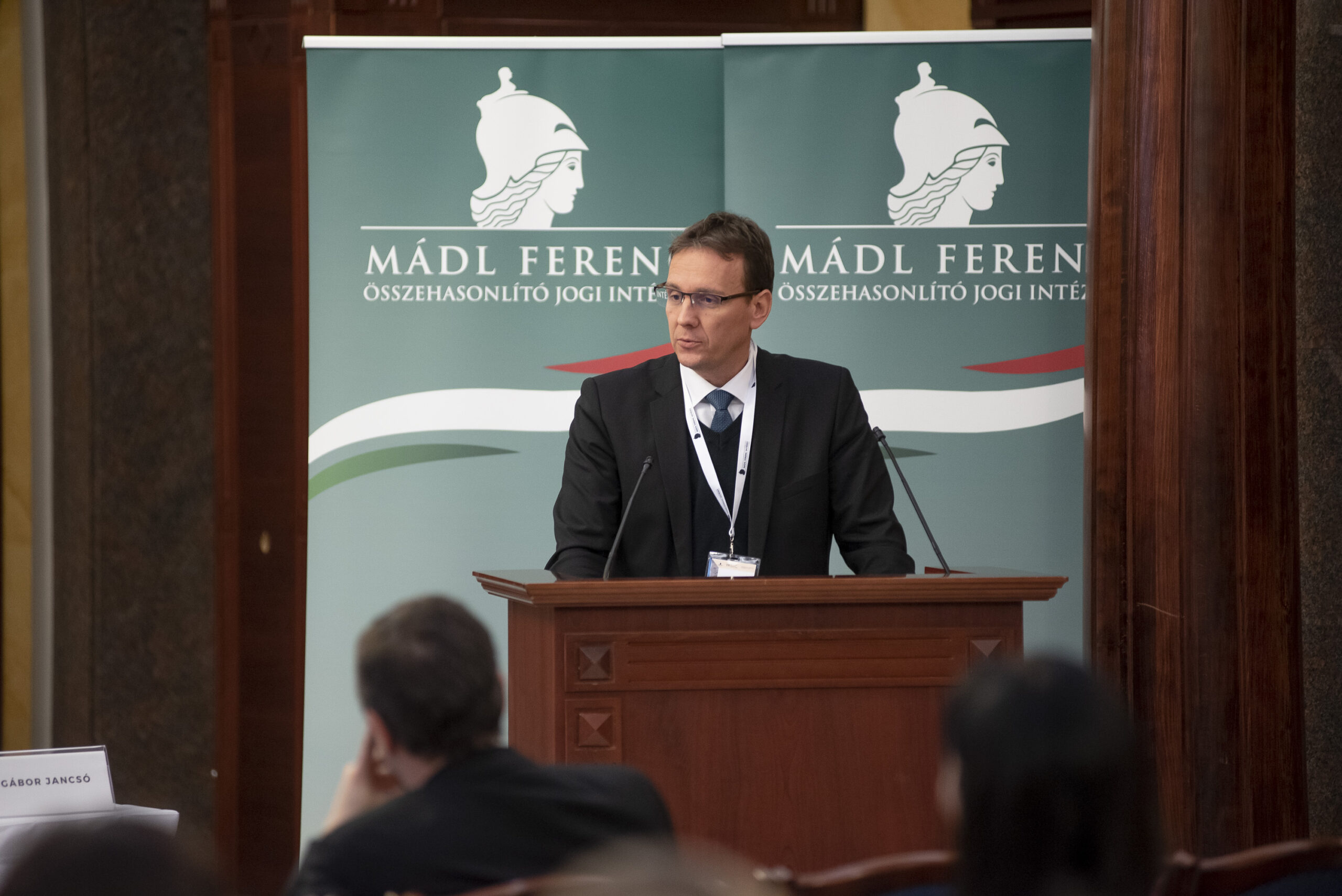
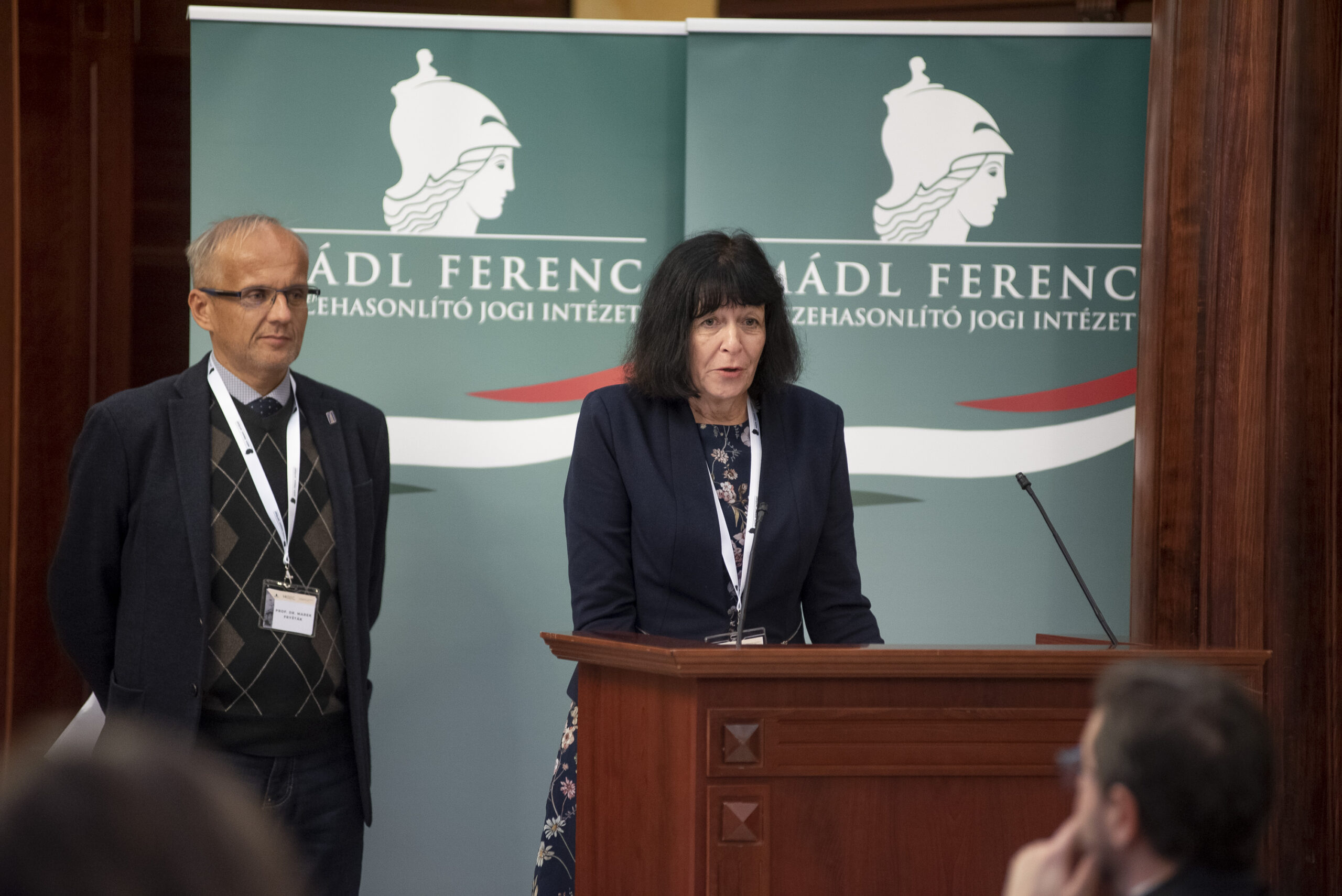
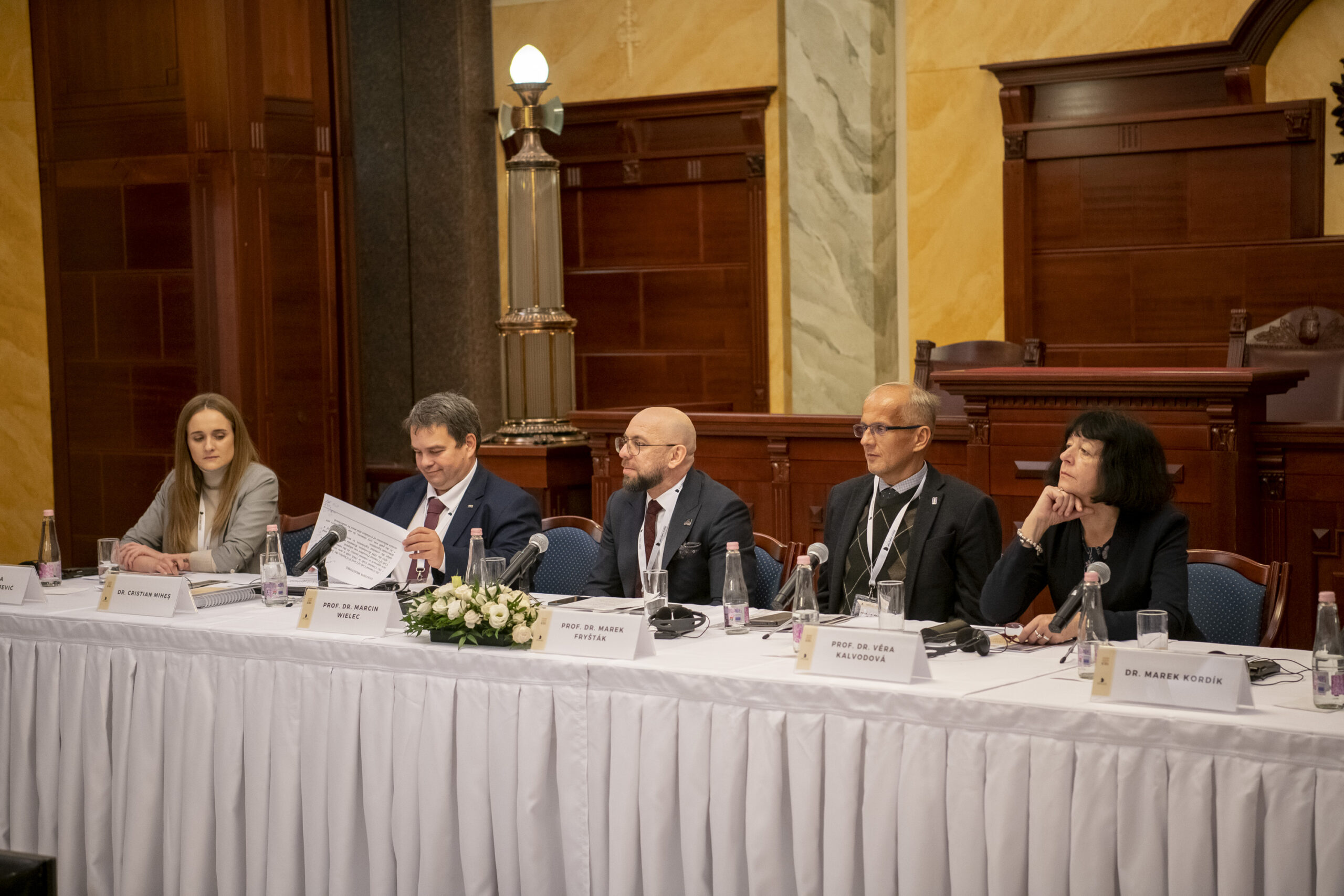
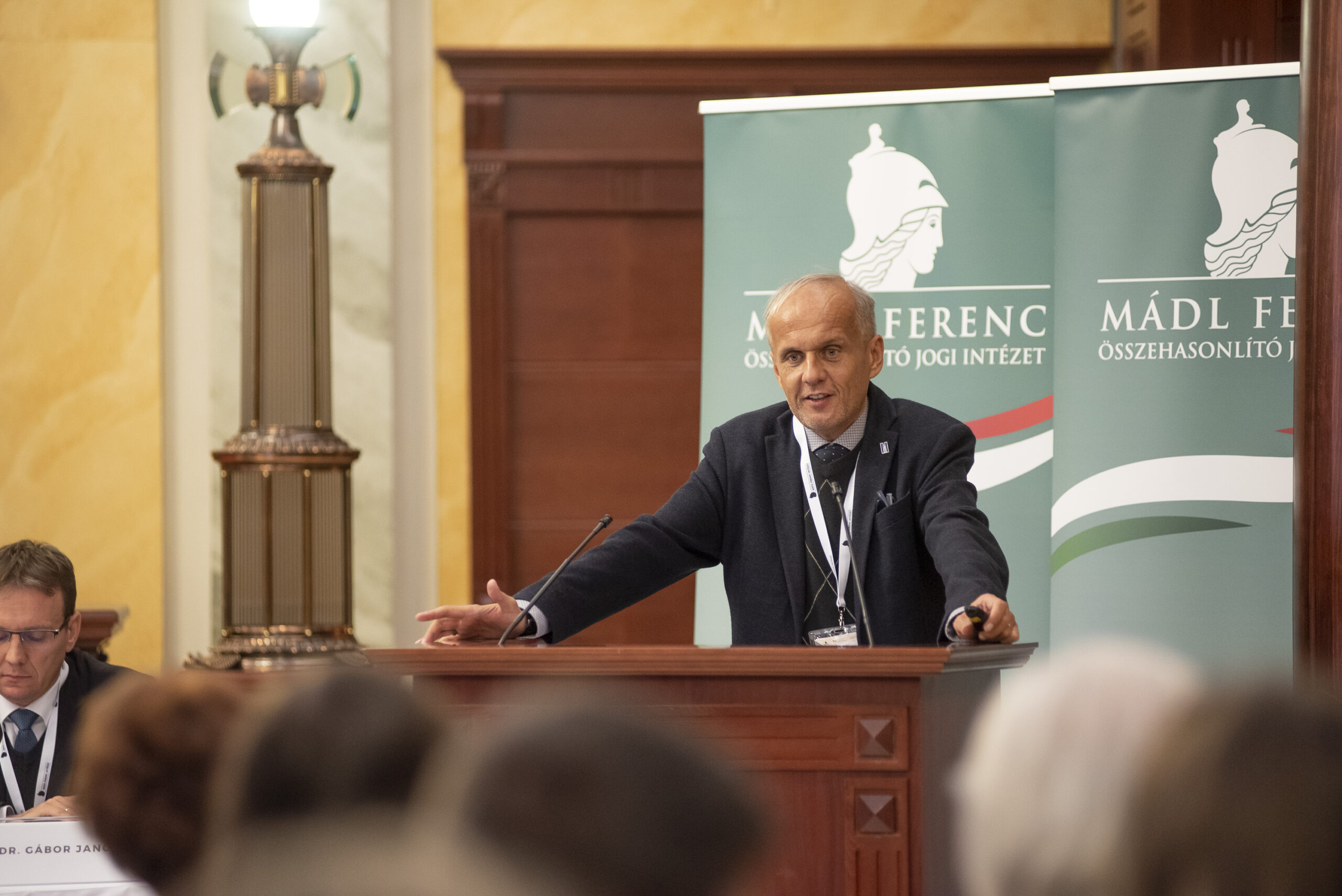
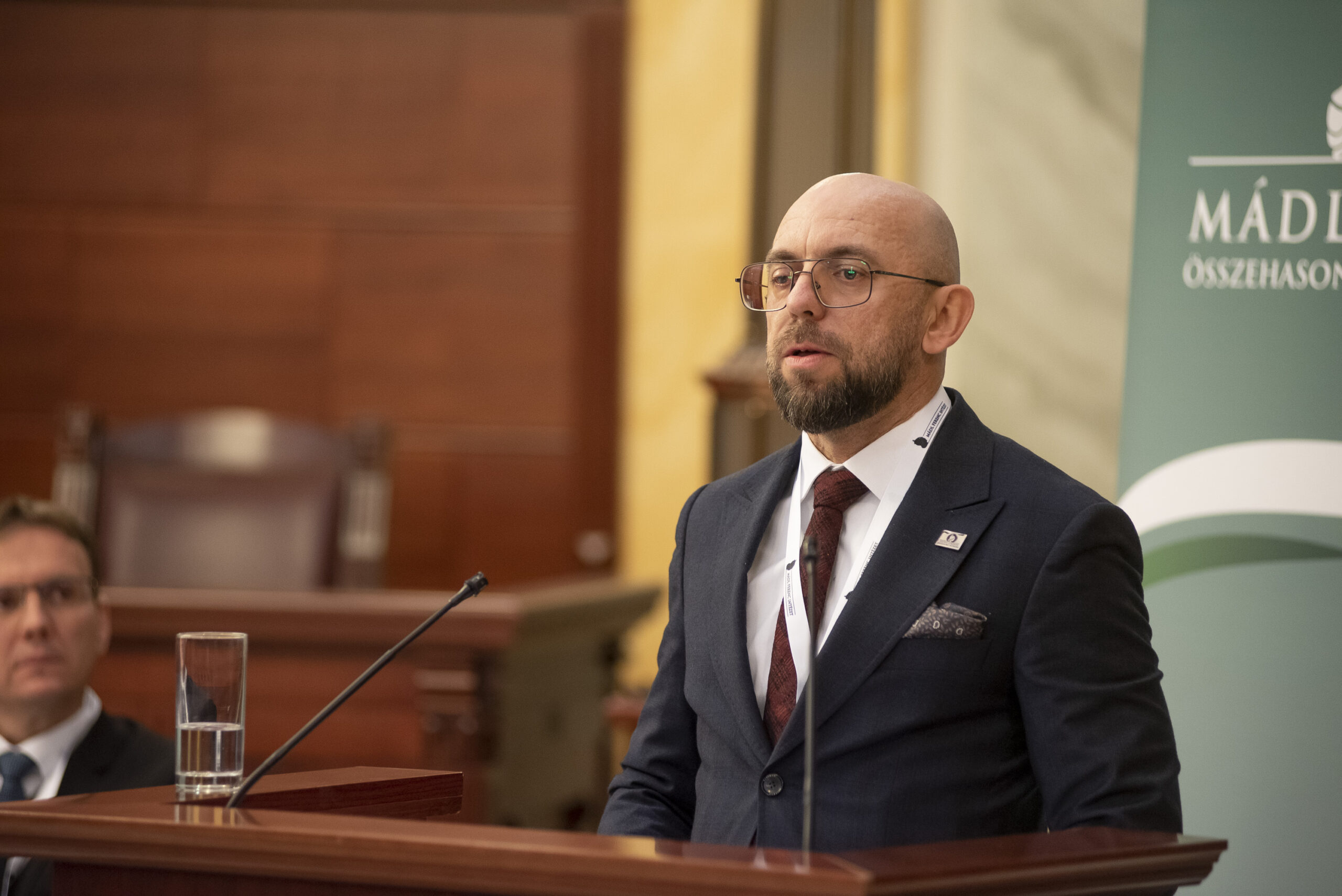
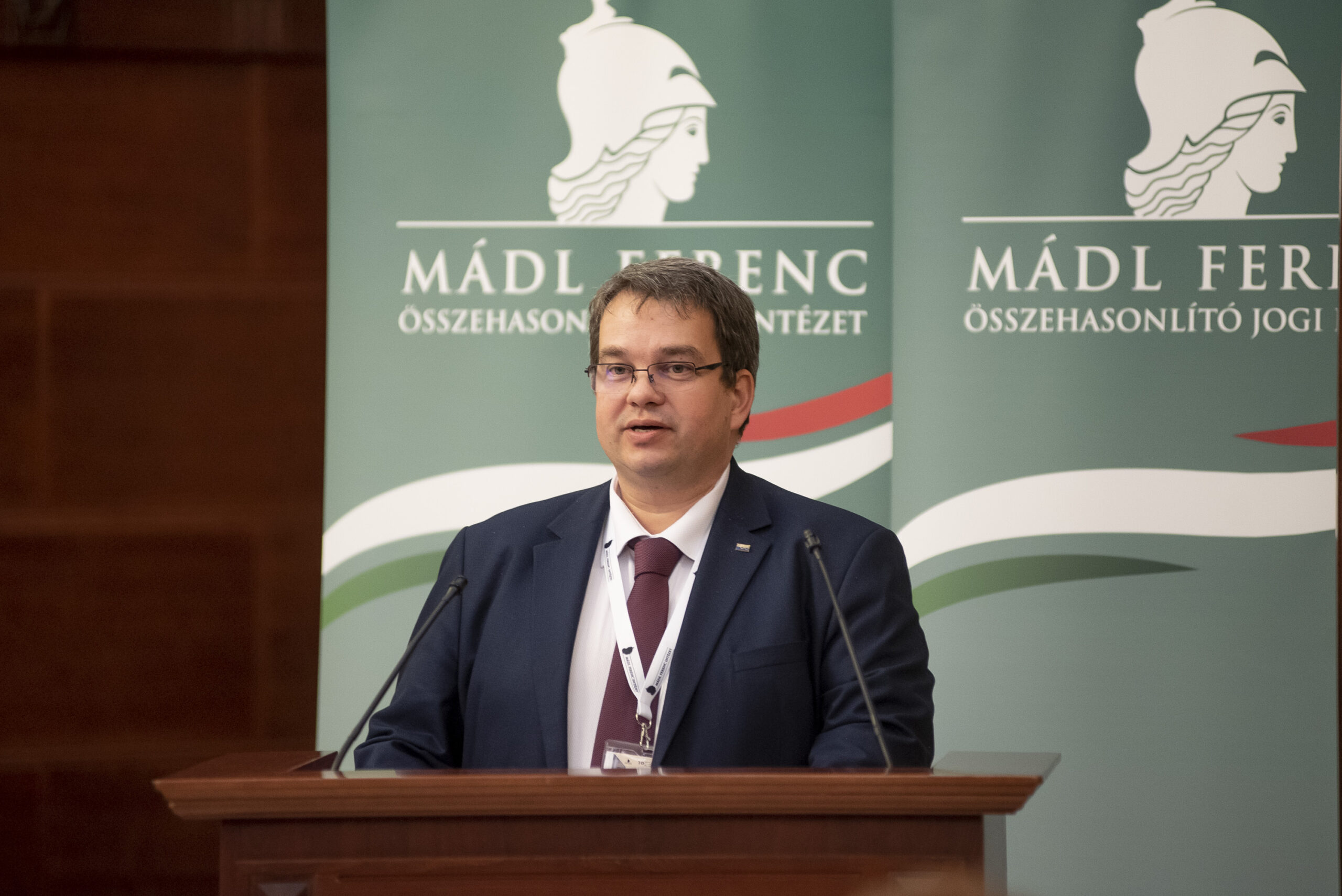
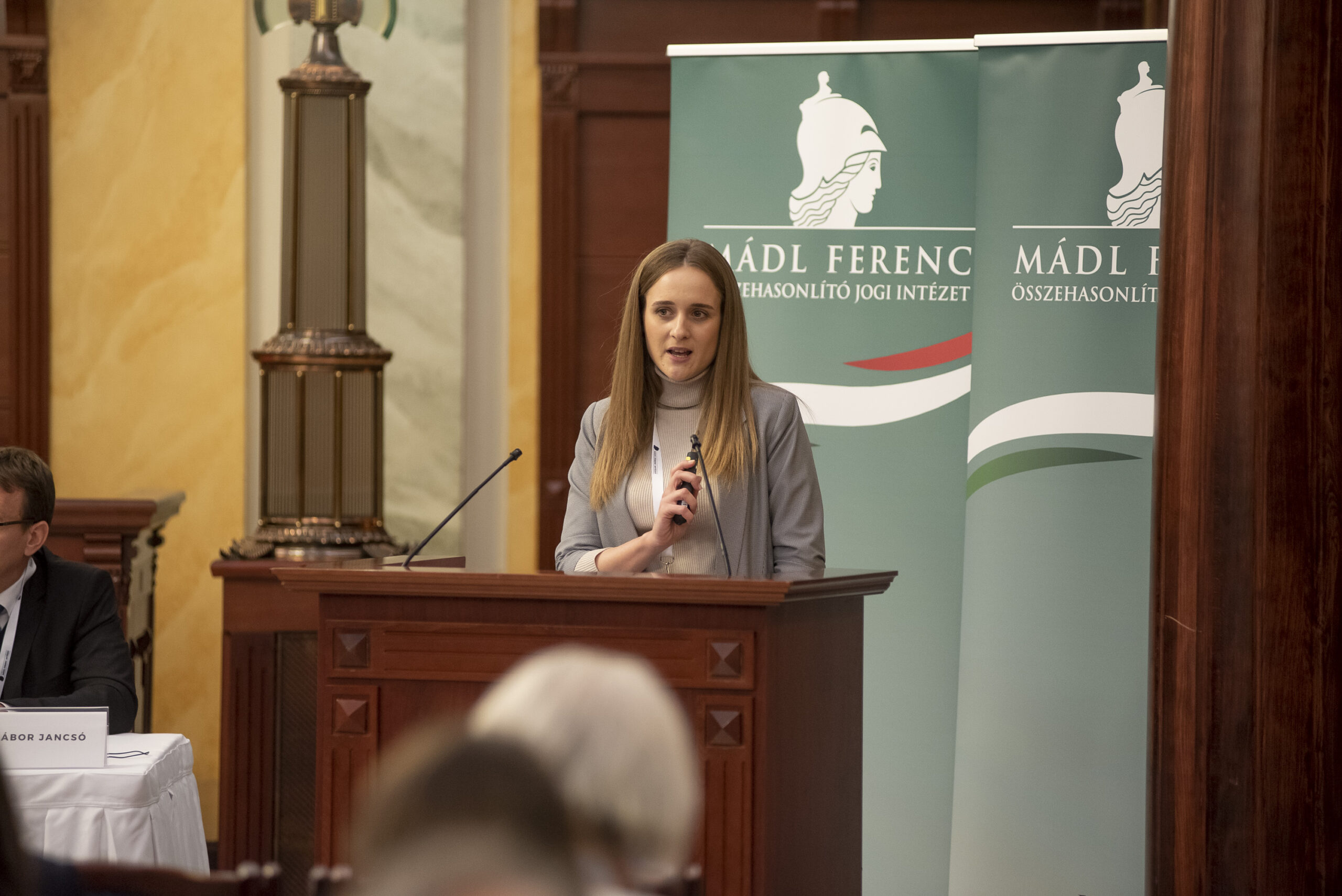
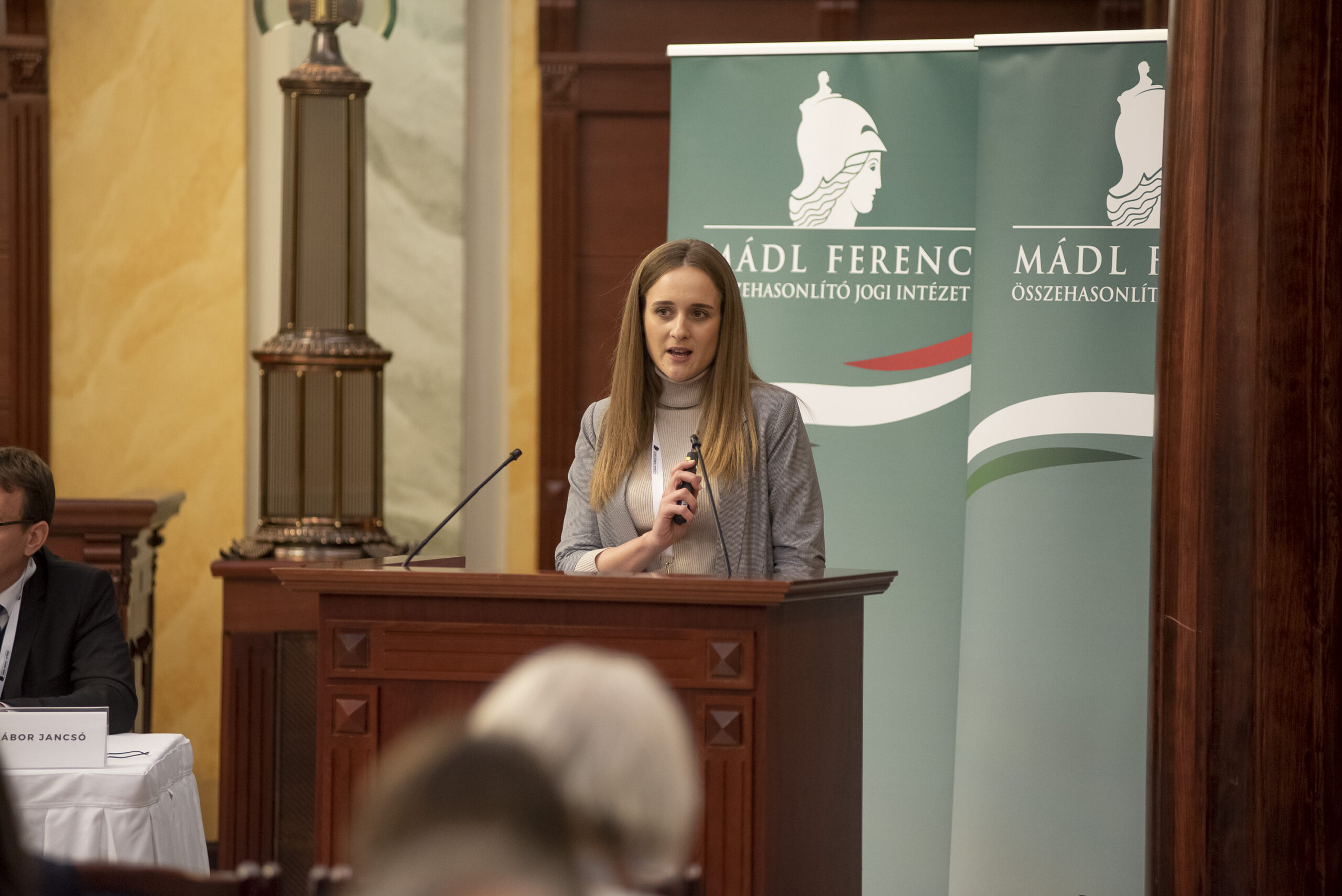
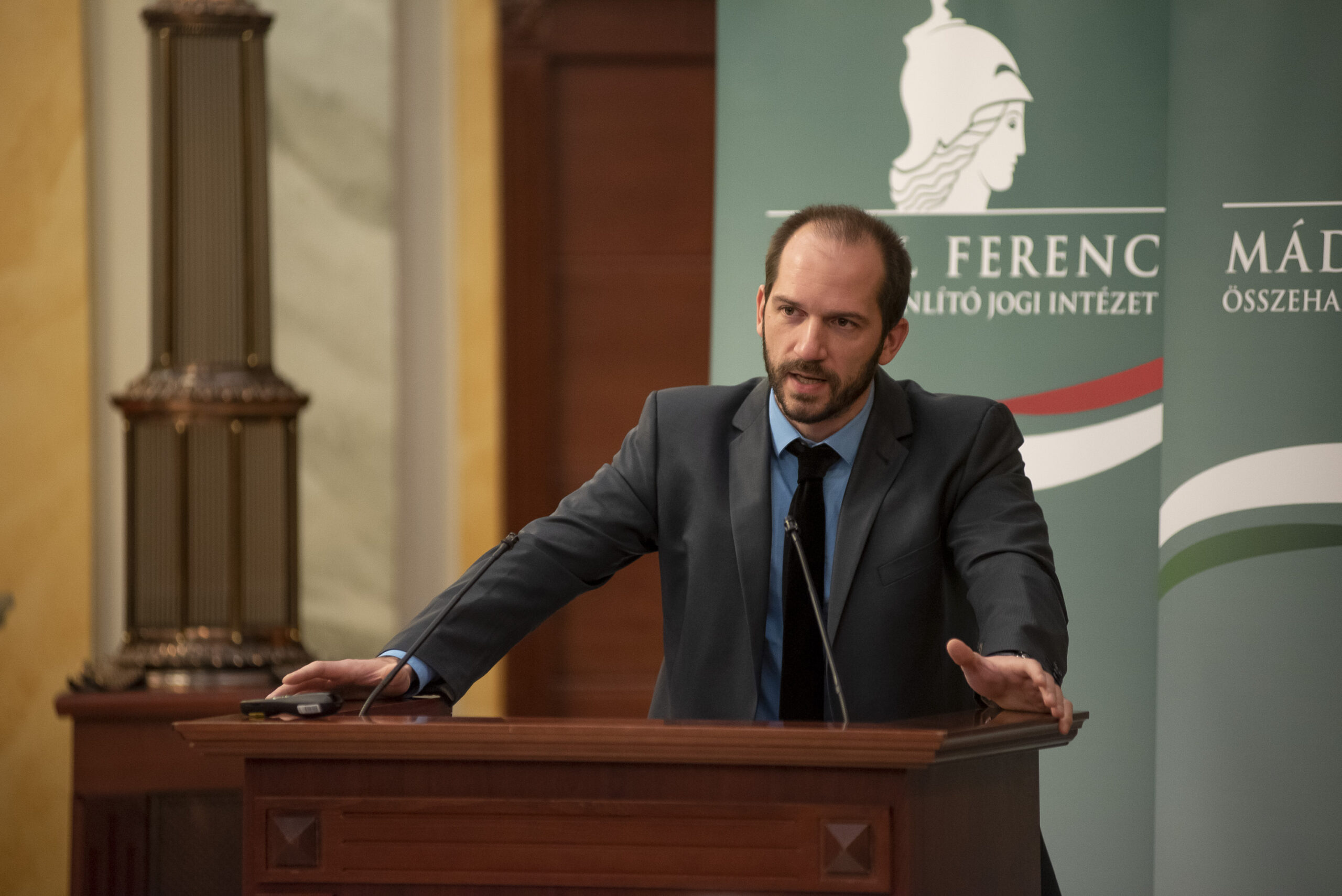
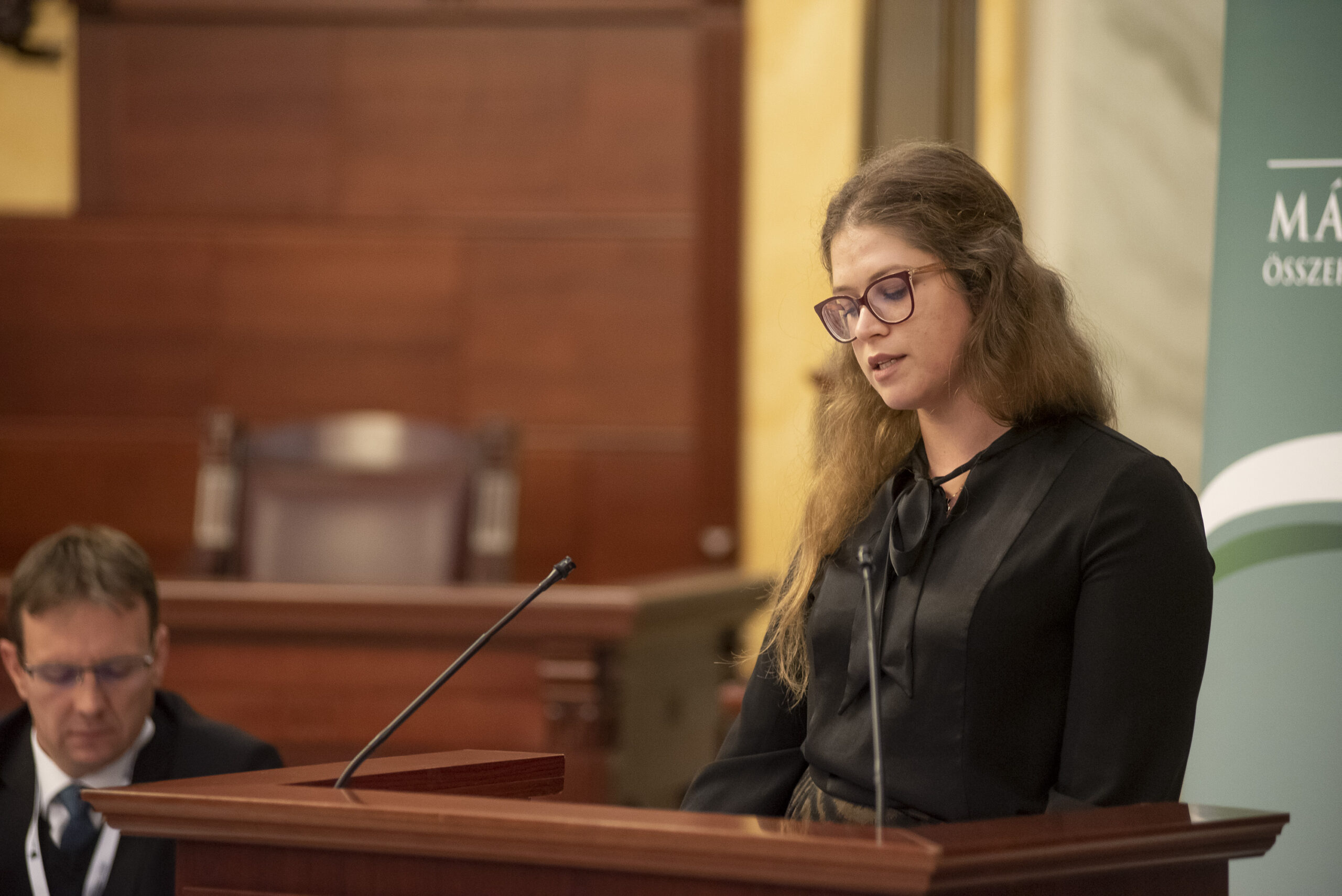
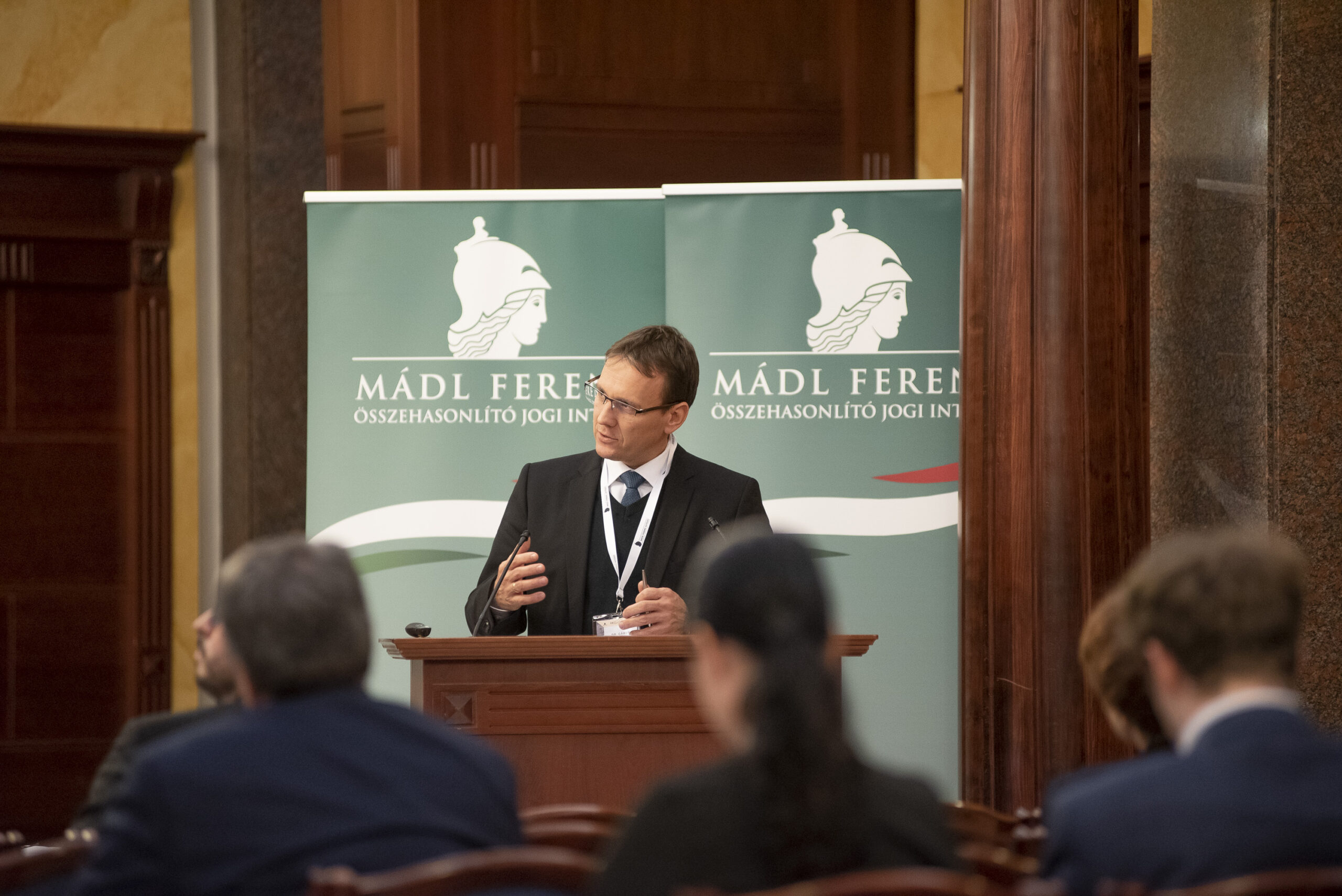
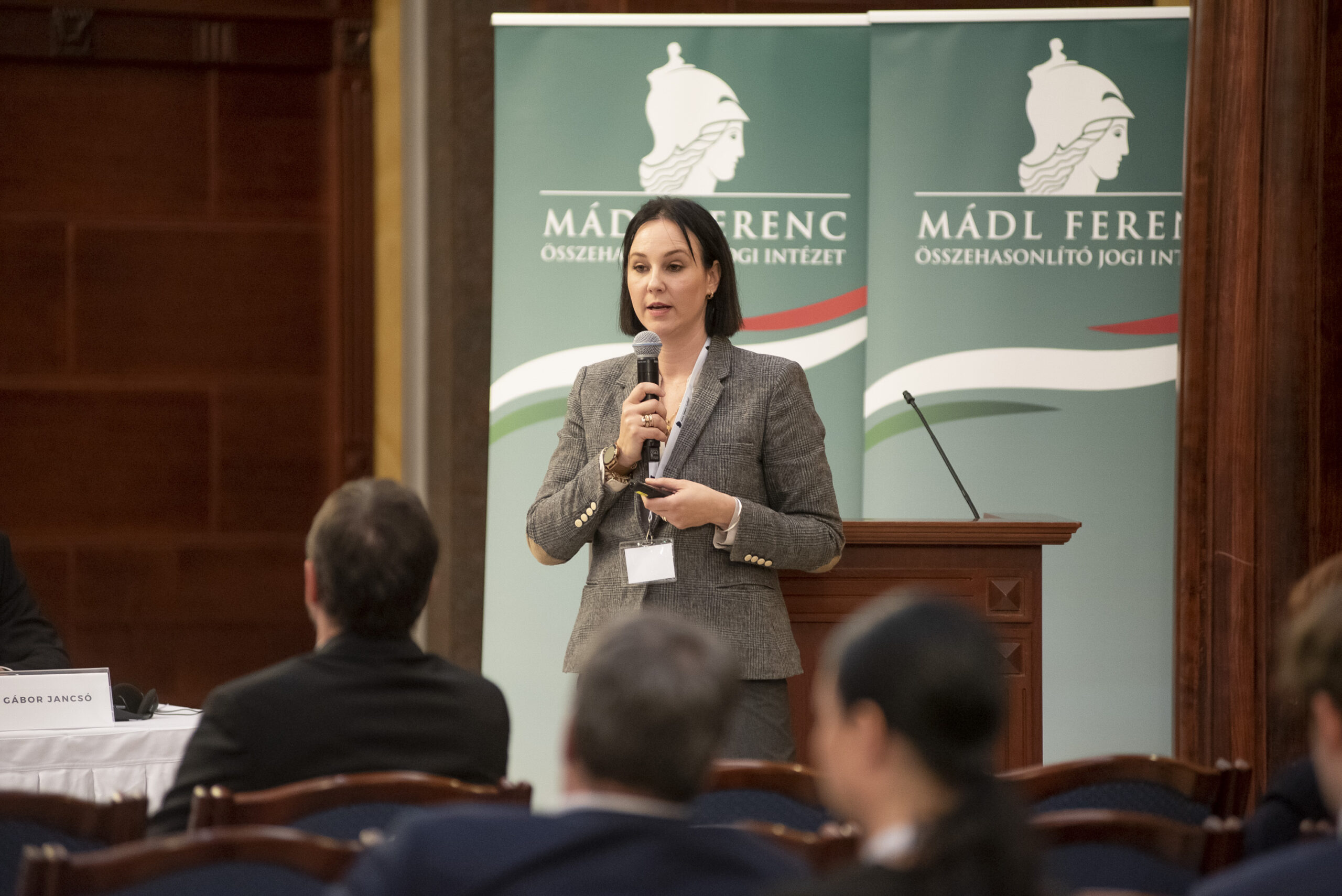
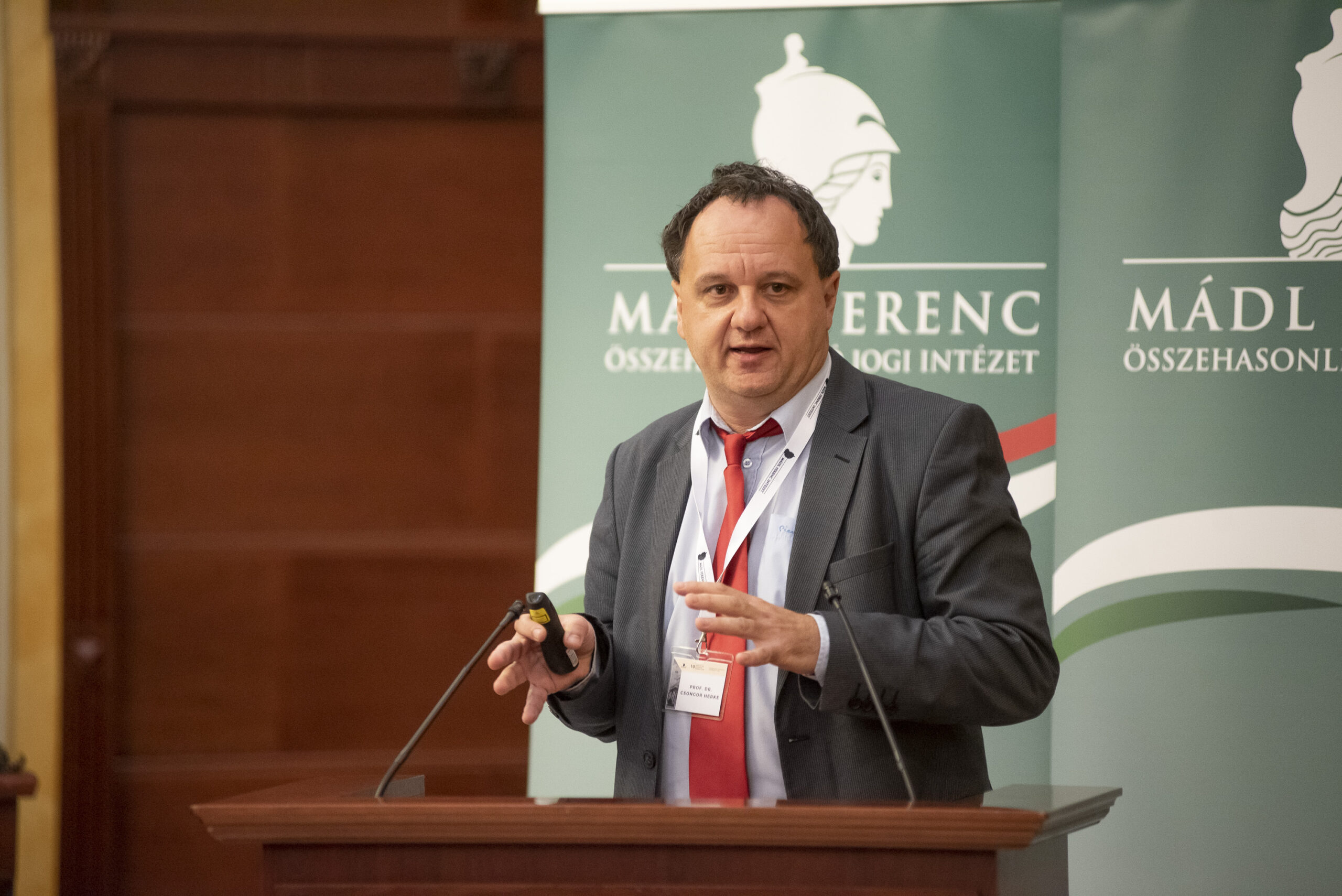
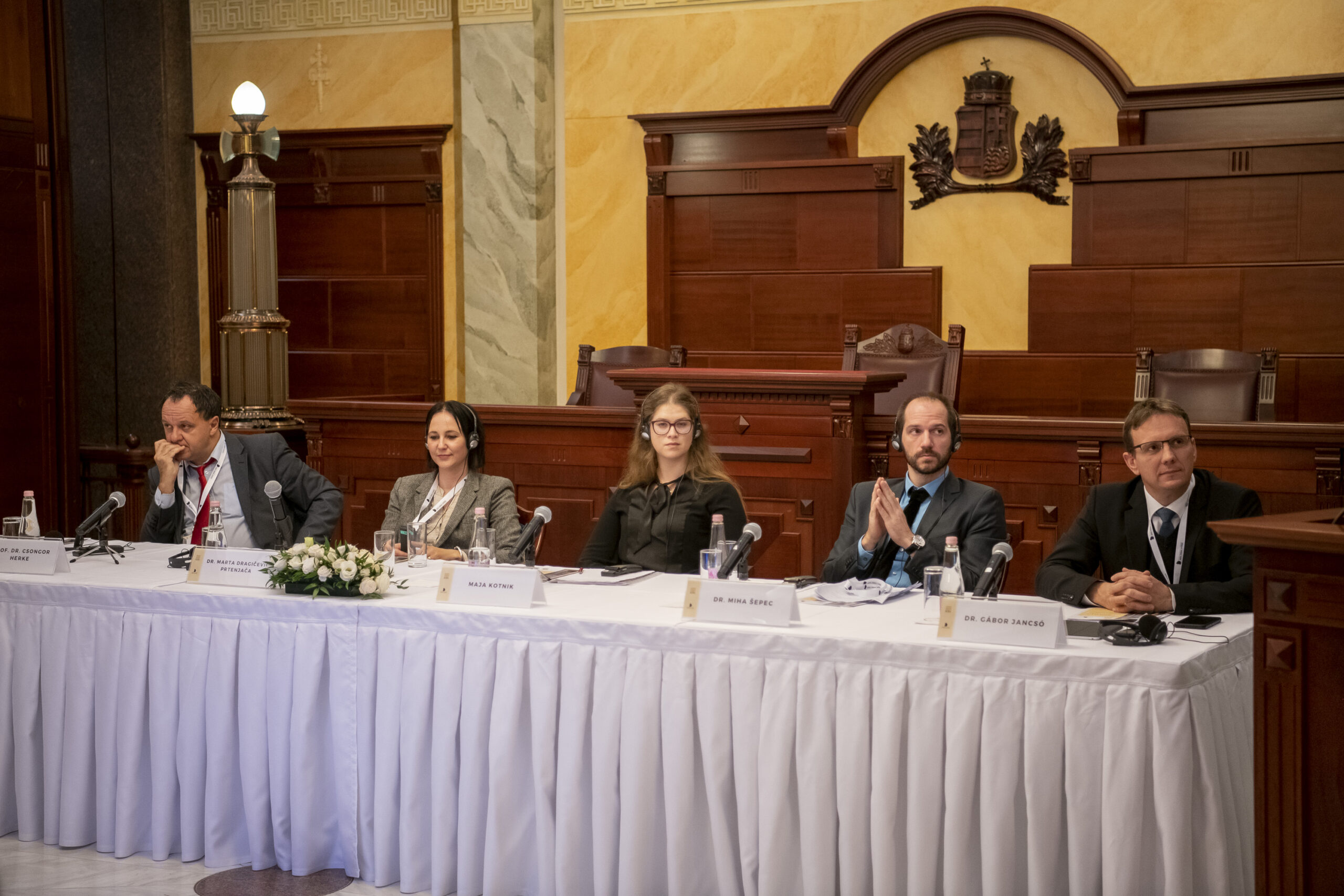
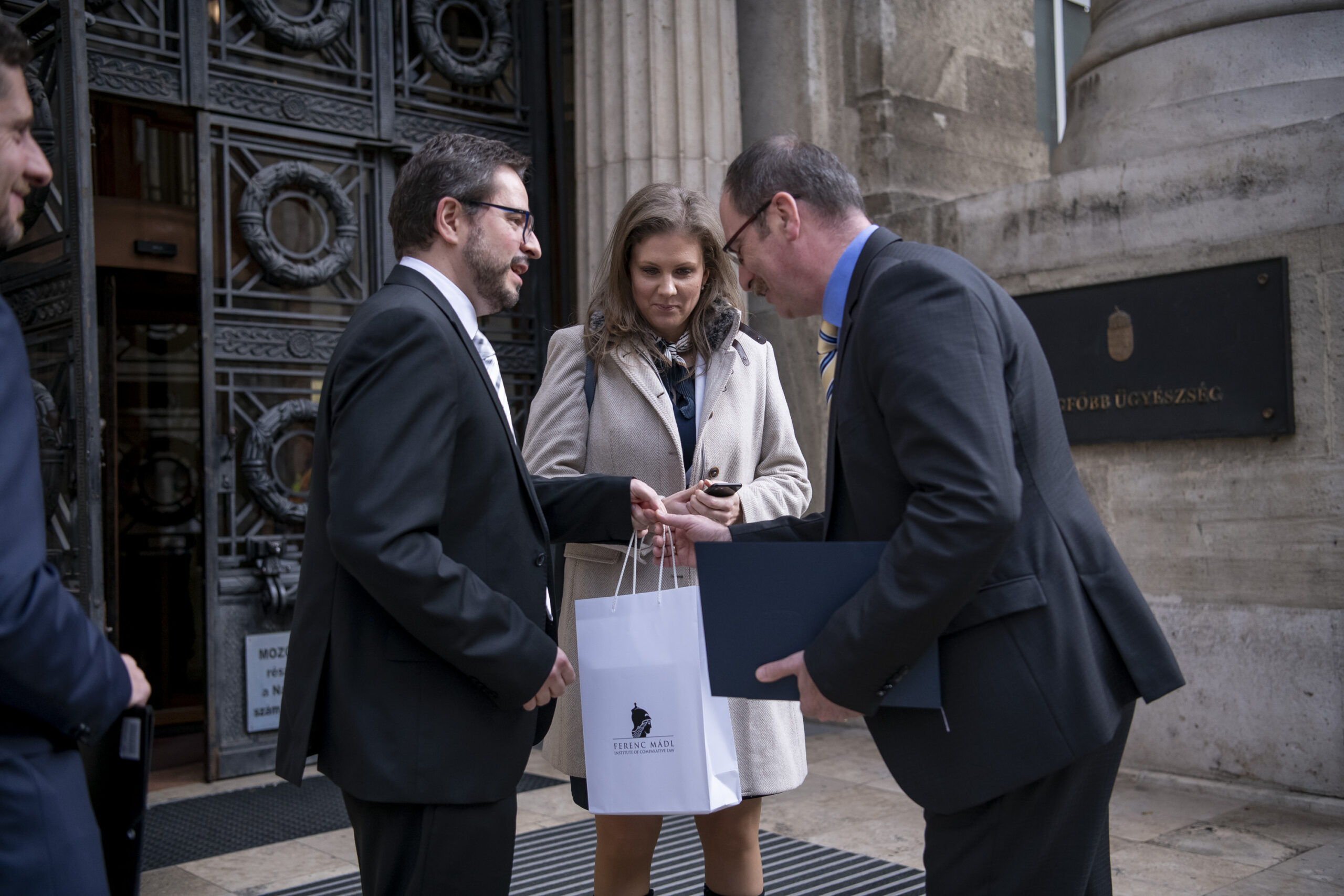
Photos from the second day:
